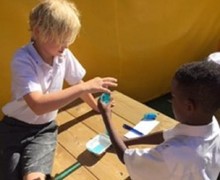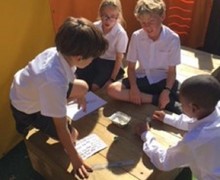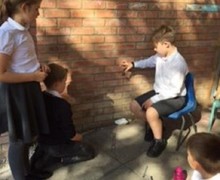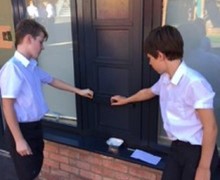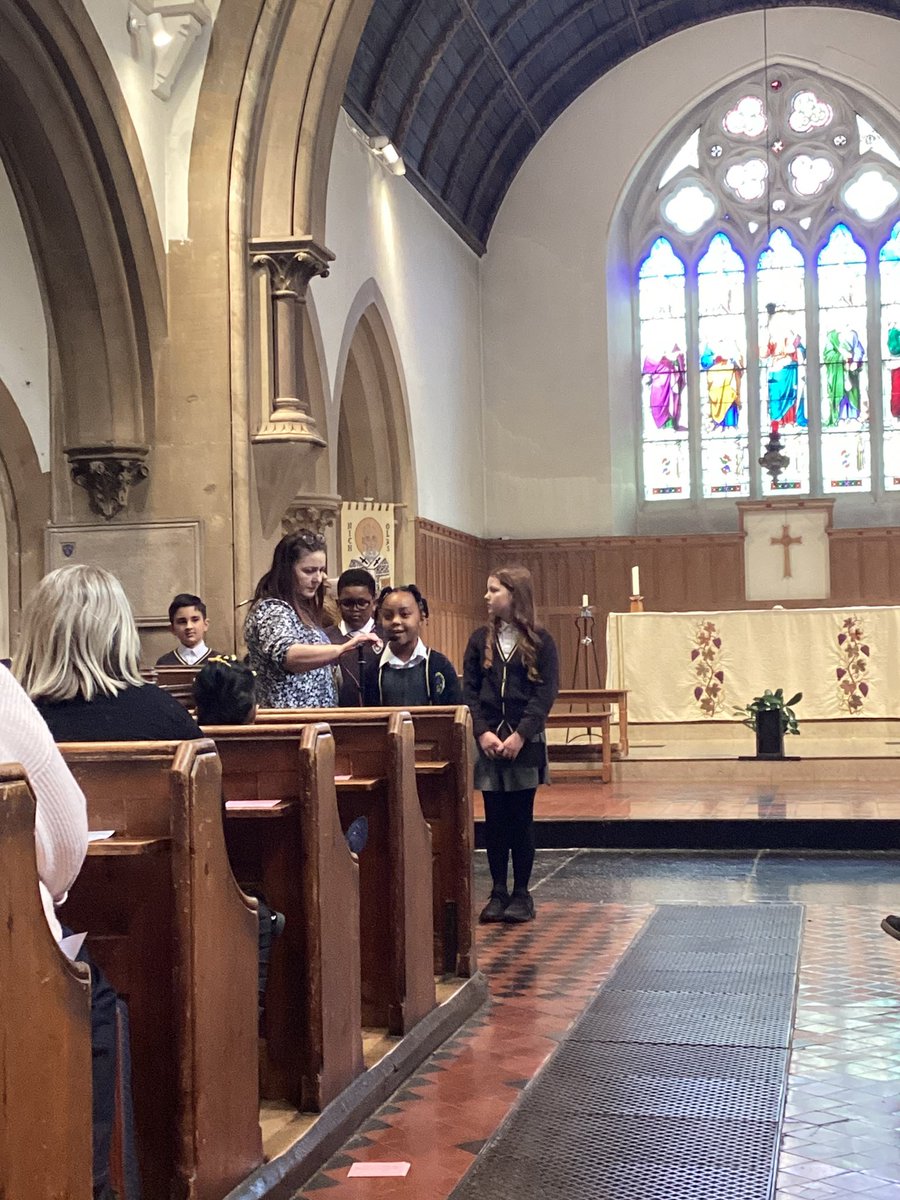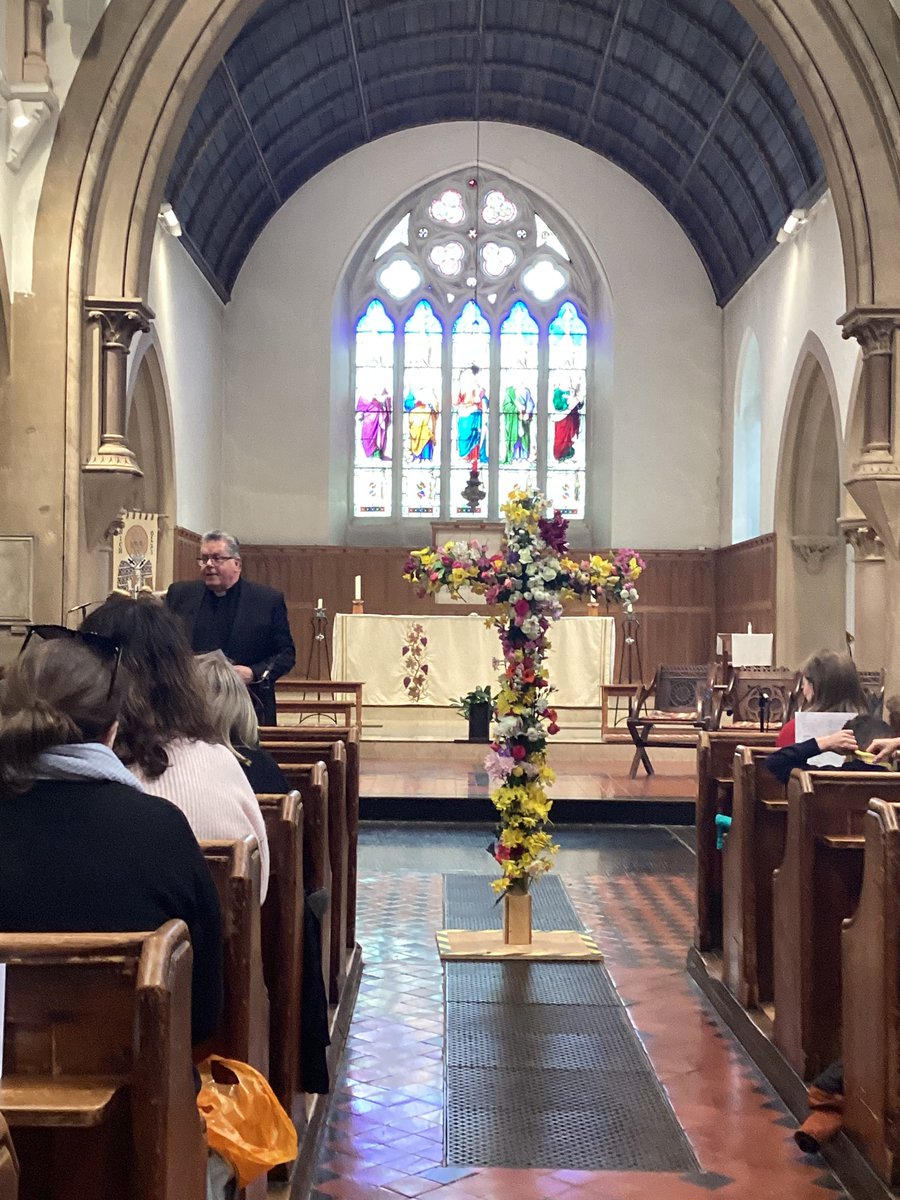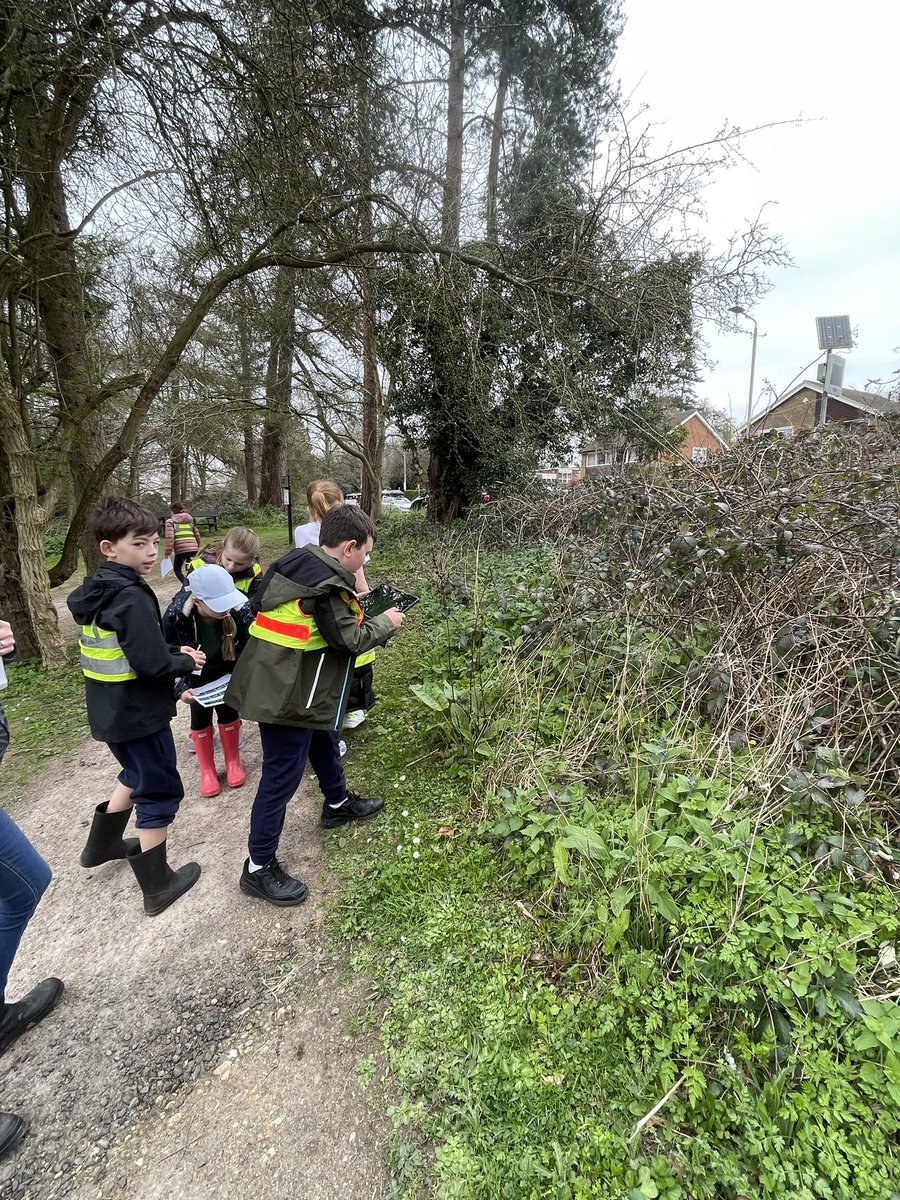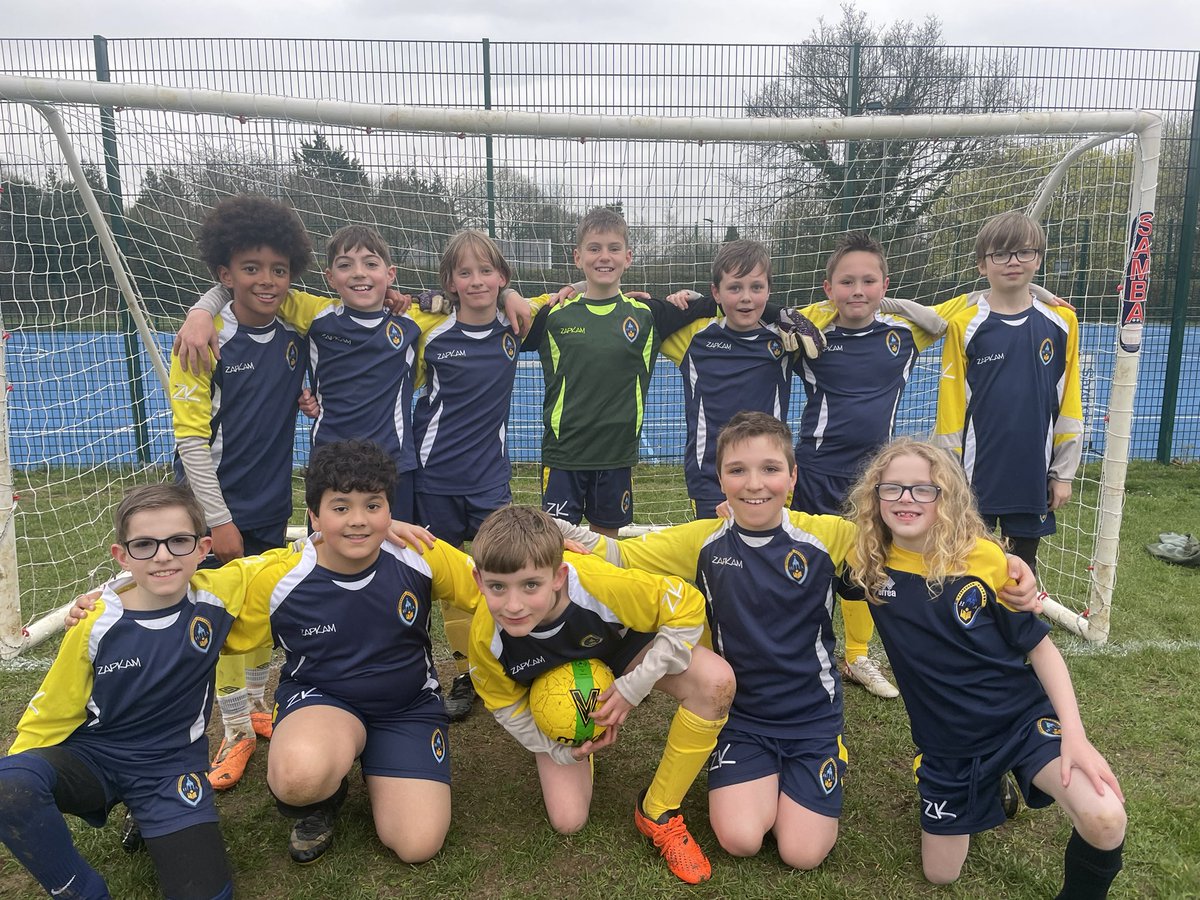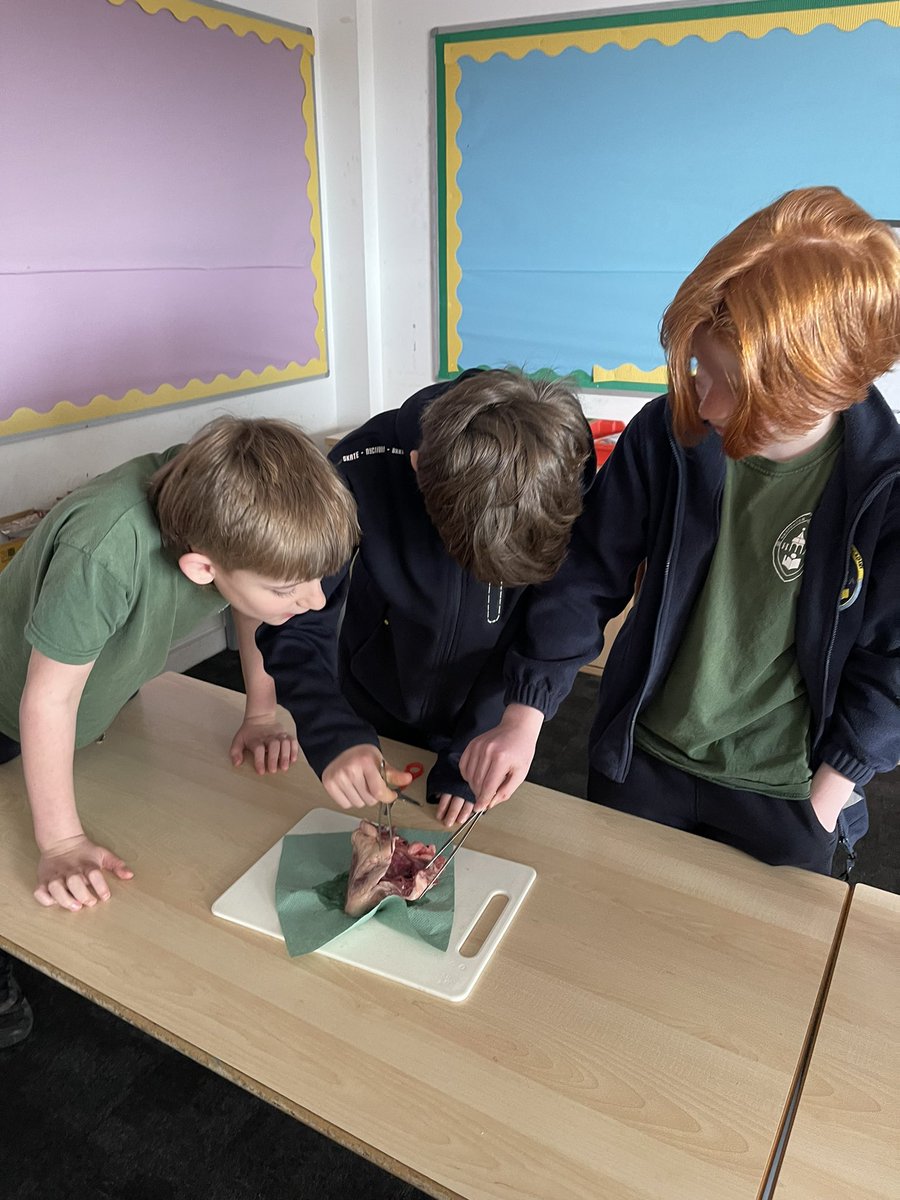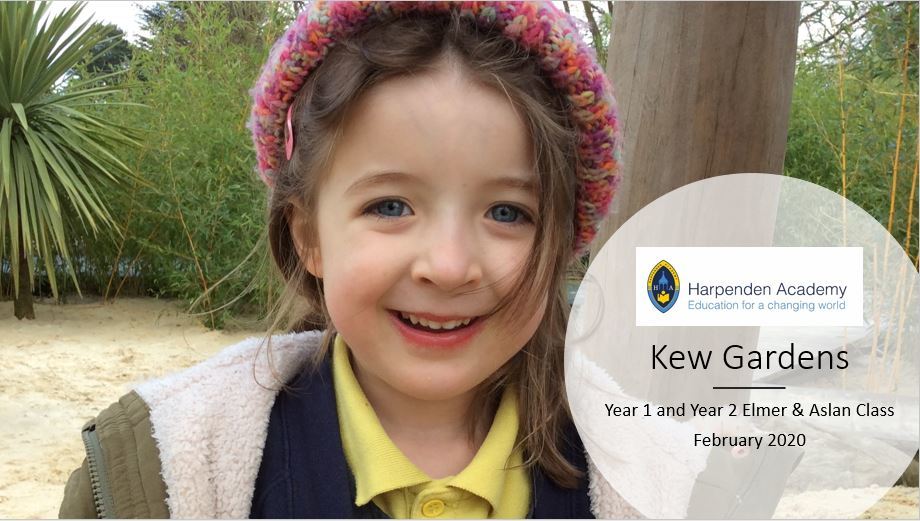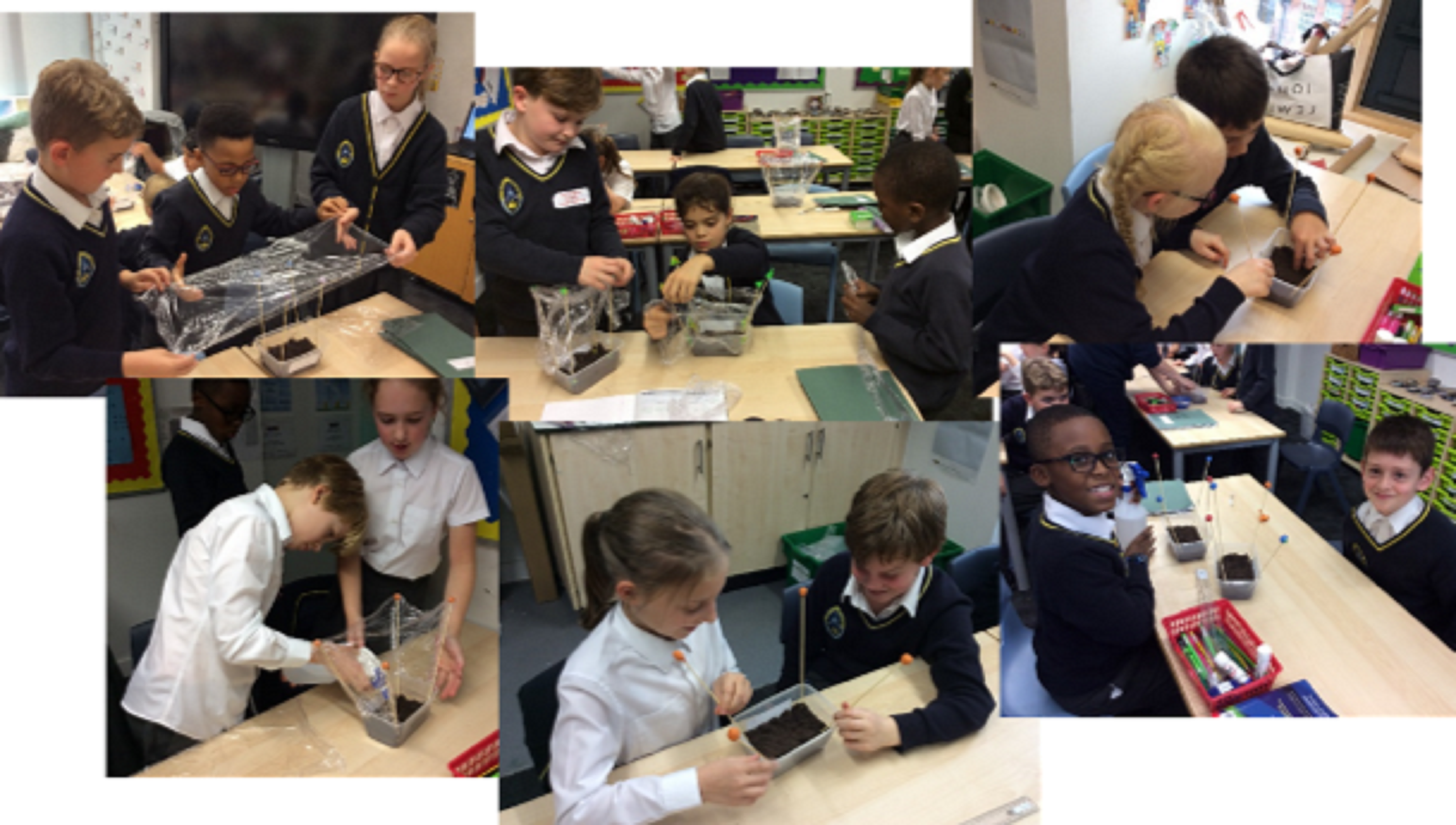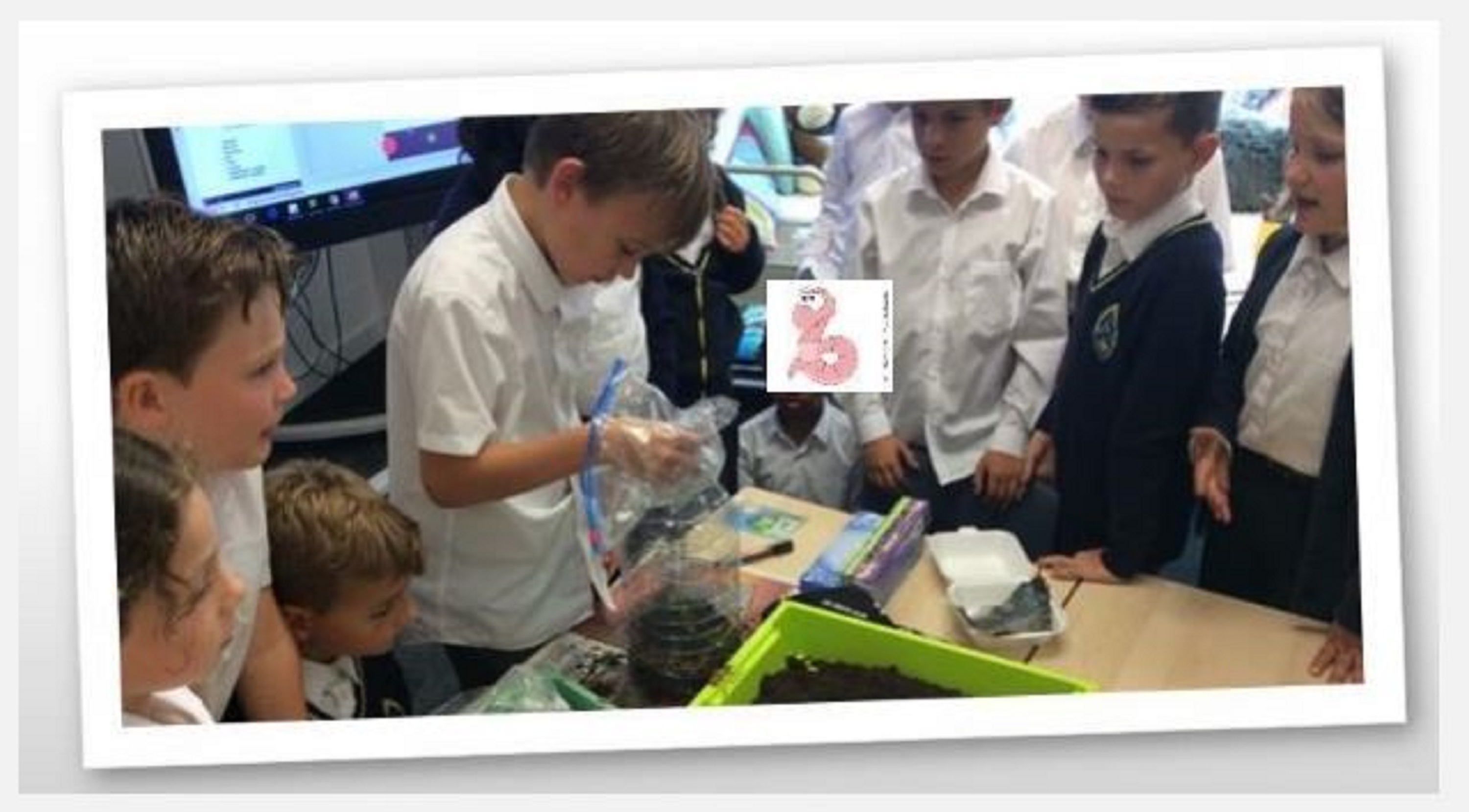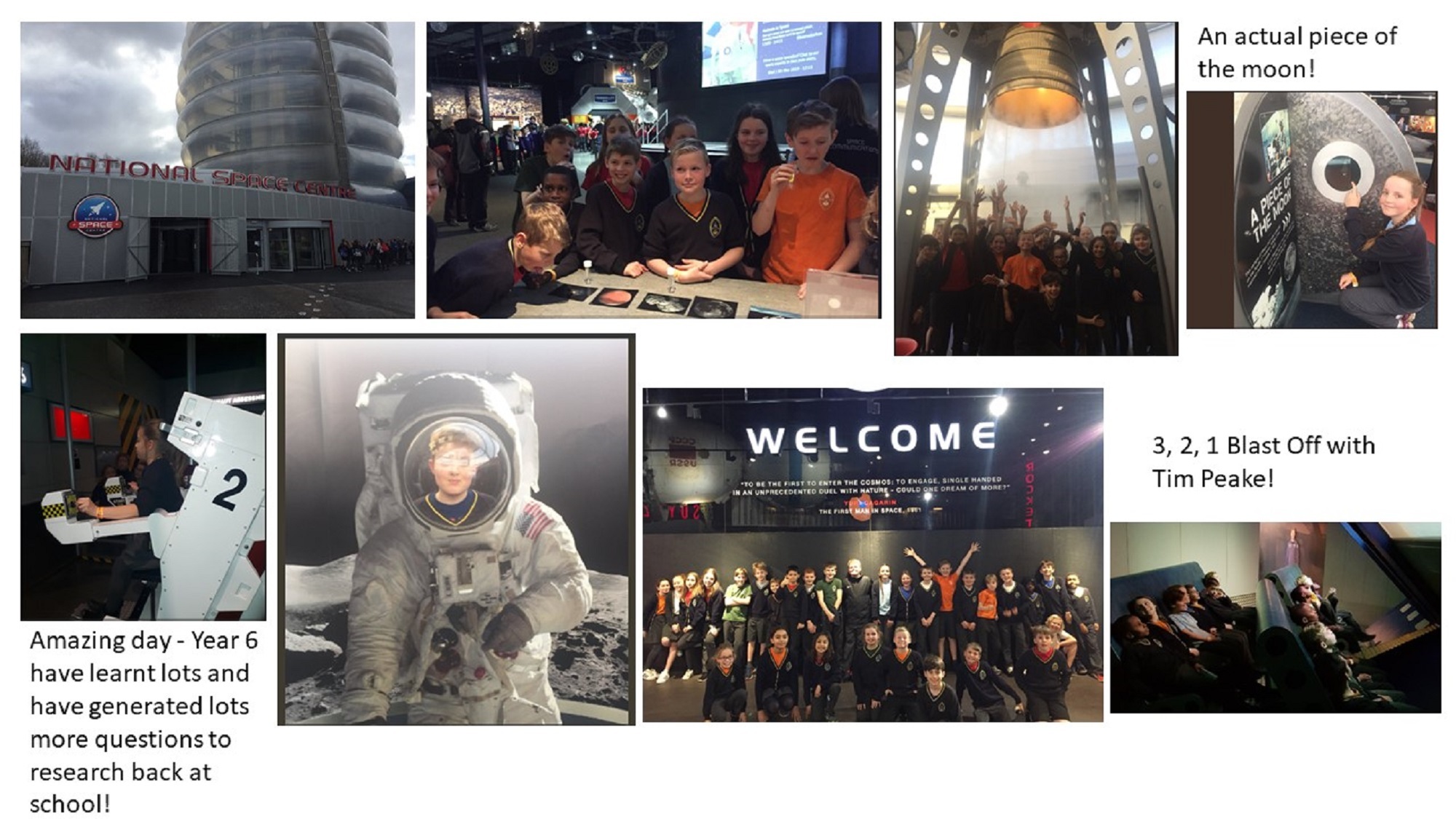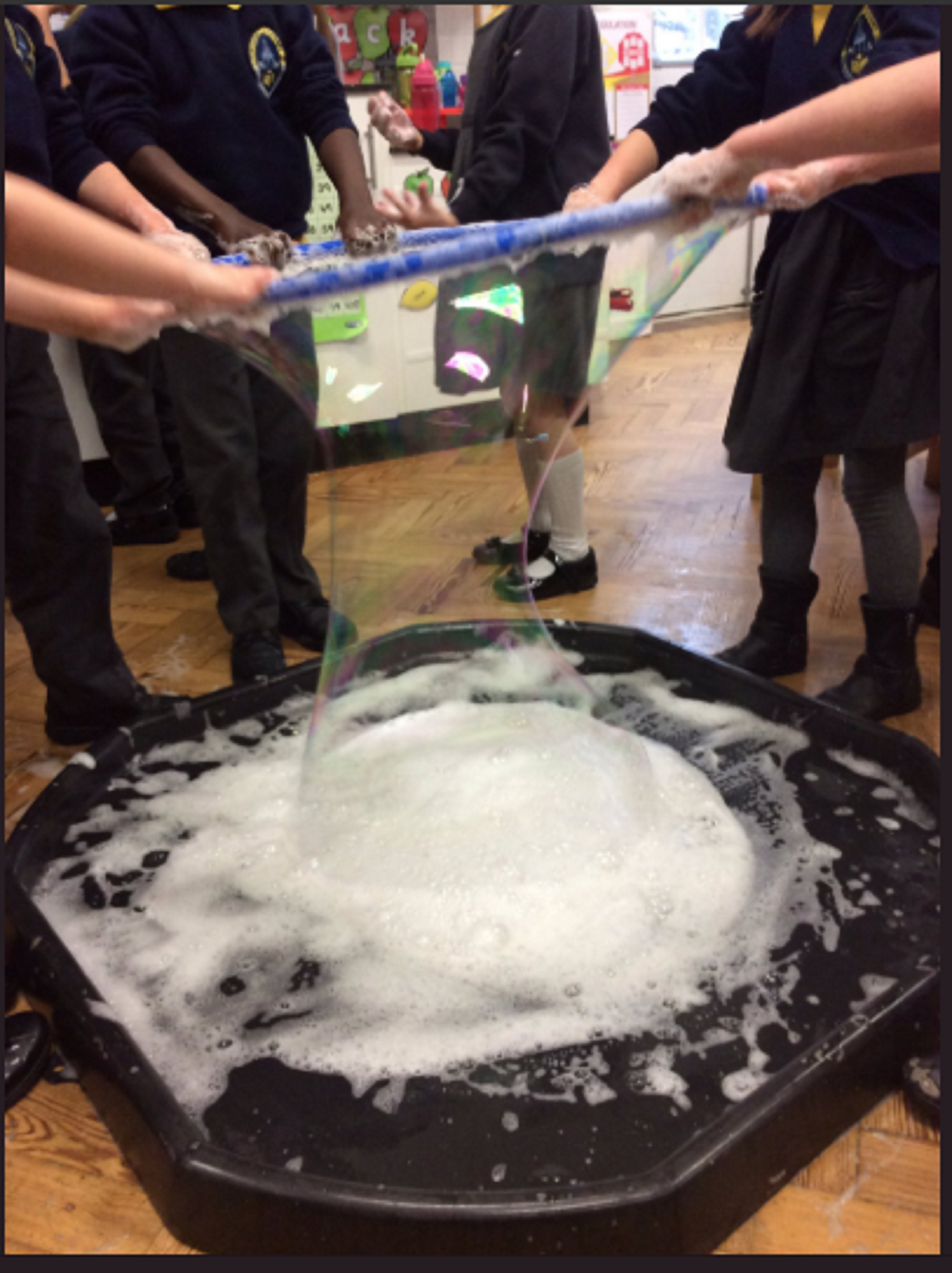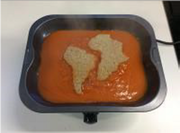Science
Purpose and Aims
Purpose:
A high-quality science education provides the foundations for understanding the world through the specific disciplines of biology, chemistry and physics. Science has changed our lives and is vital to the world’s future prosperity, and all pupils should be taught essential aspects of the knowledge, methods, processes and uses of science. Through building up a body of key foundational knowledge and concepts, pupils should be encouraged to recognise the power of rational explanation and develop a sense of excitement and curiosity about natural phenomena. They should be encouraged to understand how science can be used to explain what is occurring, predict how things will behave, and analyse causes.
Aims:
- To work scientifically
- To understand plants
- To understand animals and humans
- To investigate living things
- To understand evolution and inheritance
- To investigate materials
- To understand movement, forces and magnets
- To understand light and seeing
- To investigate sound and hearing
- To understand electrical circuits
- To understand the Earth’s movement in space
Provision
Our curriculum is categorised in 2 ways
- Breadth - which gives pupils experiences of thinking independently, raising questions and working scientifically and the knowledge and skills that it brings across biology, chemistry and physics with a termly focus on planning skills, data analysis skills and evaluation skills (in line with the Empiribox scheme of work).
- Depth - which helps pupils to think and act like scientists
Whilst coverage is our goal for the “breadth” element, repetition and increasing the understanding via mastery learning is our goal for the “depth” element.
Our curriculum drivers shape our approach to teaching science so that every opportunity is taken to relate science to the needs of our pupils. Science is studied weekly in both Key Stages (one session per week in KS1 and two sessions per week in KS2) and cross curricular links and Learning Outside the Classroom are incorporated where possible and meaningful. The Empiribox scheme ensures that children experience hands on science every week, developing awe and wonder which engages and motivates all pupils.
Progression and Assessment
Our progression has eleven key objectives which mirror the eleven aims of the subject. Children across each Key Stage study the same topic each term but at different levels to meet the needs of each child. We use the Chris Quigley three cognitive domains to ensure each child receives the right support and challenge. It is expected that the vast majority of pupils will have an Advancing understanding by the end of the milestone (KS1, Lower KS2 and Upper KS2) and some will have a Deep understanding.
Assessment and reporting
We will assess the pupil’s depth of understanding each term using tour school assessment tracking system and will use this data to forecast whether pupils are on track to meet our curriculum expectations for the end of the Key Stage.
Why did Harpenden Academy choose to take an Empiribox approach to the teaching and learning of science?
Empiribox believes, as do Harpenden Academy, that science is important; it underpins
every aspect of our lives. Furthermore, at Harpenden Academy, we strongly believe that teaching science with engaging and exciting practical lessons makes learning memorable, not to mention sparking a lifelong passion for the subject.
At Harpenden Academy we want to prepare our children to be young citizens ready for life in the 21st century. In today’s society, the need for a workforce with science and STEM related qualifications is growing. We believe every primary school child deserves to receive a strong foundation in practical science that will inspire them to choose STEM options and careers in later life.
At Harpenden Academy we have enthusiastic teachers who are committed to science teaching, valuing the importance of practical science sessions where the children discover for themselves. We also have highly articulate and curious children at Harpenden Academy who thrive on hands on learning and learning outside the classroom. Creating an intellectually stimulating curriculum is one of our school development priorities so a challenging science scheme is essential. Empiribox was selected as our Harpenden Academy science scheme because it provides:
- high quality equipment (all the resources for the whole school for investigations are delivered and collected each term);
- high quality resources (access to lesson plans, teacher guides, videos and much more is available via an online portal);
- termly CPD for staff (CPD sessions led by an industry professional to help teachers refresh and enhance skills, not to mention to ignite passion in the teachers which is then passed on the children.
Air Resistance in Year 5
In Science, Dahl class investigated how the size of rotor blades affects the time taken for a helicopter to fall, as part of our learning about air resistance. We turned our data into line graphs, consolidating our maths learning.
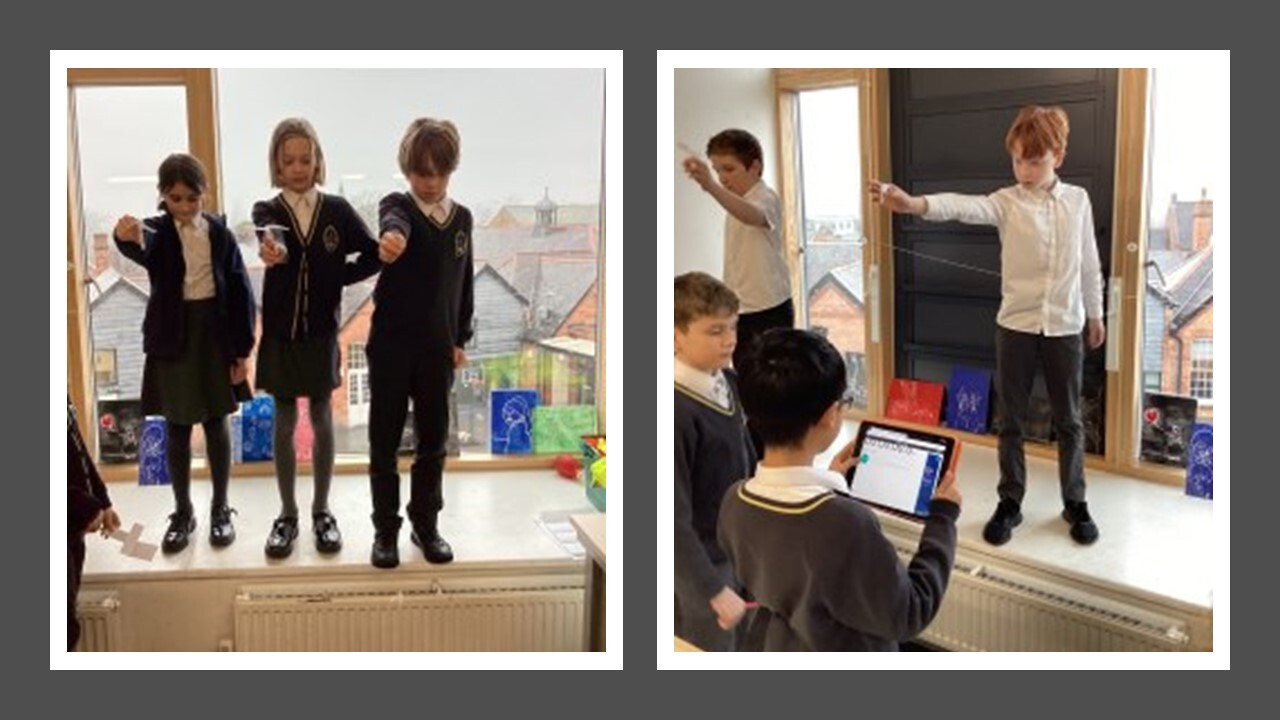
Hands on Science Workshops
We had the most lovely start to this half term with the return of Mark, the lovely science man. He arrived on Wednesday with boxes filled with the most wonderful gadgets and gizmos to educate and excite the children's hearts and minds.
EYFS and Key Stage 1 were treated to a workshop on building their own rockets. They learned all about forces, pushes and pulls and had a fantastic time shooting their rockets into the air. Year 3 learned all about biodiversity and learned fascinating facts about identifying the lineage of cheetahs by their footprints - hot off the press research which is currently happening. Year 4 and Year 5 spent the afternoon building elastic racing cars powered by elastic bands. It all became rather exciting as the winning cars had their Formula 1 style winning attempt. Finally, Year 6 dissected lamb hearts in preparation for Year 7 science at secondary school. The children were fascinated by the dissection and truly enjoyed this unique experience.
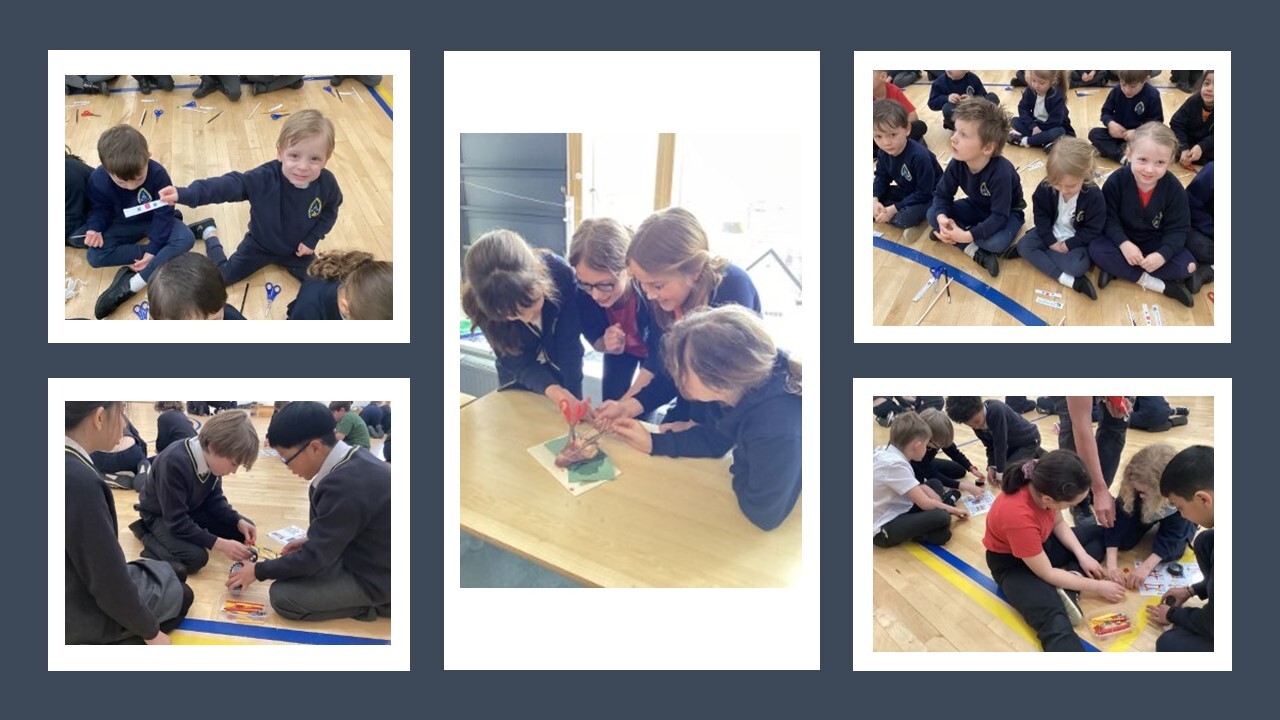
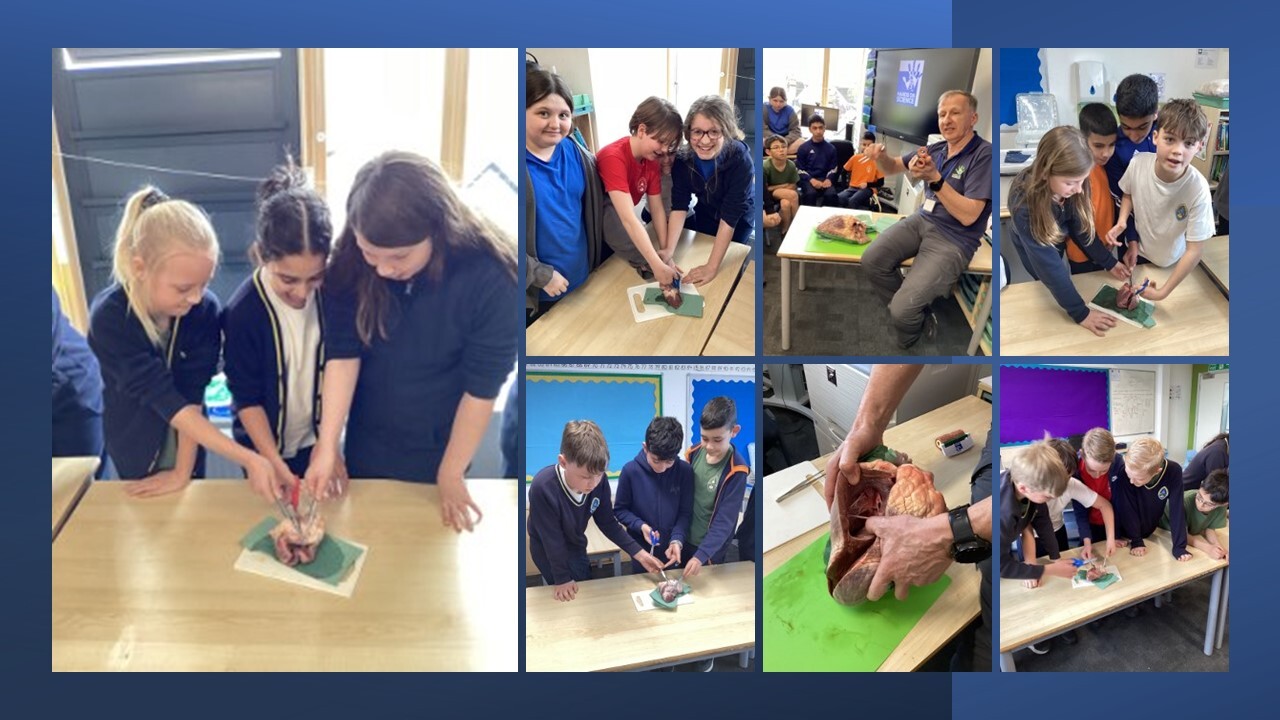
Sustainability Workshop
The highlight of this week was our sustainability workshop funded by FoHA.
The workshops support one of our four curriculum drives which is sustainability. The children learned all about a special building in Brighton which is 100% sustainable and how this has been a forerunner for similar sustainable buildings around the world.
Ladybirds grew micro-greens and Key Stages 1 and 2 made notebooks from recycled materials. Each class reflected on how sustainable they currently are and discussed how they could act in a more eco-friendly way moving forward in order to 'live greener and cleaner'. It was a really successful set of workshops which we are grateful to have experienced. A big thank you to FoHA for funding the workshops.
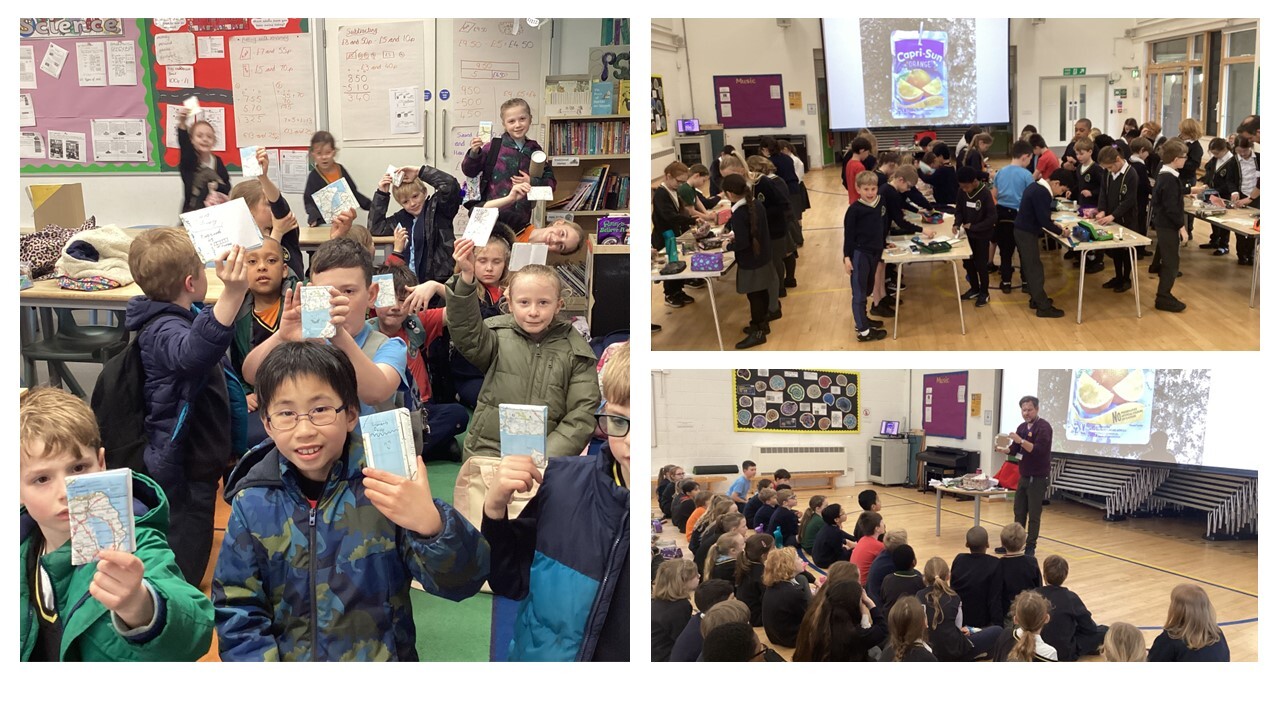
Year 5, Careers Visit - Marine Biologist
This week, Year 5 were lucky enough to be joined by Krystal Howard, a Marine Biologist, which linked beautifully to our current topic: ‘Our Changing World’. Krystal wowed Dahl class with amazing photos and facts about the marine life that she studies, bringing in some beautiful shells that we were able to study up close, and learn more about. It was really interesting to learn about the steps Krystal took to achieve her dream job. She gave Year 5 some great top tips of things they can do straight away to find out if a career in Marine Biology might be of interest in the future. How inspired we are!
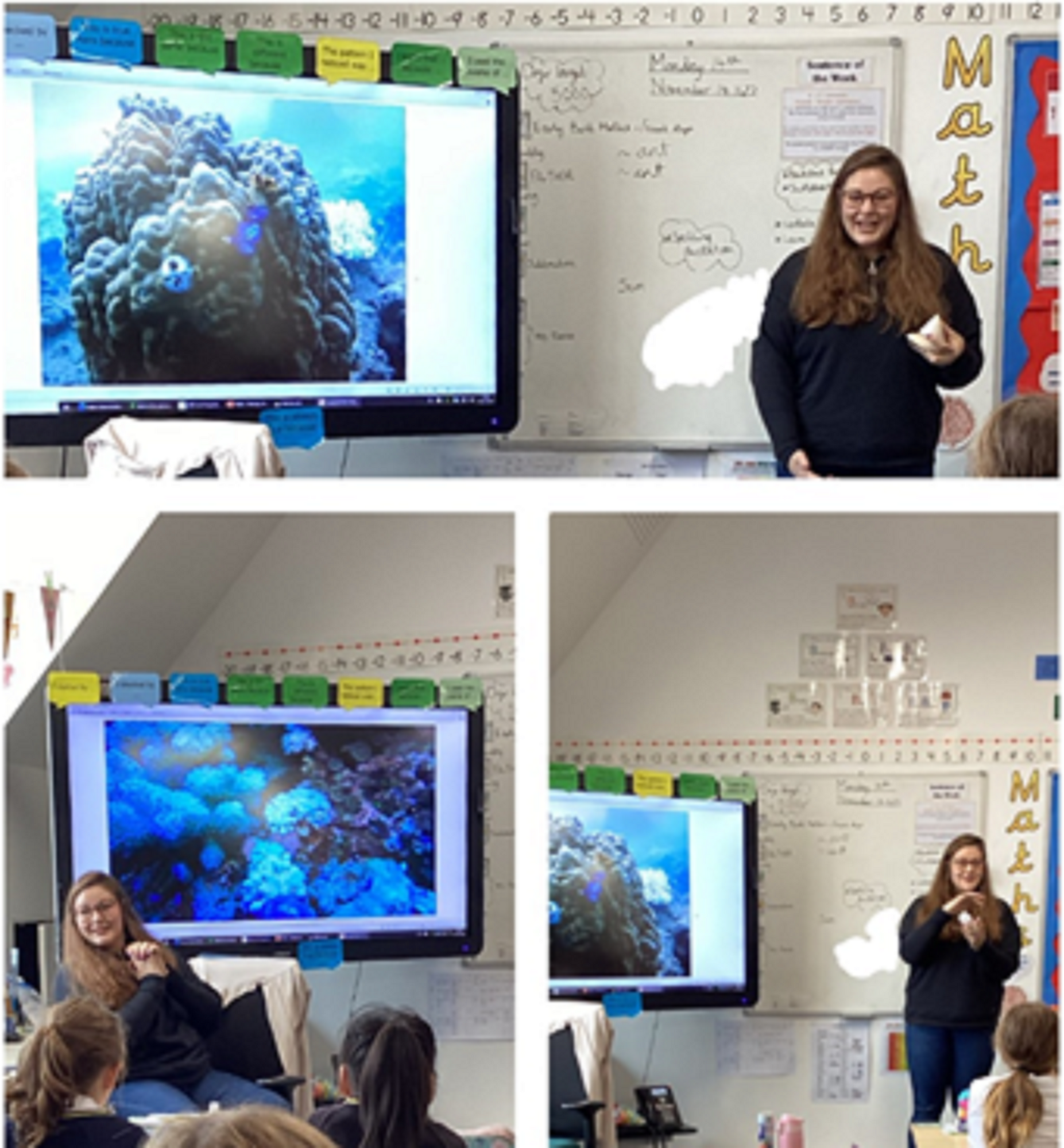
Reception visit the Pop-Up Pumpkin Farm
On Monday, our Reception class visited the Pumpkin Pop-Up Farm! We learned all about the different types of pumpkin and squash. Ladybirds amazed Ian, the Farmer, with our memories as we could remember the names of all the ones he showed us. We loved searching for our own pumpkins in the field and had great fun climbing on the tractors and the hay bales.
That was such exhausting work that we needed a yummy hot chocolate (or orange juice) to reward us for all our hard work!
Back at school, the children were buzzing with excitement about our morning and we talked about everything we have learned. We have created our own pumpkin patch in the classroom to role play our experiences.
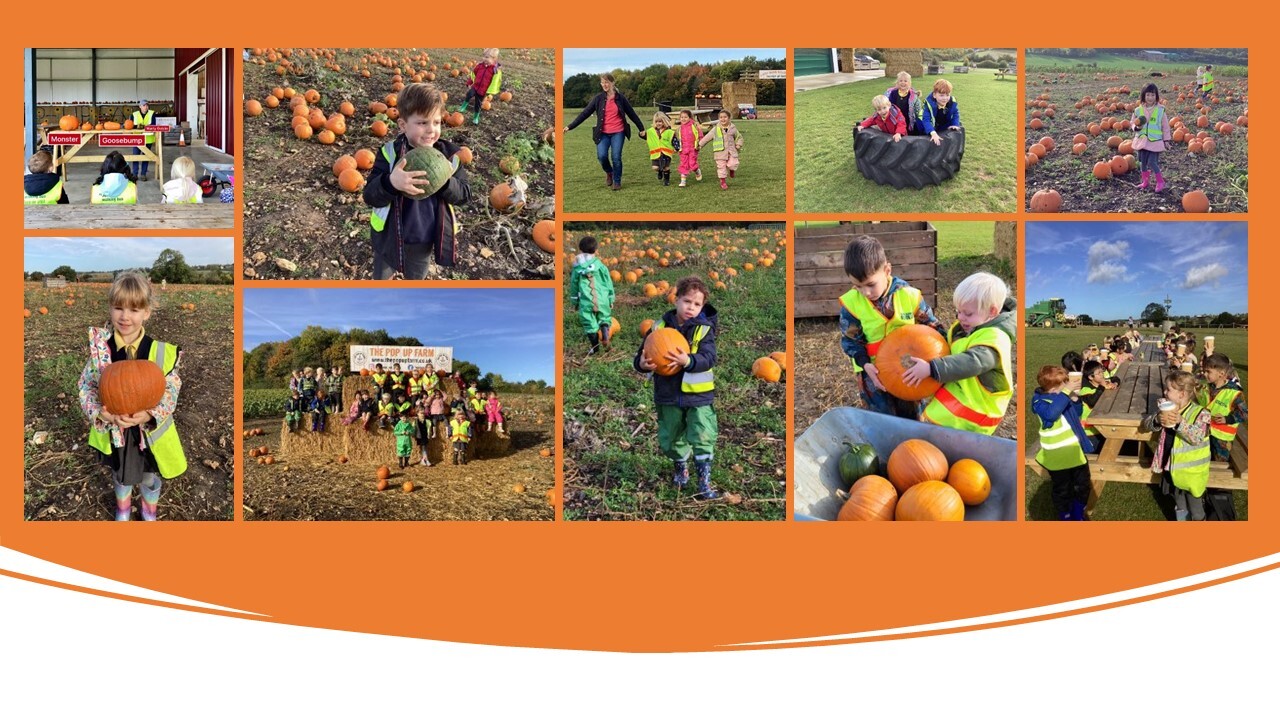
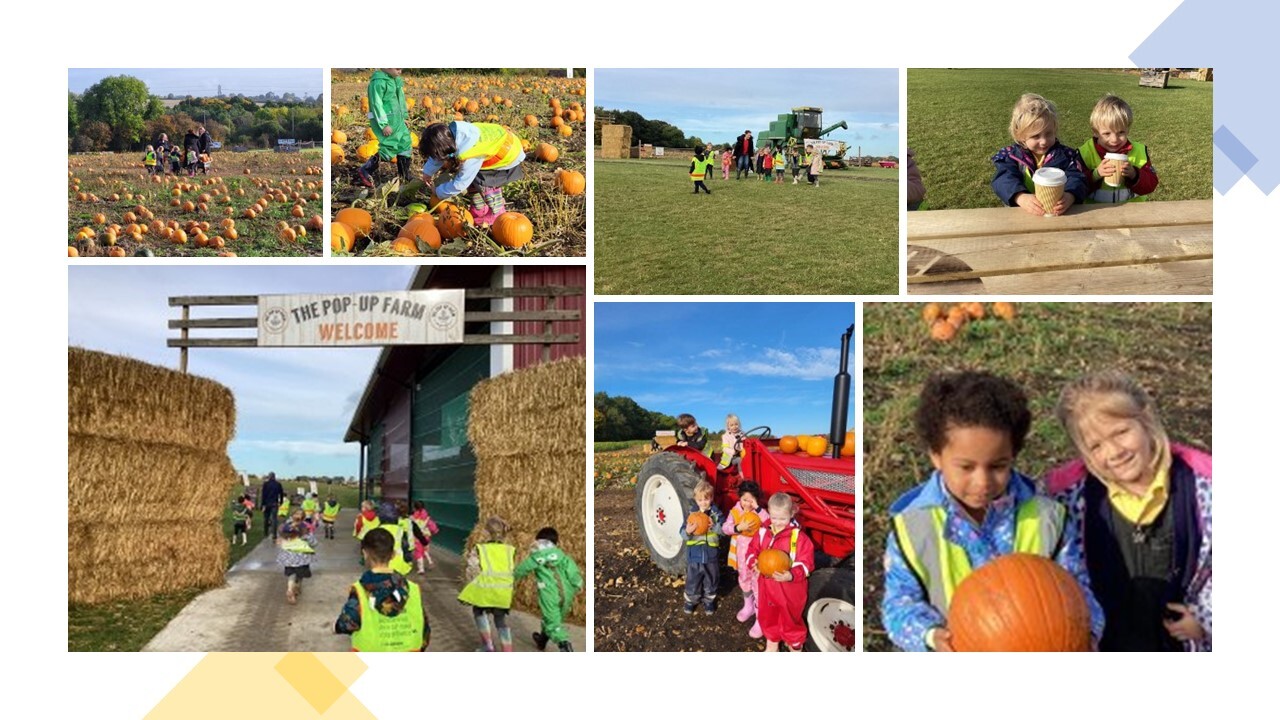
Year 6 Shakespeare Class, Scattergraphs
Year 6 team Shakespeare scientists gathering data for their investigation: what we act does leg length have on distance jumped? They then chose to plot on a scattegraph as there was no correlation between the two.
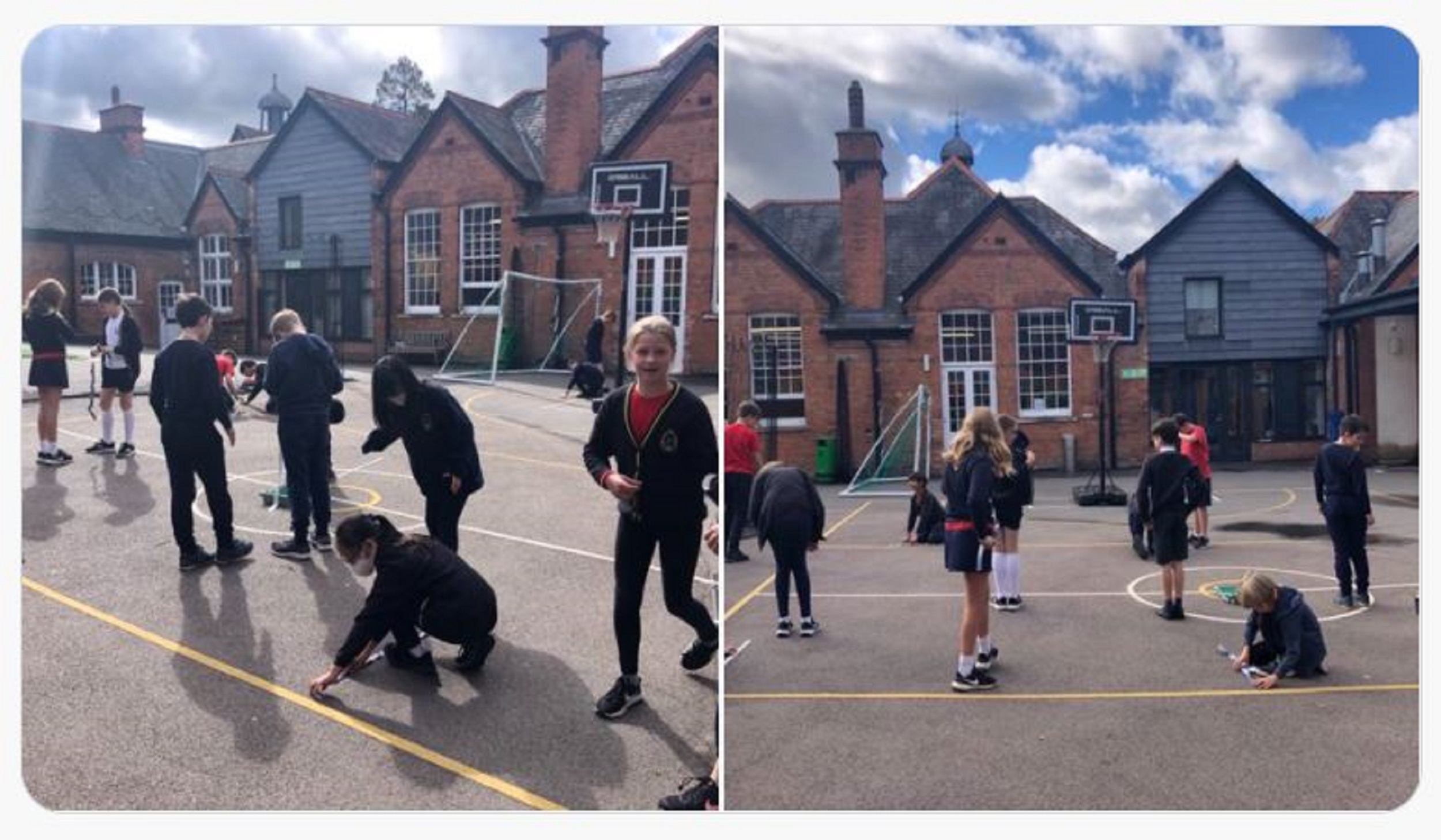
Year 6, Bones, Muscles and Tendons
Year 6 Team Shakespeare scientists making models of arms and hands to show the connection between bones, muscles and tendons as well as understanding how muscles work in antagonistic pairs - stretching and contracting.
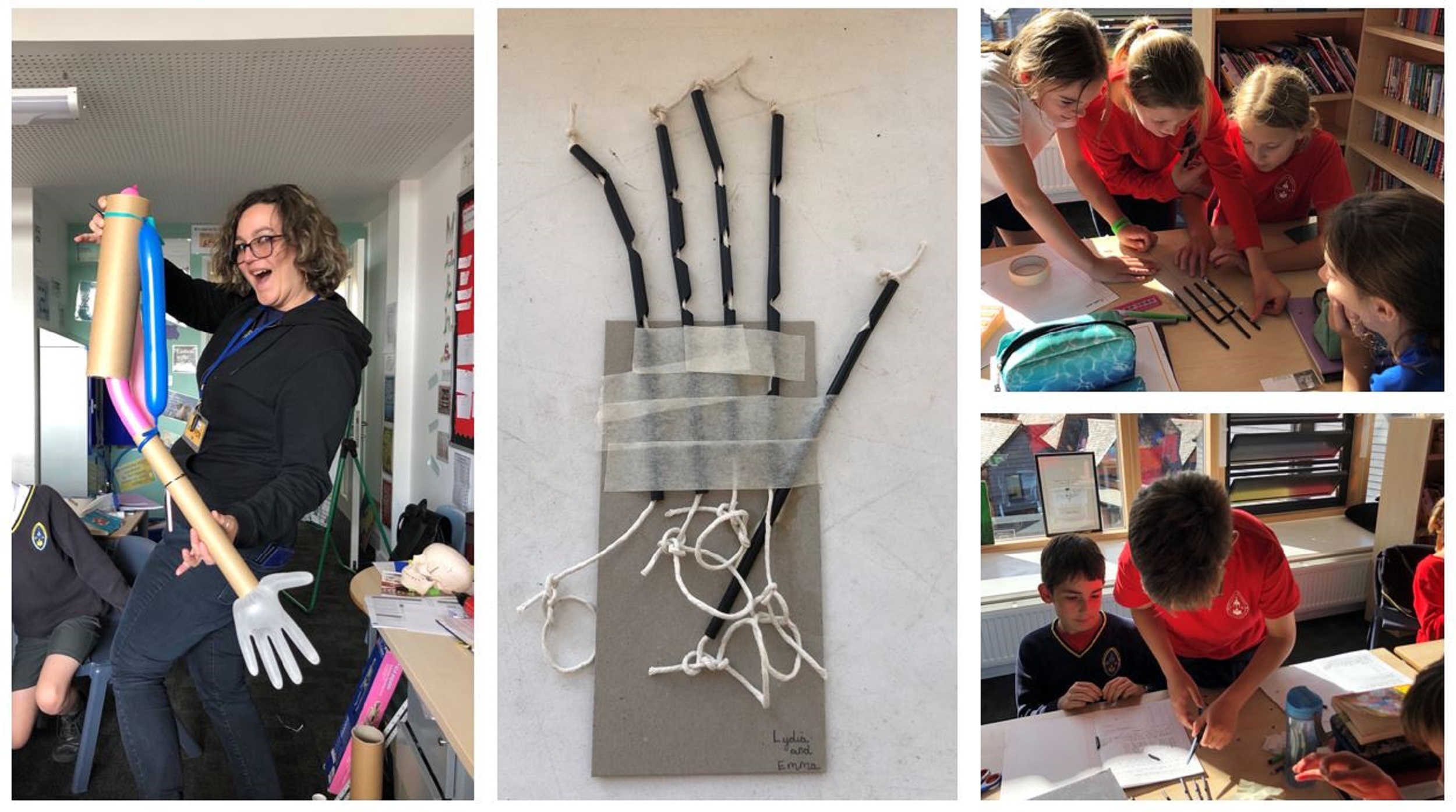
Year 3 Potter Class, Dependent Variables and Measuring
Super scientists in Potter Class have been investigating the question “Do people with the longest legs jump the furthest?” We learned how to identify the dependent variable and measure accurately.
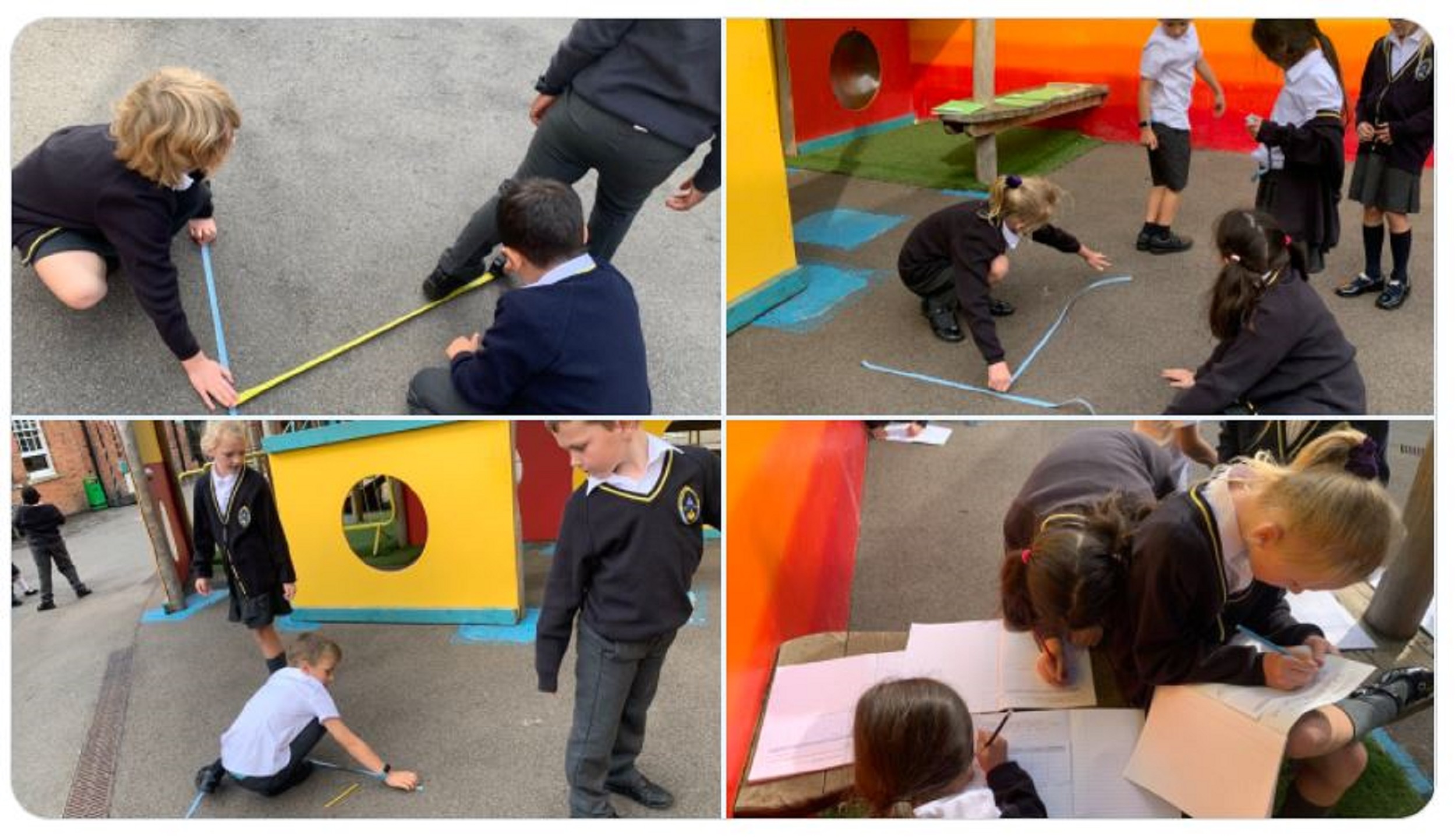
Year 1 Elmer Class, Passing Germs
Year 1 Elmer class continued their learning about passing germs with a glitter experiment. The first person dipped their hands in glitter glue and then we looked at how far we could transfer the glitter germs. We then investigated how long it took to wash our glitter germs away.
 Year 1 Elmer Class, Growing Sunflowers
Year 1 Elmer Class, Growing Sunflowers
Year 1 Elmer class were very grateful for a parent donation of a sunflower planting kit. The children loved finding their own seed in the old sunflower head and then planting it to start the life cycle all over again.
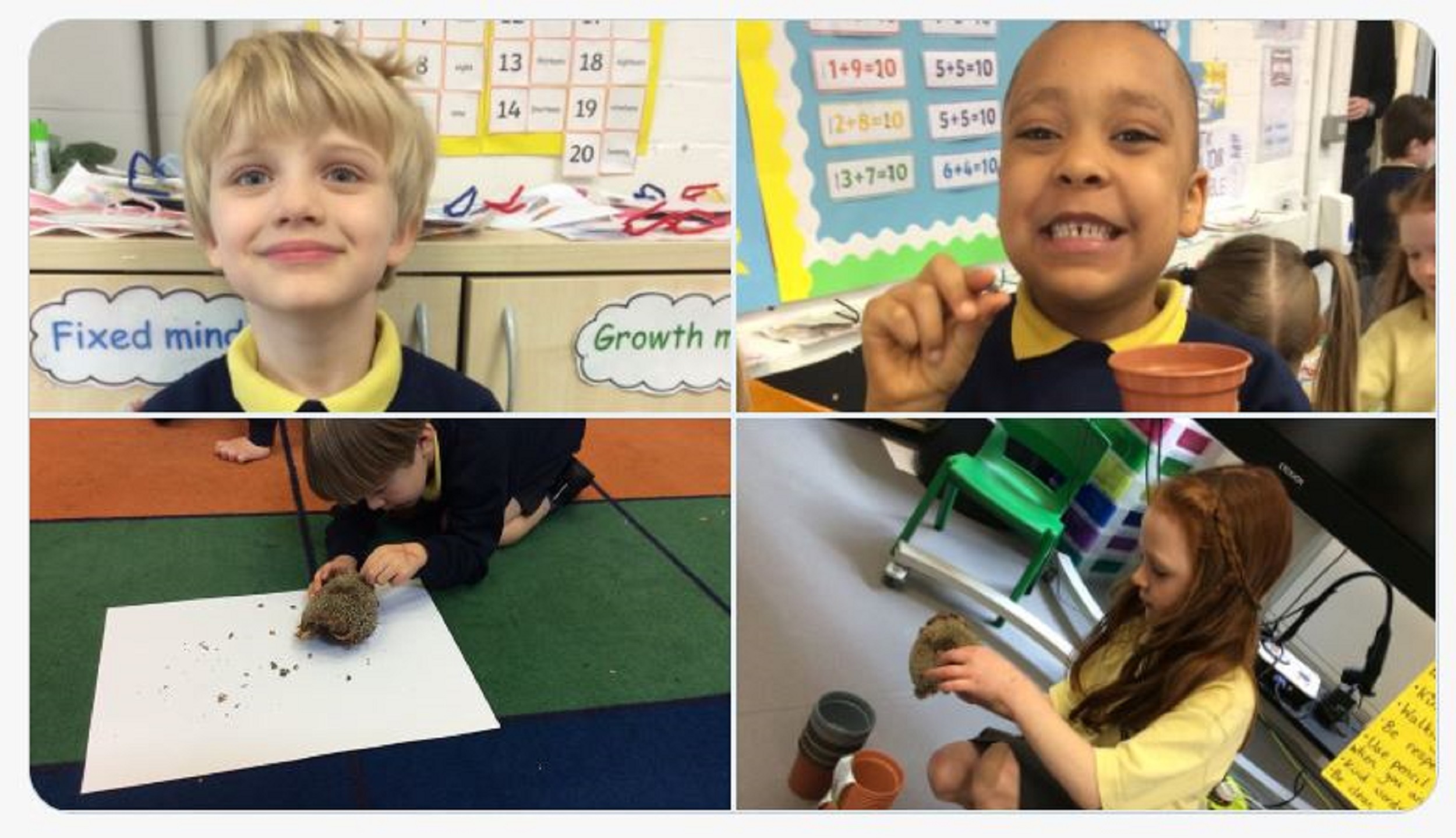
Year 1 Elmer Class, Transference of Germs
Today Elmer class have been learning about the transference of germs in Science. To get us thinking we made some 'safe snot'
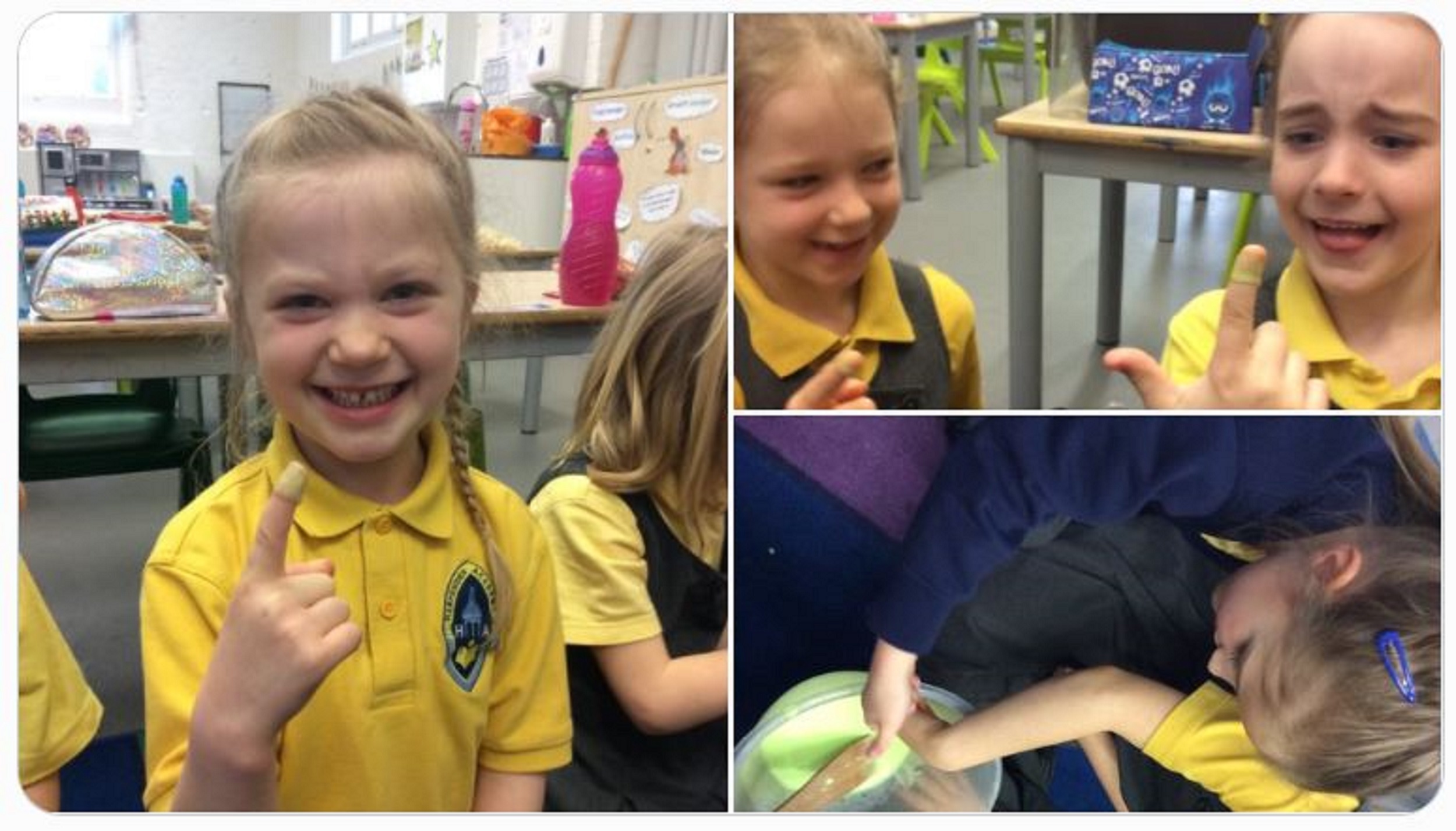
Year 6 visit SJL to learn about reptiles, waves, Ruben's tube and flame tests
SJL "We were delighted to host Year 6 pupils from for a science afternoon! They met Tim and Tyson our reptiles, watched waves in a Ruben’s tube and completed flame tests. A great afternoon!
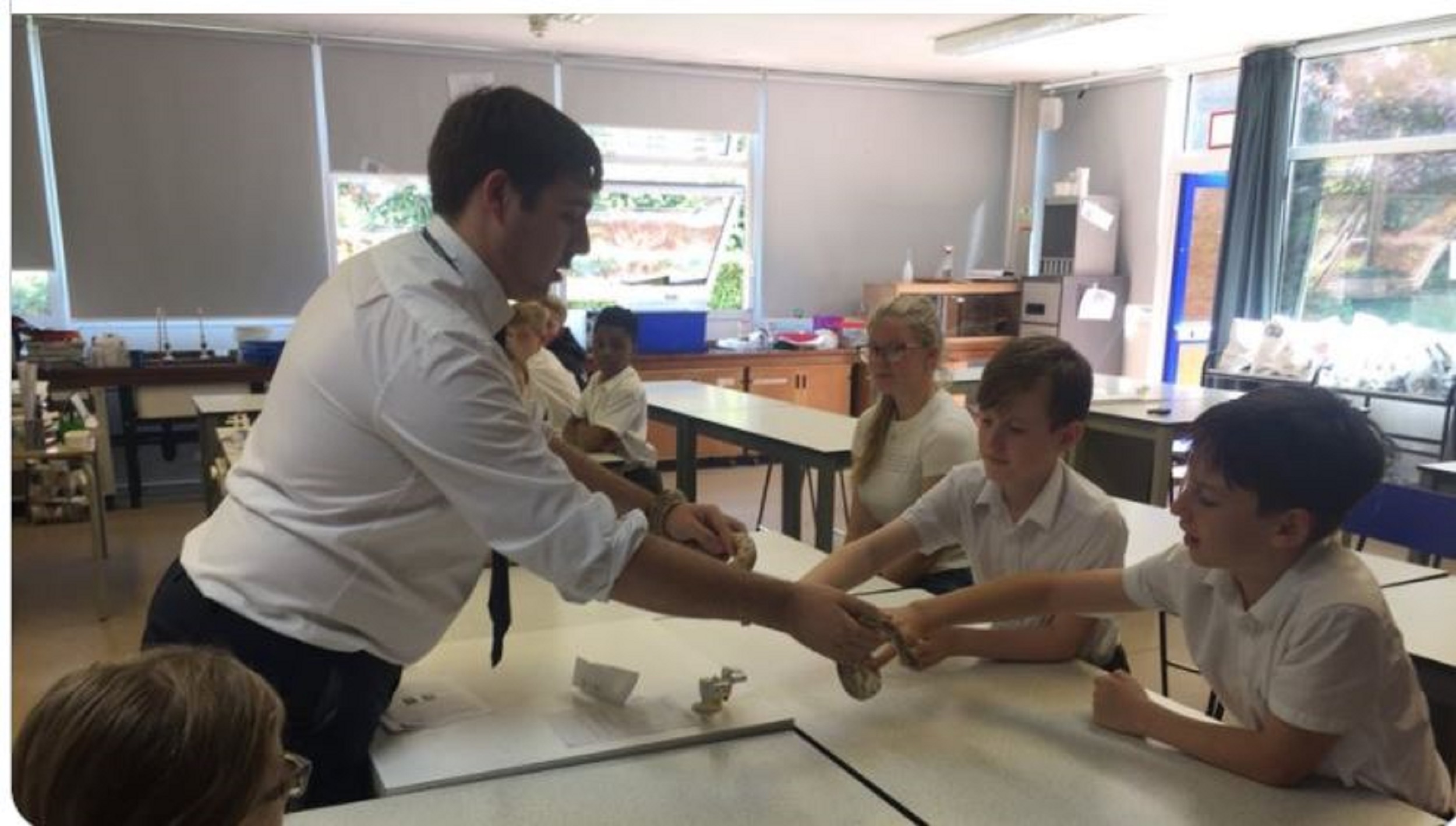
Year 6 labelling and explaining the parts of a plant
Year 6 scientists labelling and explaining the parts of a flower this week.
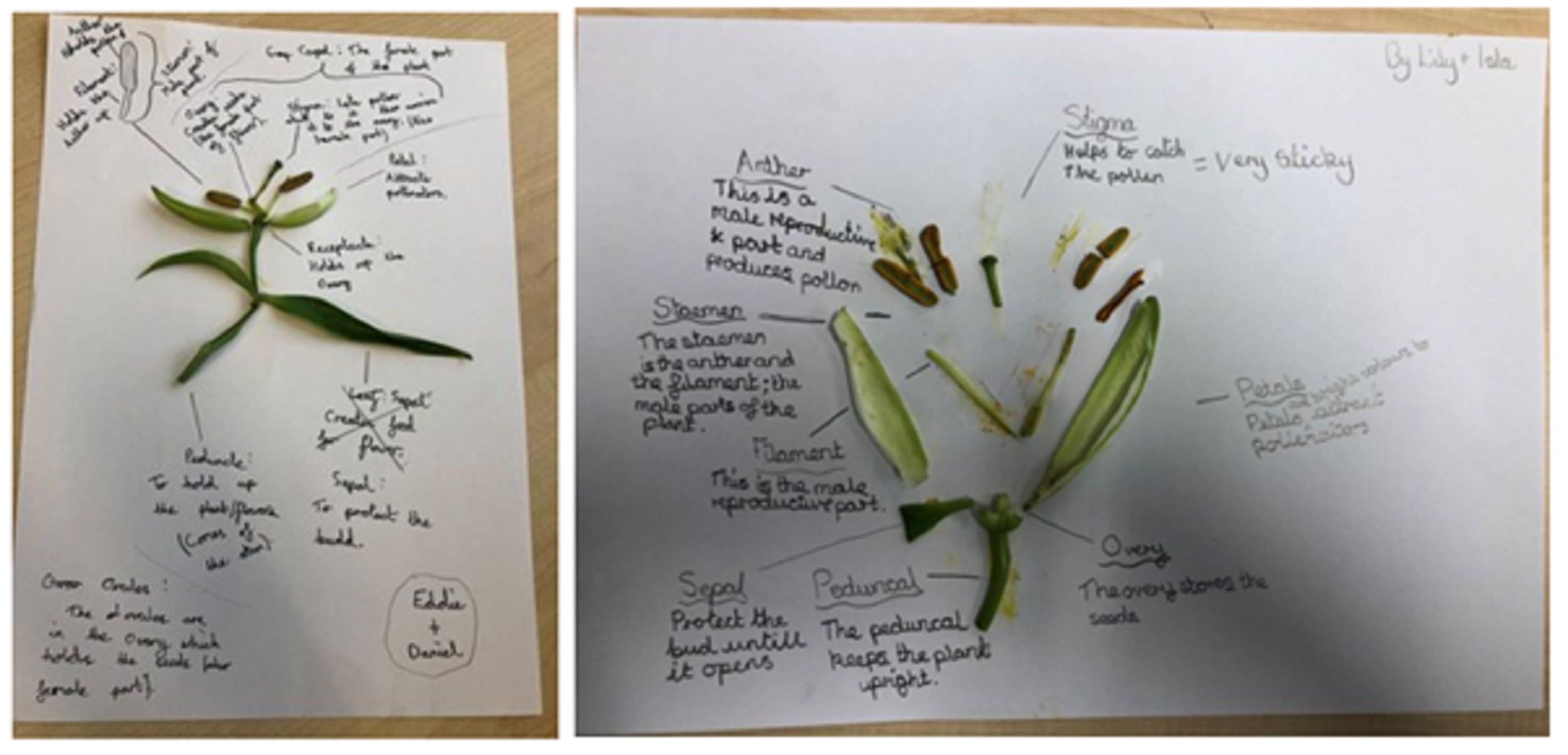
Year 6 looking at the Reproductive Part of a Plant
Year 6 scientists looking at the reproductive parts of the plant using microscopes: awe and wonder looking at pollen grains and ovules!
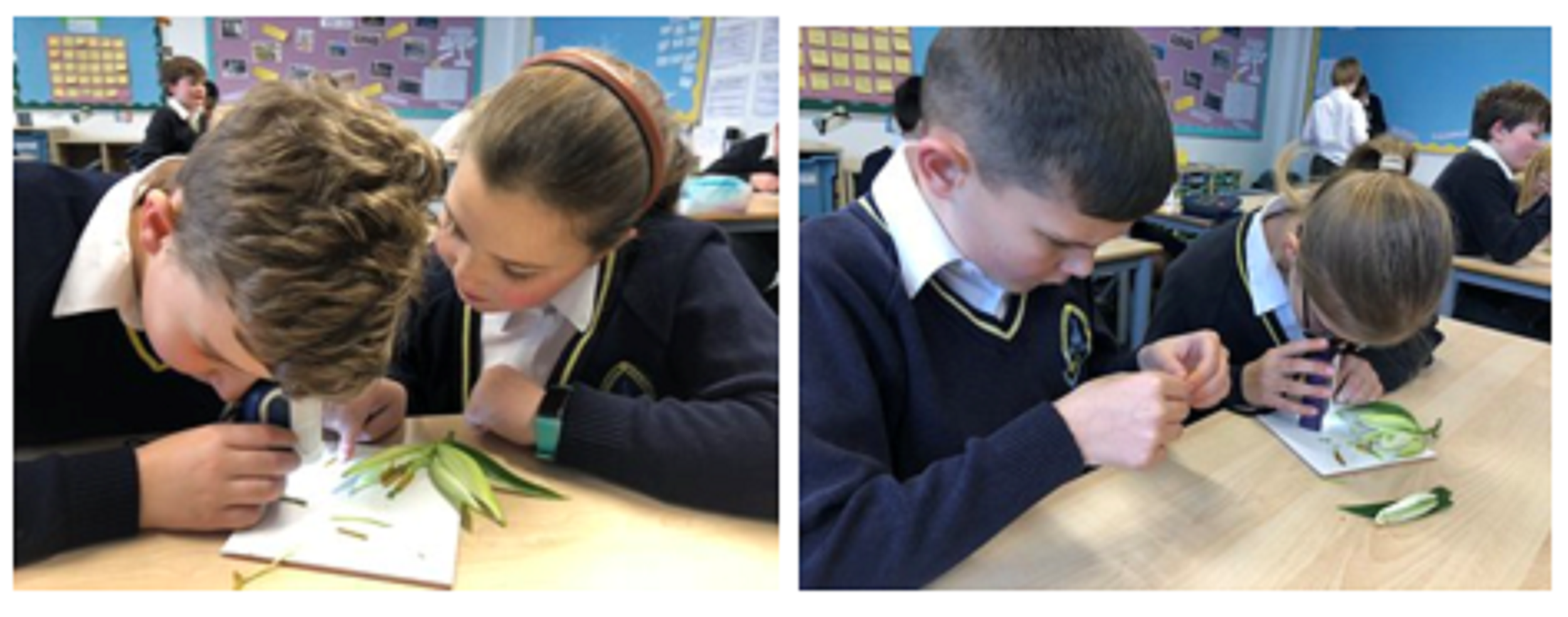
Year 5 dissecting a plant
Year 5 scientist dissecting a plant to identify the parts involved in fertilisation and pollination.
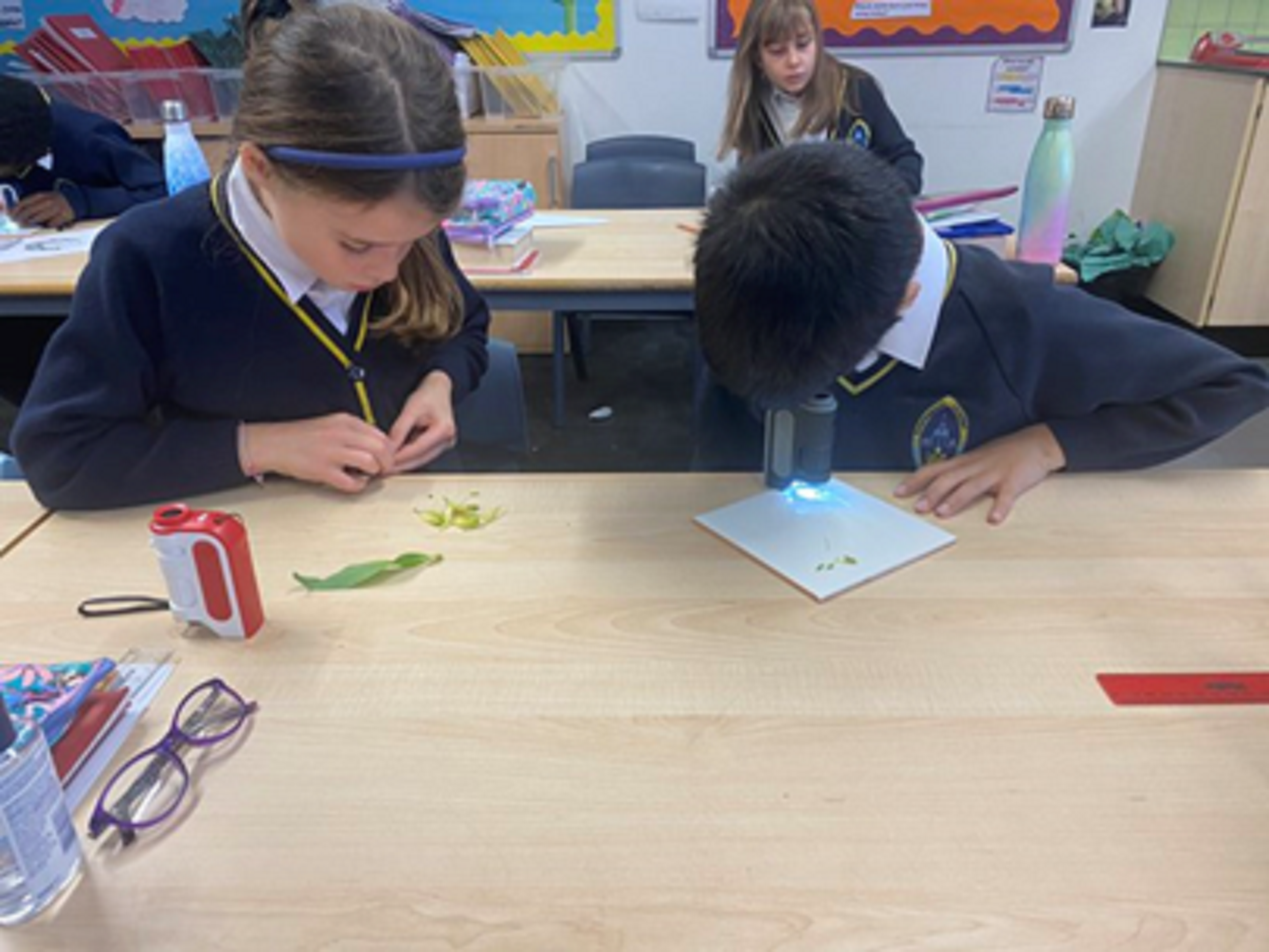
Year 6 investigating Wind and Animal Pollination
Year 6 Scientists investigating wind and animal/insect pollination.
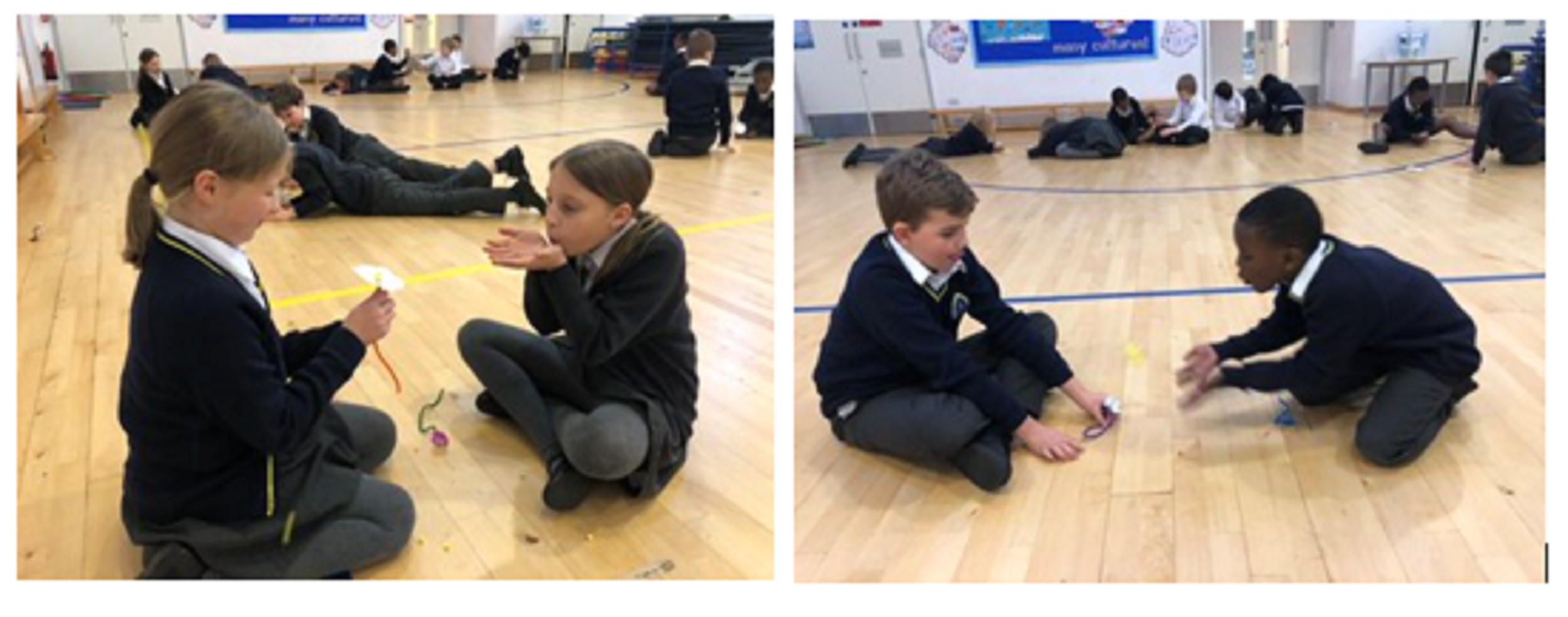
Year 1 making Catapults
Elmer class have been busy making catapults in Science. We had great fun learning about how flexible certain materials are.
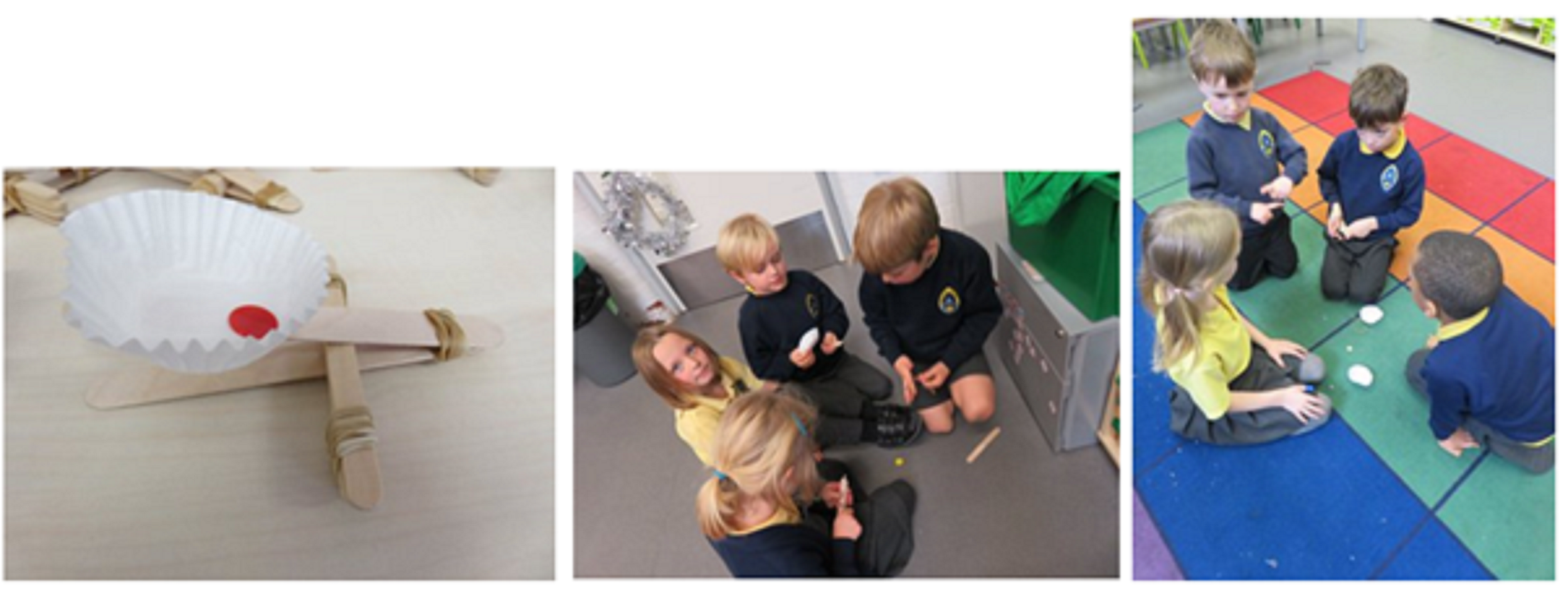
Year 5 investigating plants
In Dahl Class, we tested different liquids, colour of light and plant food effects on plant growth!
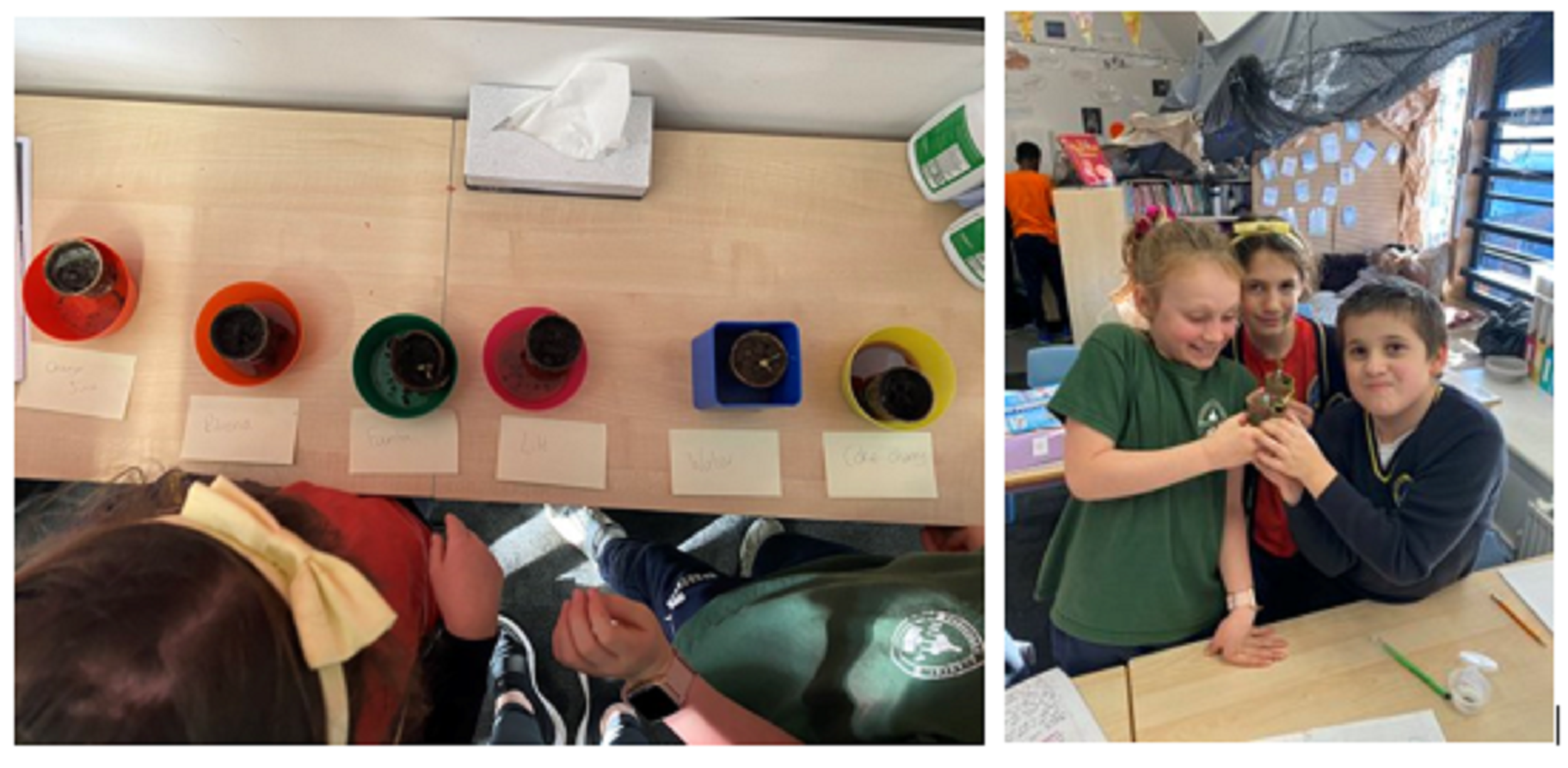
Year 3 investigating the Capillary Action in a Stem
Creating awe and wonder in Potter class when investigating the capillary action in a stem. Year 3 wanted to find out if the colour of the solution affected the time it took to travel.
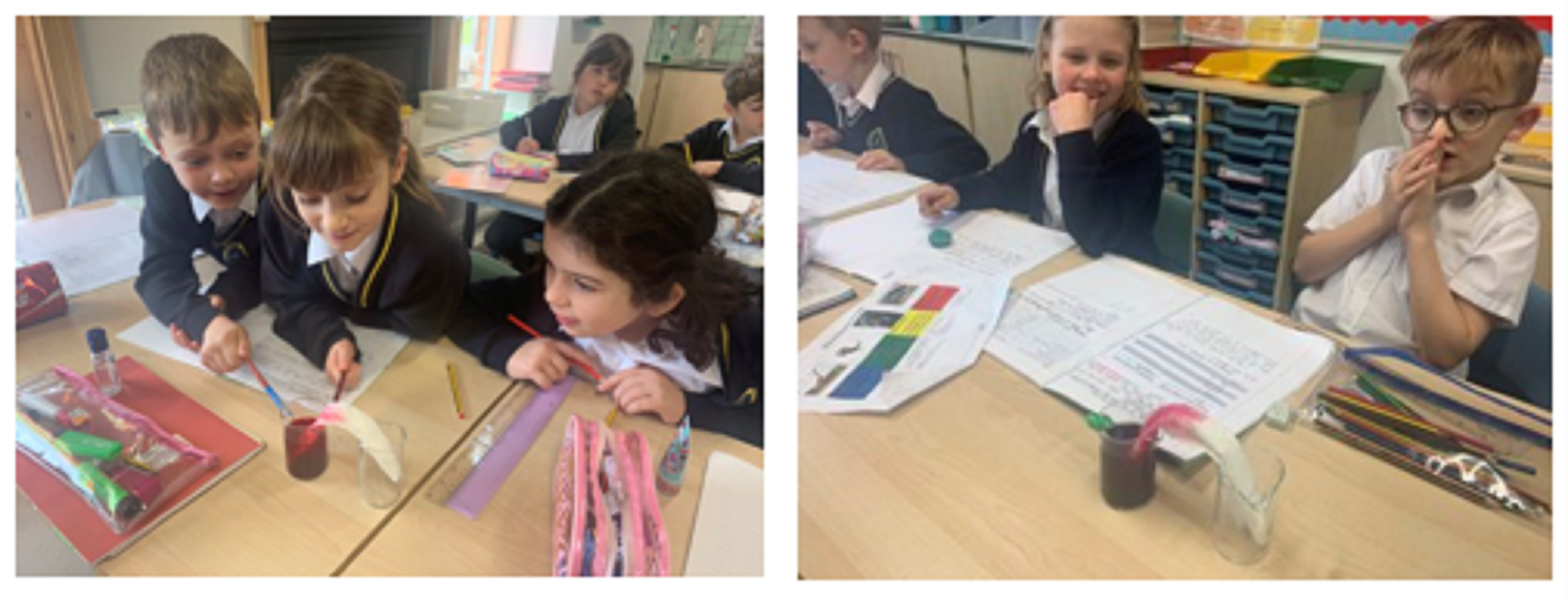
Plant Root System, Year 6
Super Year 6 scientists creating a model of a plant roots system in order to test how different factors affect water being absorbed up the roots.

Learning about roots in Year 5
Dahl class have also created models to show the function of roots using string and red food dye.
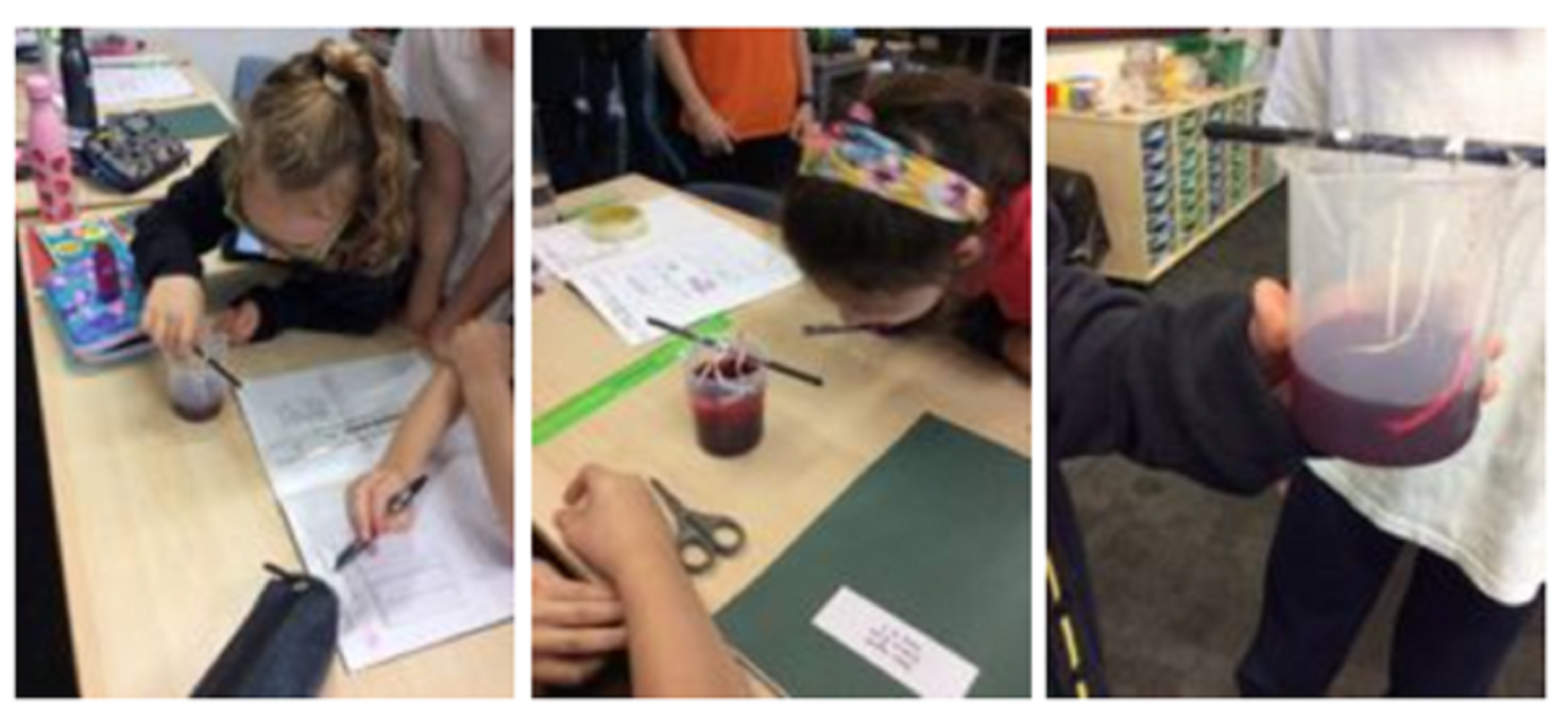
Which ball bounces the highest? Year 2
In Science this week in Year 2 Moomin Class we were investigating which ball would bounce the highest. We came up with different ways to test this and how we were going to keep it a fair test. After we had tested the balls we sorted them into a Venn diagram using hoops and discussed the results.
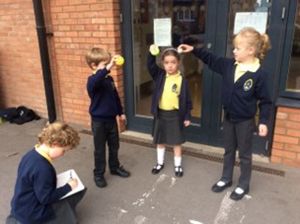
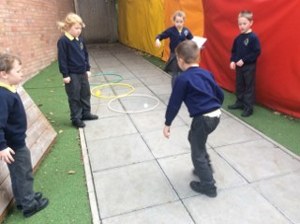
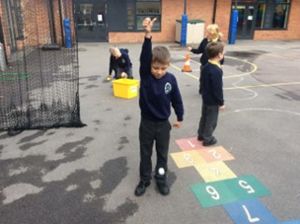
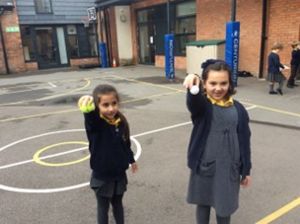
Science Week at Harpenden Academy!
Our Diverse Planet
Mark, from Empiribox Science, started Science Week off with a bang in assembly!
Ladybird Class got a letter from an elephant today, he was very upset that someone has stock piled all the elephant toothpaste so he asked us to make him some!!
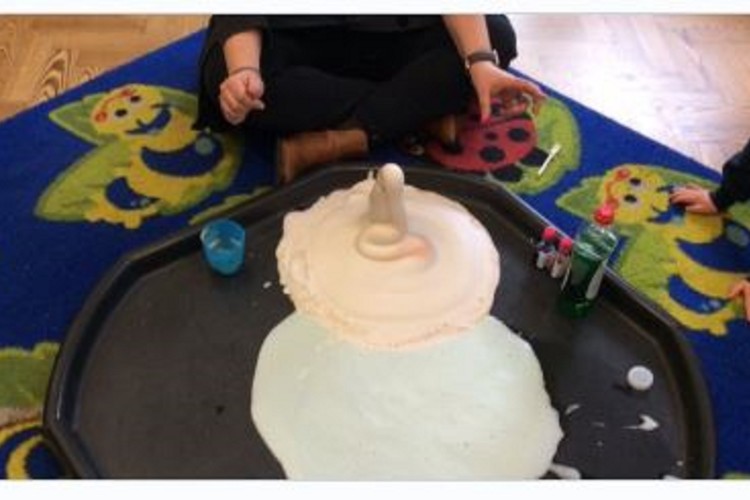
Look at our EYFS Snuffle Station we have created to help encourage the children to be healthy and wash their hands
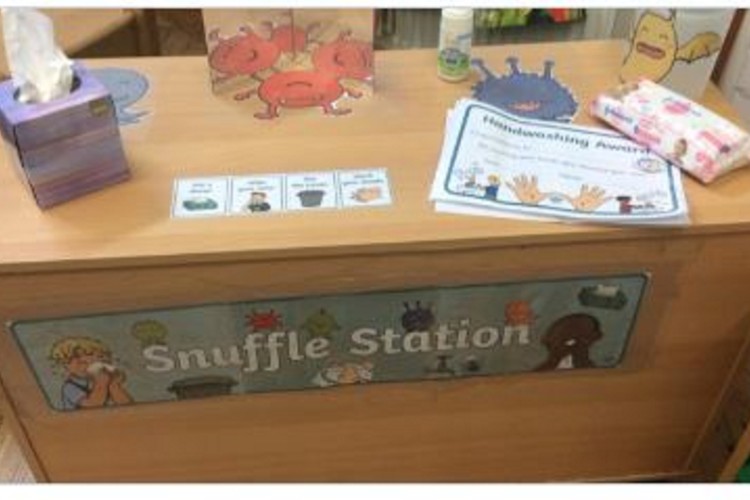
The children (and staff) were absolutely inspired by our visitors on Tuesday morning - Plant Geneticists from Rothamsted. We were very lucky to learn about the work going on in our locality and the fascinating experiments they are involved in.
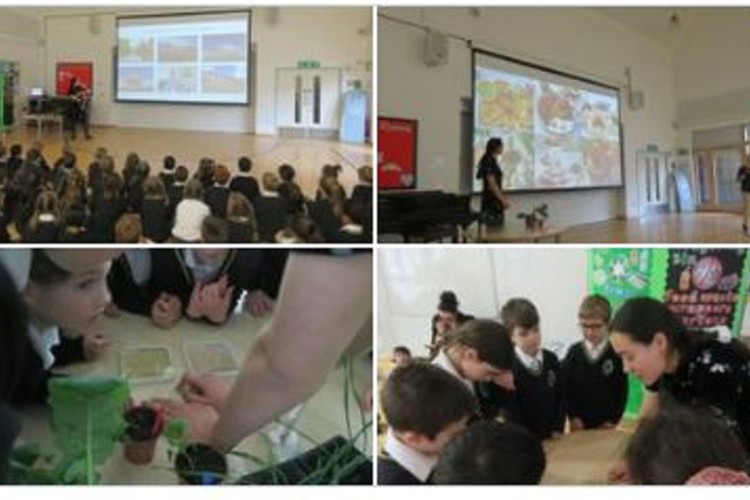
Fascinating visit from one of our scientist parents to share his expertise on heart attacks and heart technology such as defibrillators.
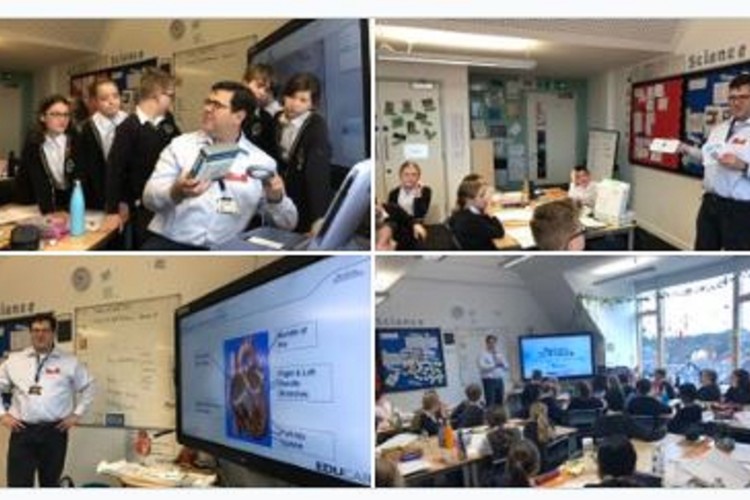
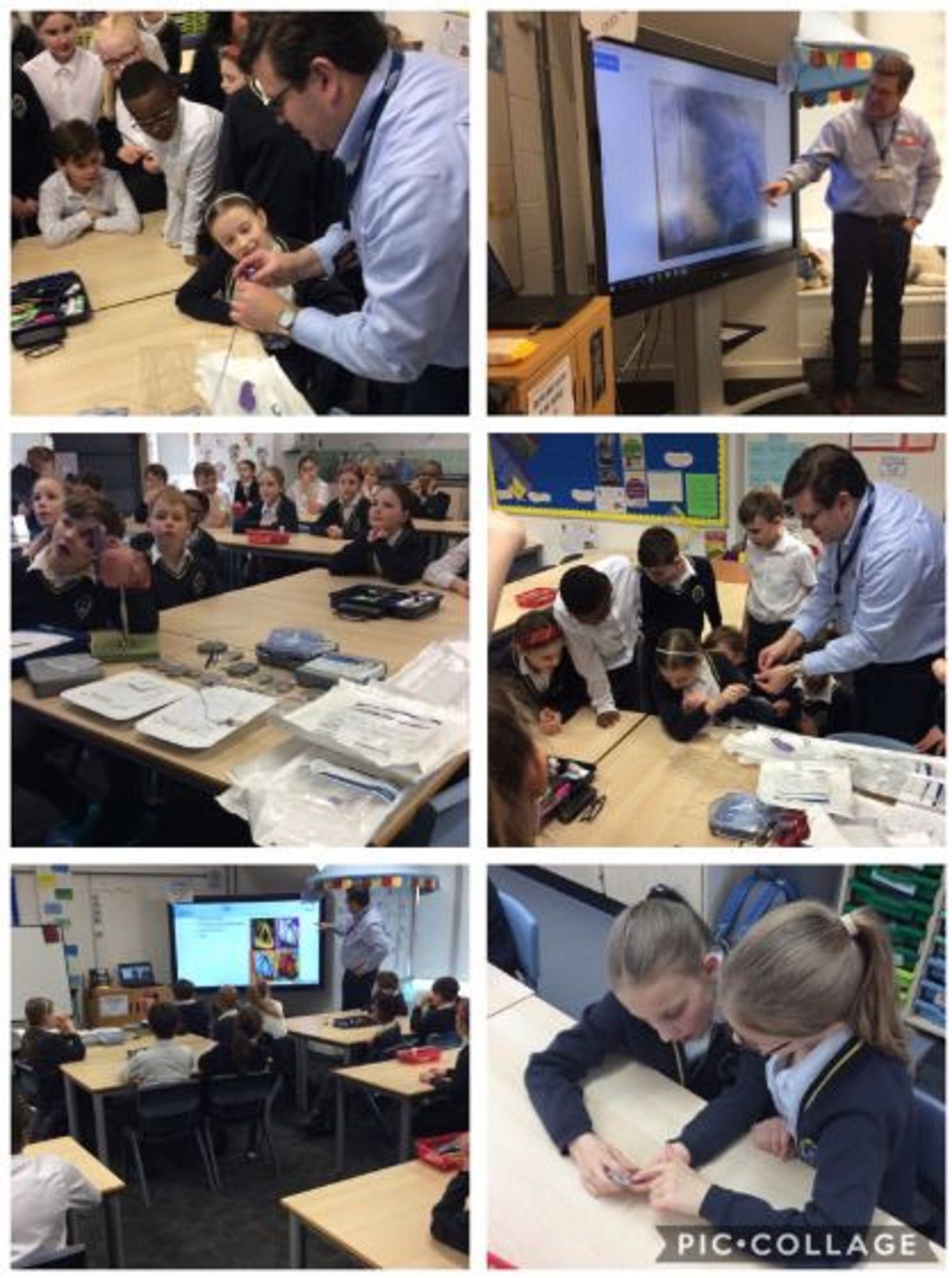
Kerr Class had fun today on our first day of science week learning about air resistance. How many eggs did we break?
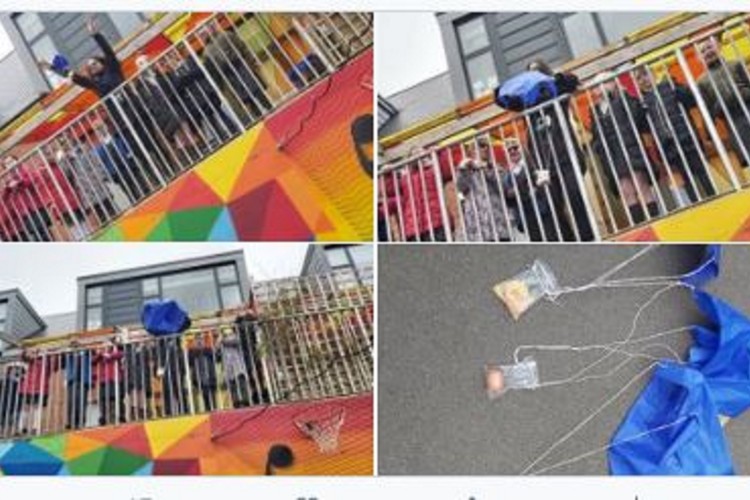
Y4 Austen started Science week learning about water resistance. The children researched different boat shapes and then conducted an experiment exploring which shape made the quickest boat
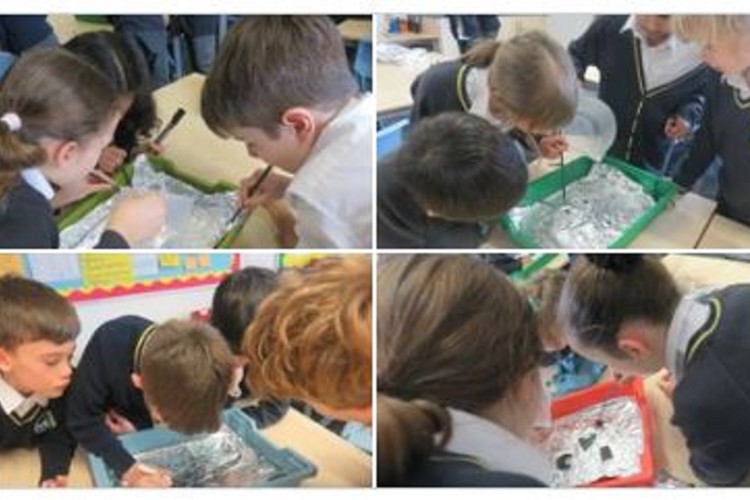
Pedal Power!! We loved being competitive and racing against each other. Fantastic links with Science made learning about potential and kinetic energy.
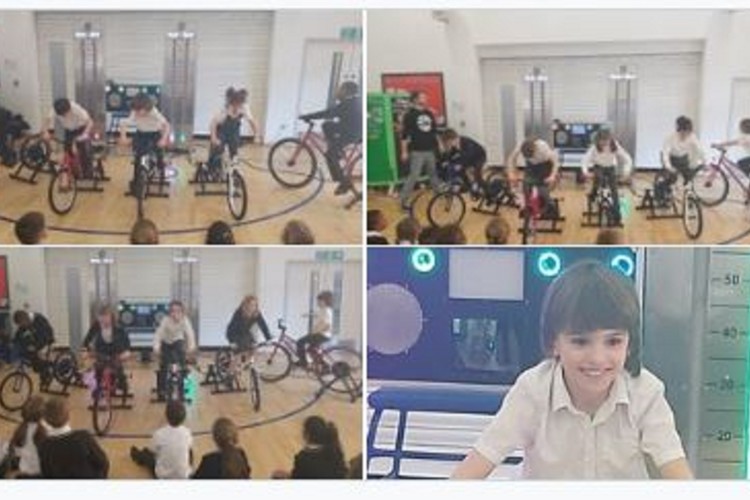
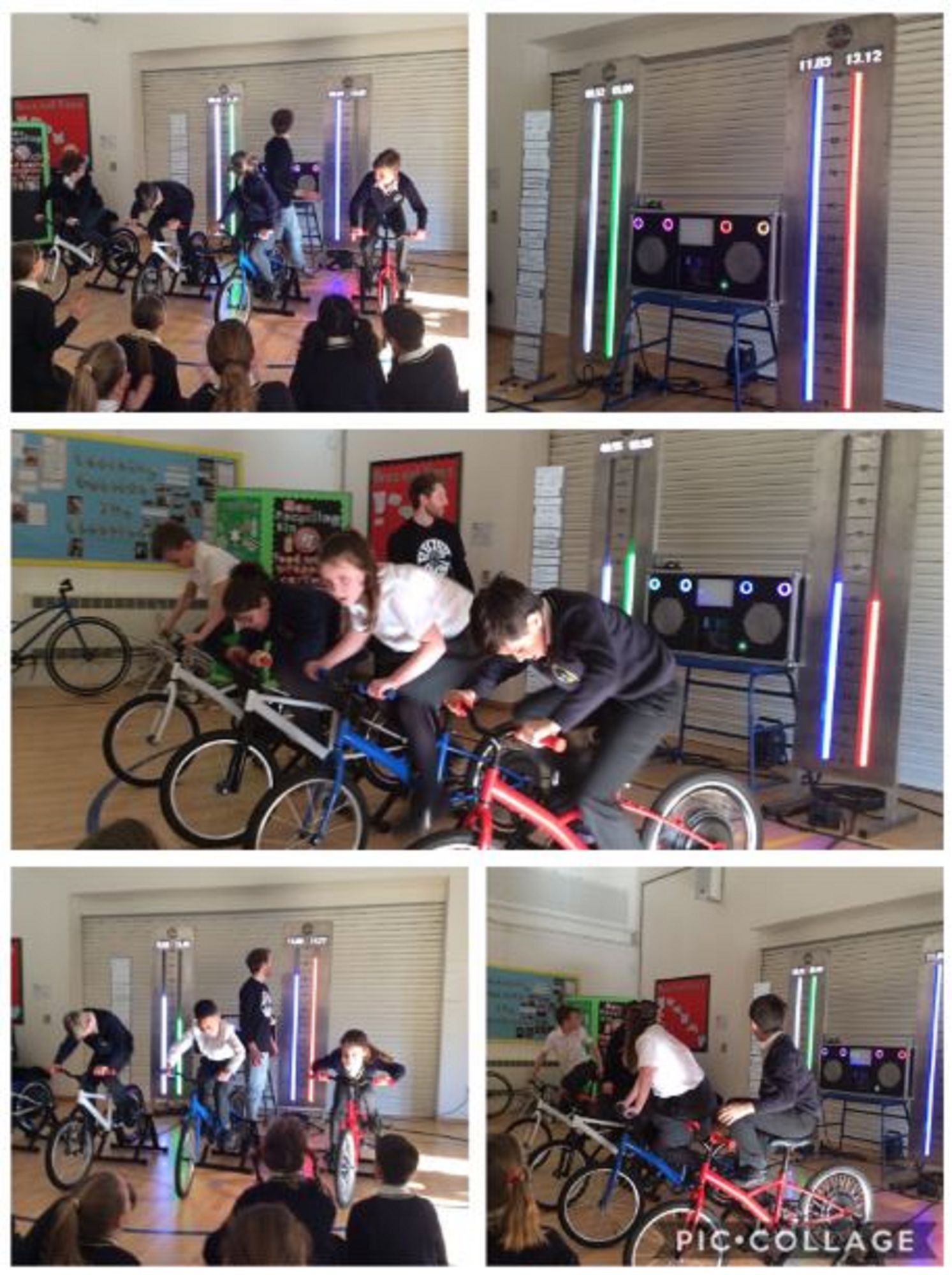
Heart dissection for Year 5 and 6 scientists learning first hand about valves, arteries, veins, ventricles and heart strings
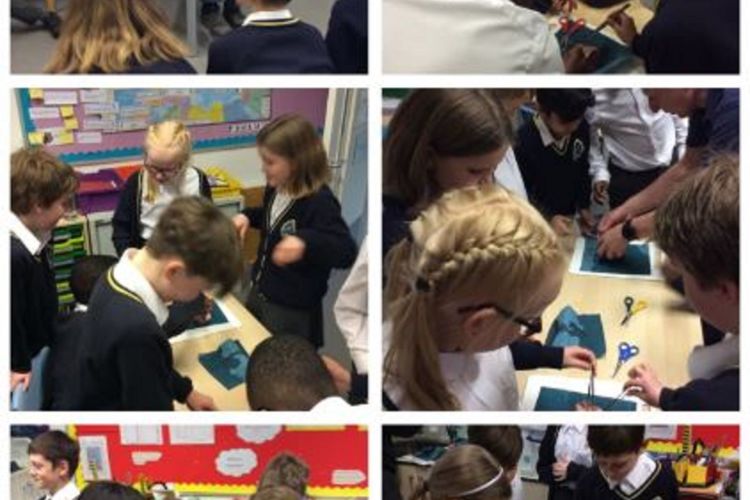
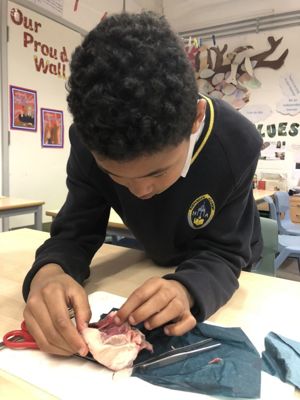
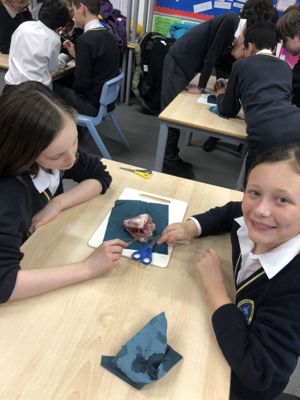
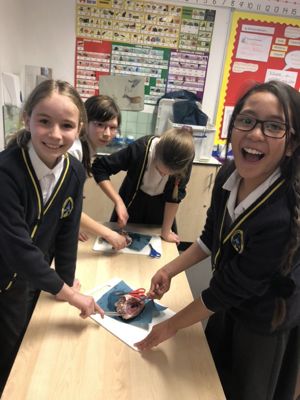
Year 1/2 Elmer and Aslan class learned about how our blood clots when we are hurt and even made their own blood
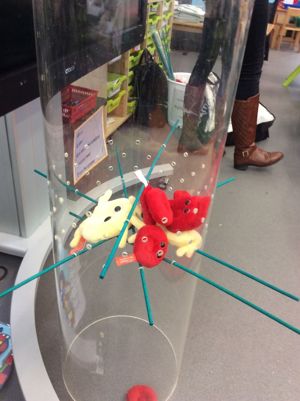
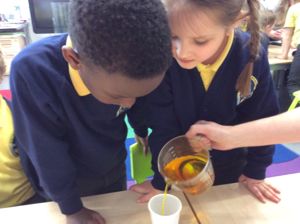
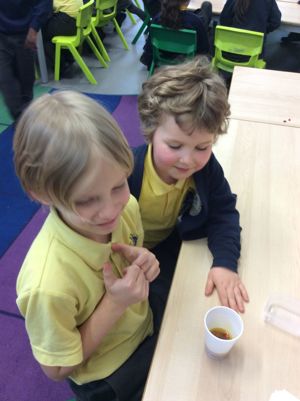
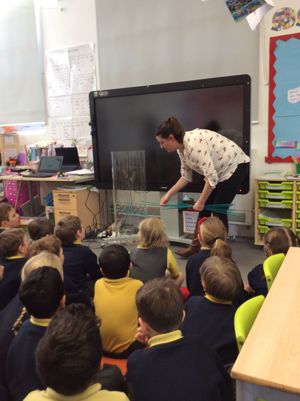
Year 1/2 Aslan Class visit Kew Gardens - click on the picture to see more photos of their visit
Year 3 Potter class investigated how forces affect the speed of an object
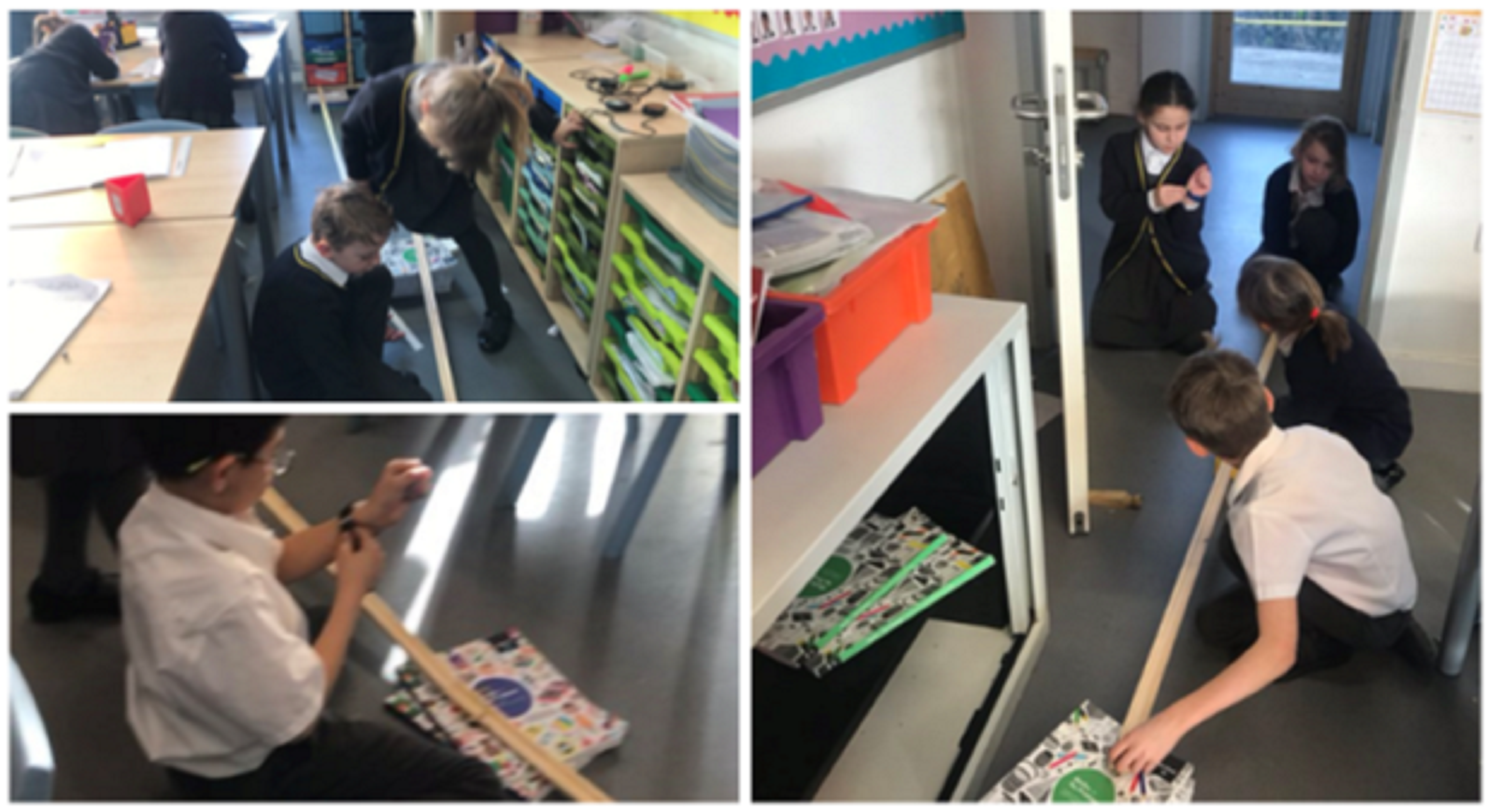
Science a-go-go, KS2, Forces
The children have been buzzing with excitement this week as we have had experiments exploding all over the place, as we investigate our topic of Forces in KS2.
In assembly we demonstrated the power of carbon dioxide reacting with water in a confined space—all very exciting! Parents can see this on our twitter feed. The science scheme, which we bought through our fundraiser “Grow your Pound” and a £1000 donation from local business BPH Wealth Management LLP, has really ignited the children’s love of science and their curiosity as to how many things behave as they do.
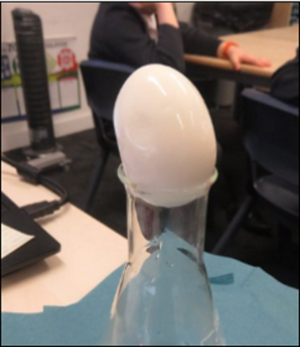
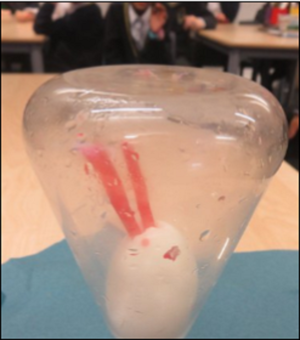
Year 4, Austen class LOVED making their own pop rockets to start their learning about Forces. We also finished the lesson with a good old tug of war using Magdeburg Spheres!
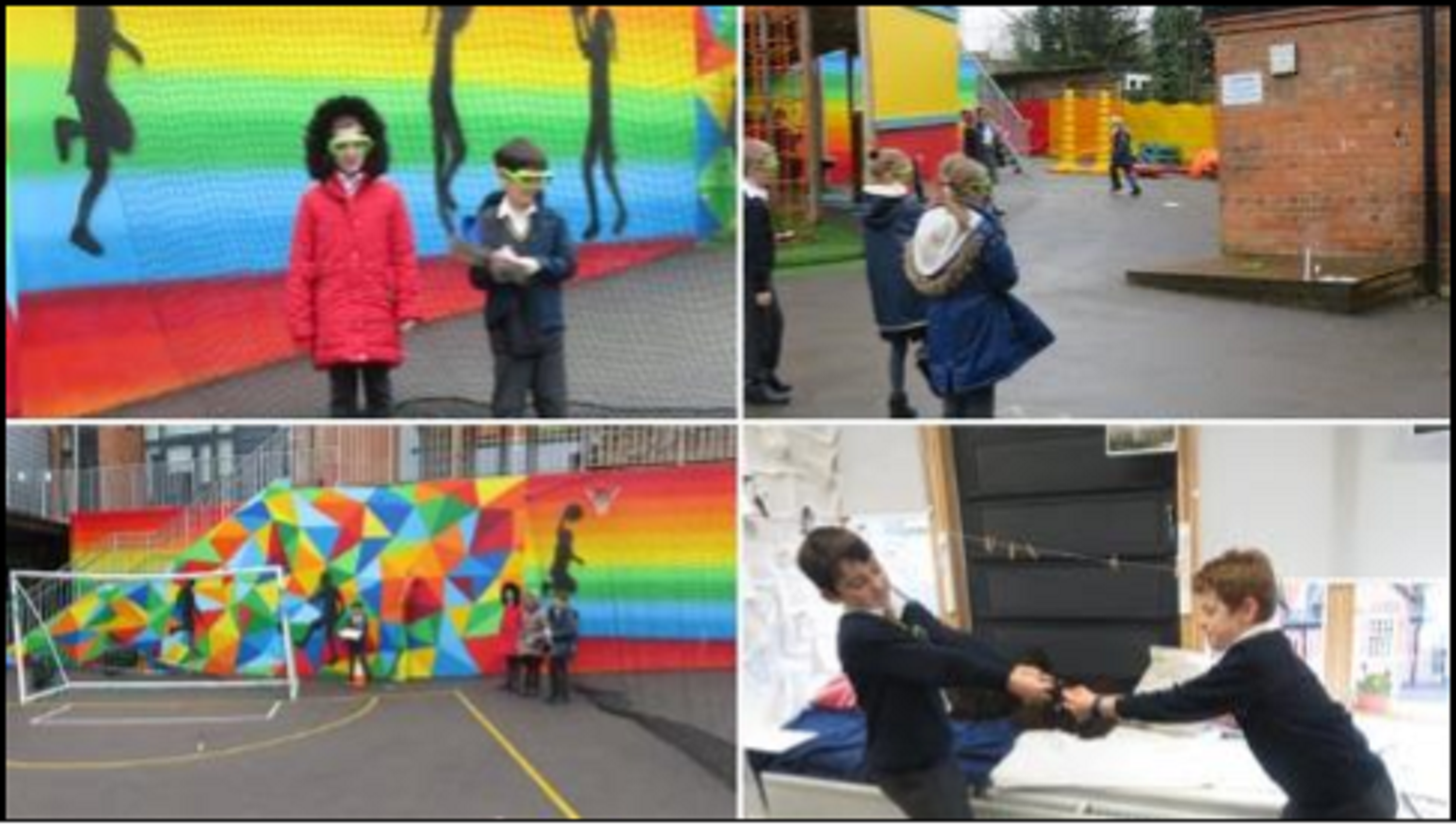
Year 4, Austen Scientists learning about gravity and air resistance
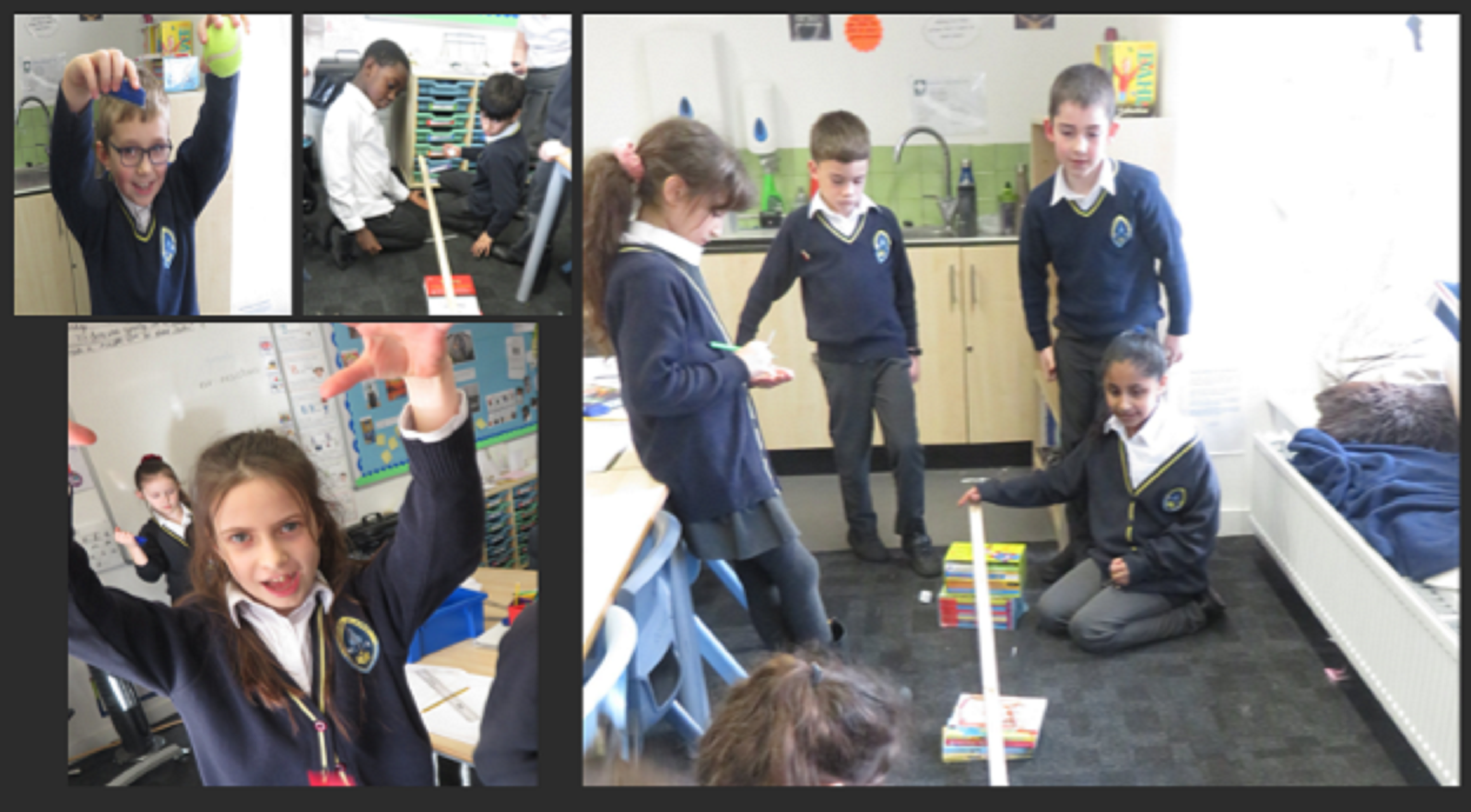
KS2 Science Magnetism Workshop
Magnetism workshop for KS2 Science—Scientists buddying up to answer their magnetism questions about magnetic poles, magnetic fields and magnet strength
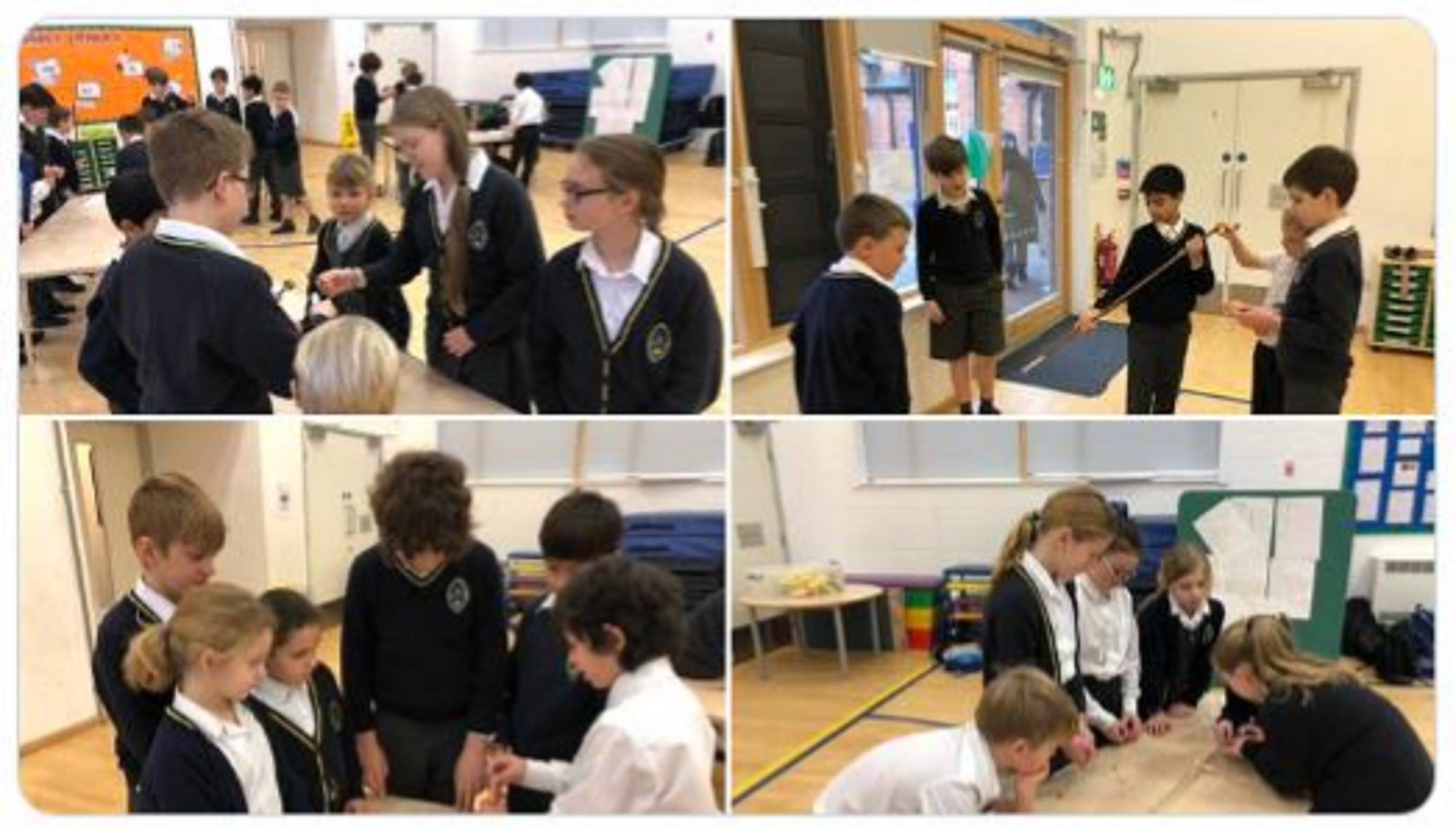
More magnetism magic...
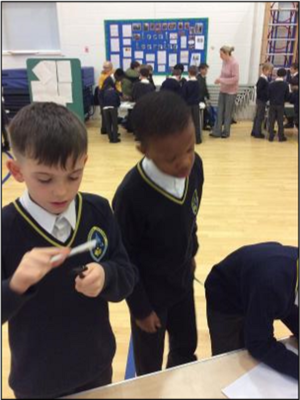
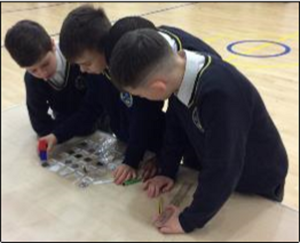
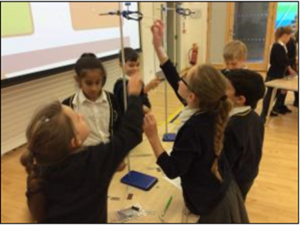
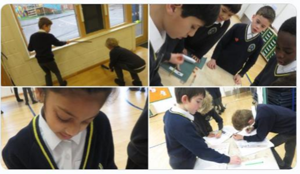
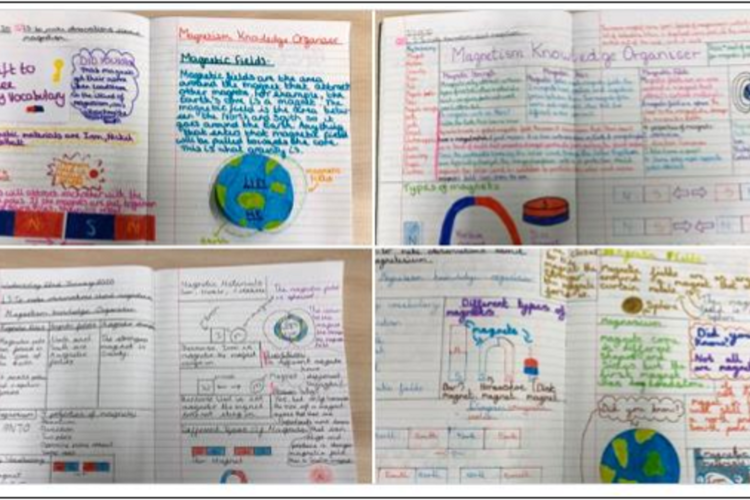
Year 5, Dahl Class, Making Greenhouses
In Science, Dahl class explored the conditions needed for plants to grow. We made our own greenhouses which we have placed in different conditions around school e.g. light/dark, cold, warm. We will continue to monitor them over the coming weeks to find out which conditions are best to enable our seeds to grow!
Kerr and Austen Class visit The Living Rainforest
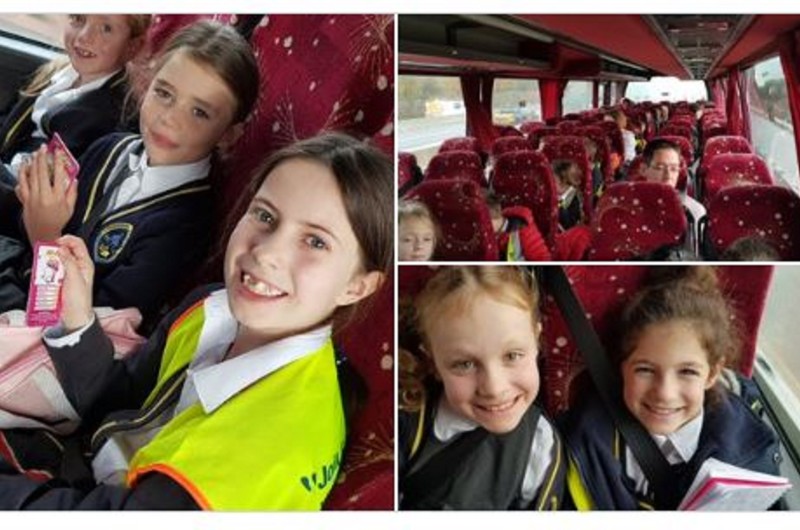
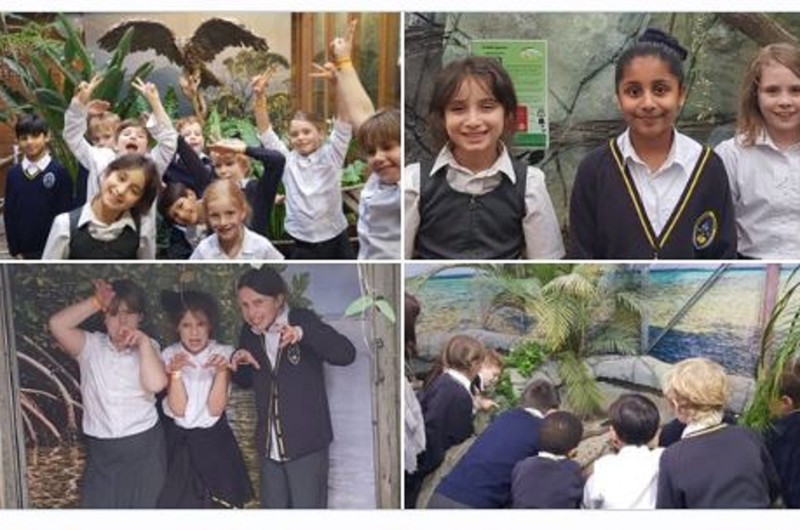
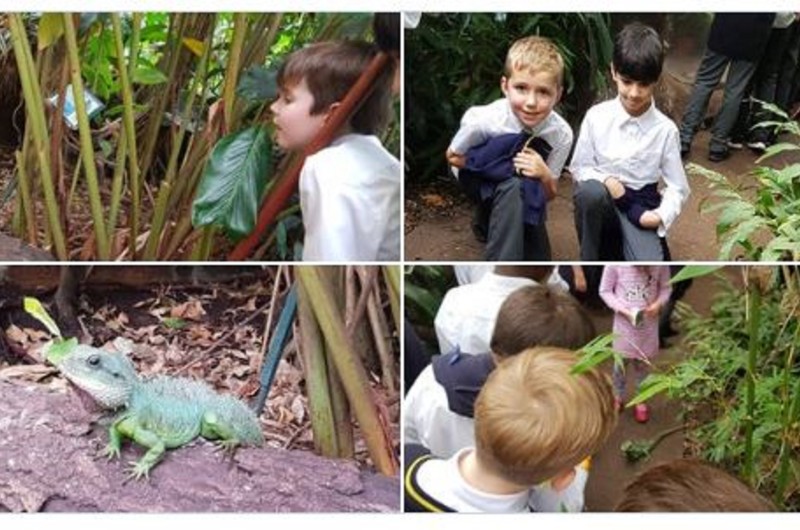
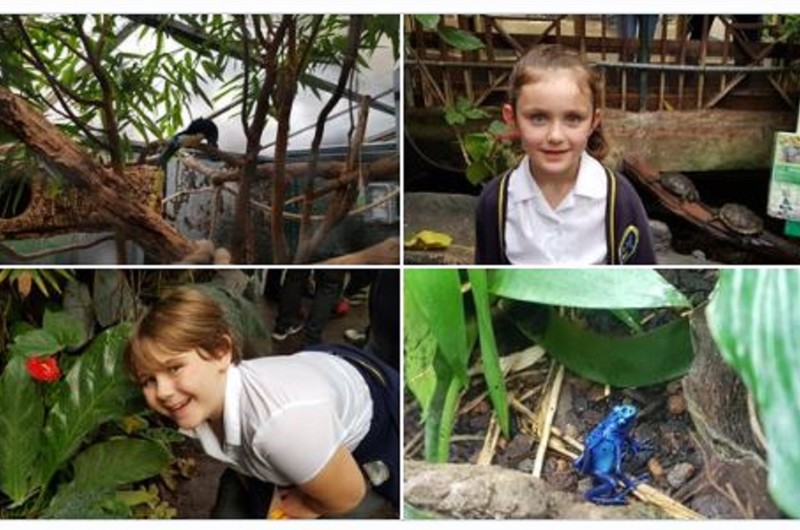
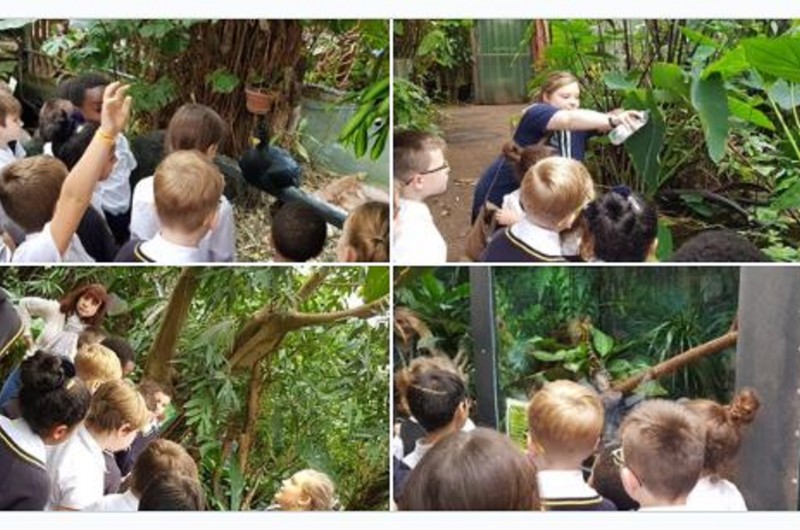
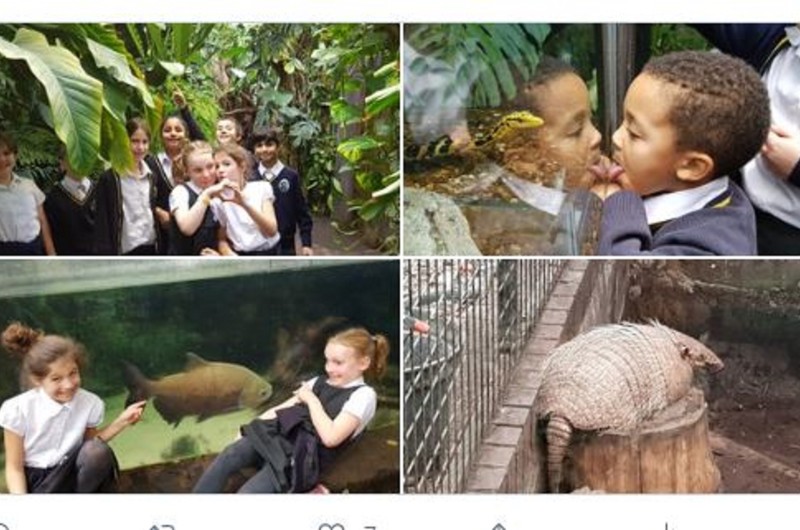
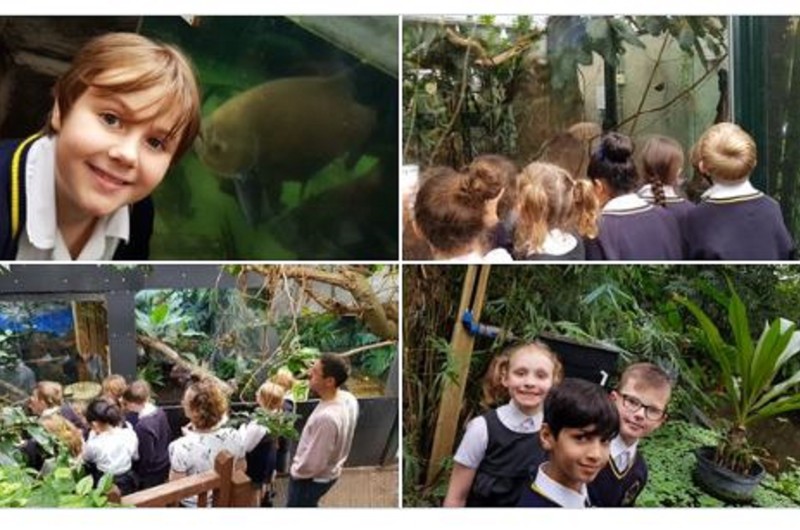
KS2 Nature Walks
This week 3 classes have been on a nature walk relating to our Science topic. The children were searching for mini beasts, eggs and plants and observing them in our local habitat. There are still some remaining classes still to do their walks so if parents can volunteer their time to accompany them that would be terrific.
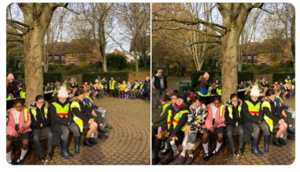
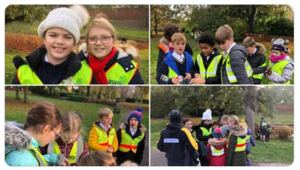
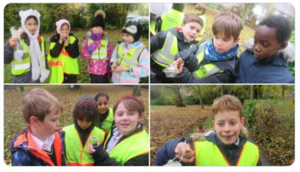
Materials and their Properties, Year 6
Great session in Year 6 using concrete materials to explore common factors.
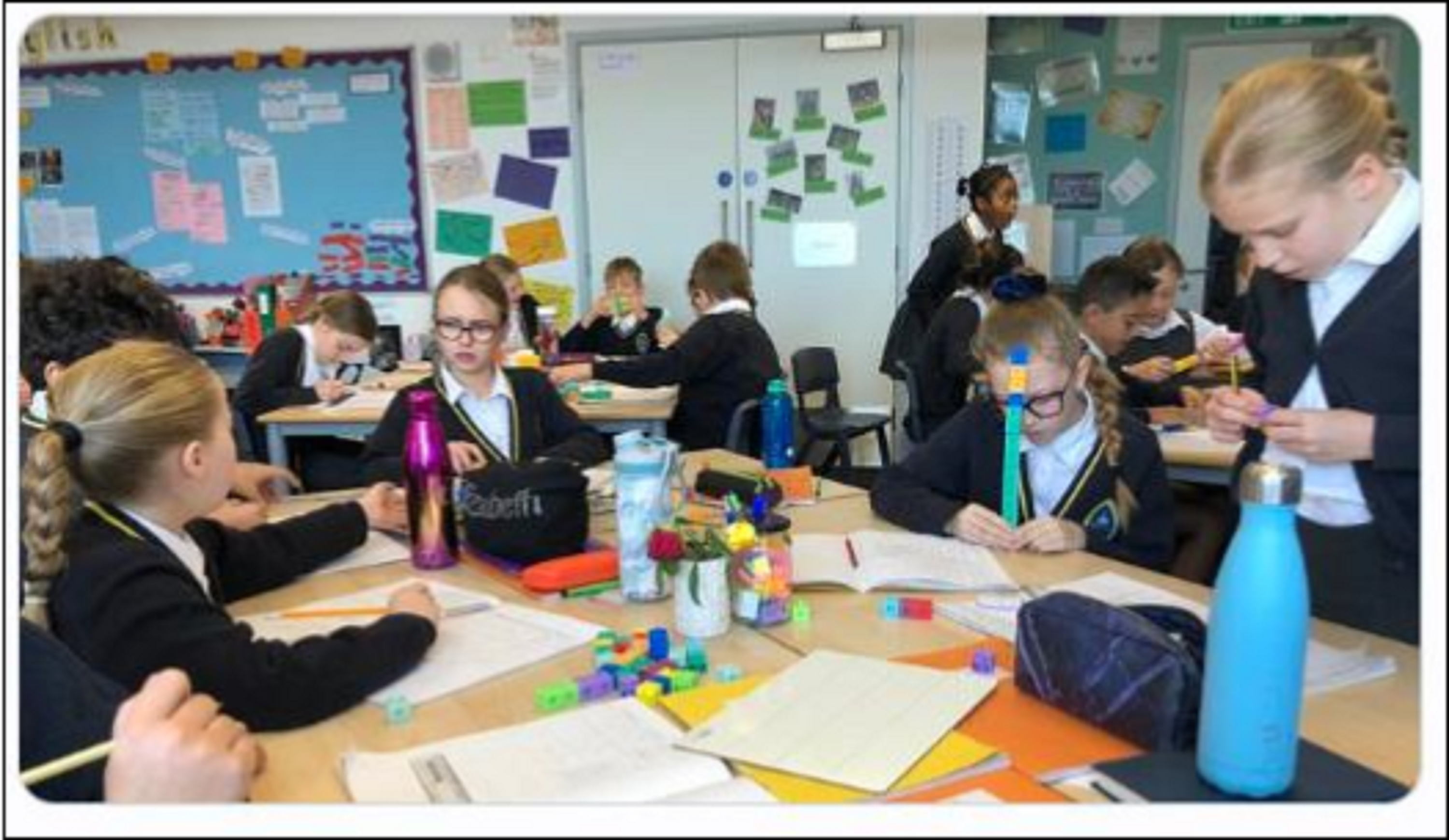
Science Habitats, Year 5 Dahl Class
This week, Dahl class investigated how different factors affect habitats and subsequently, the ability of animals to hibernate. We explored how independent variables, such as the filling used in a box, or the amount of holes in a box affected the dependent variable eg. Light, sound and temperature inside. The children carried out the investigation in small groups and recorded their data which we then used as a class to draw some conclusions about the optimum conditions for hibernation.
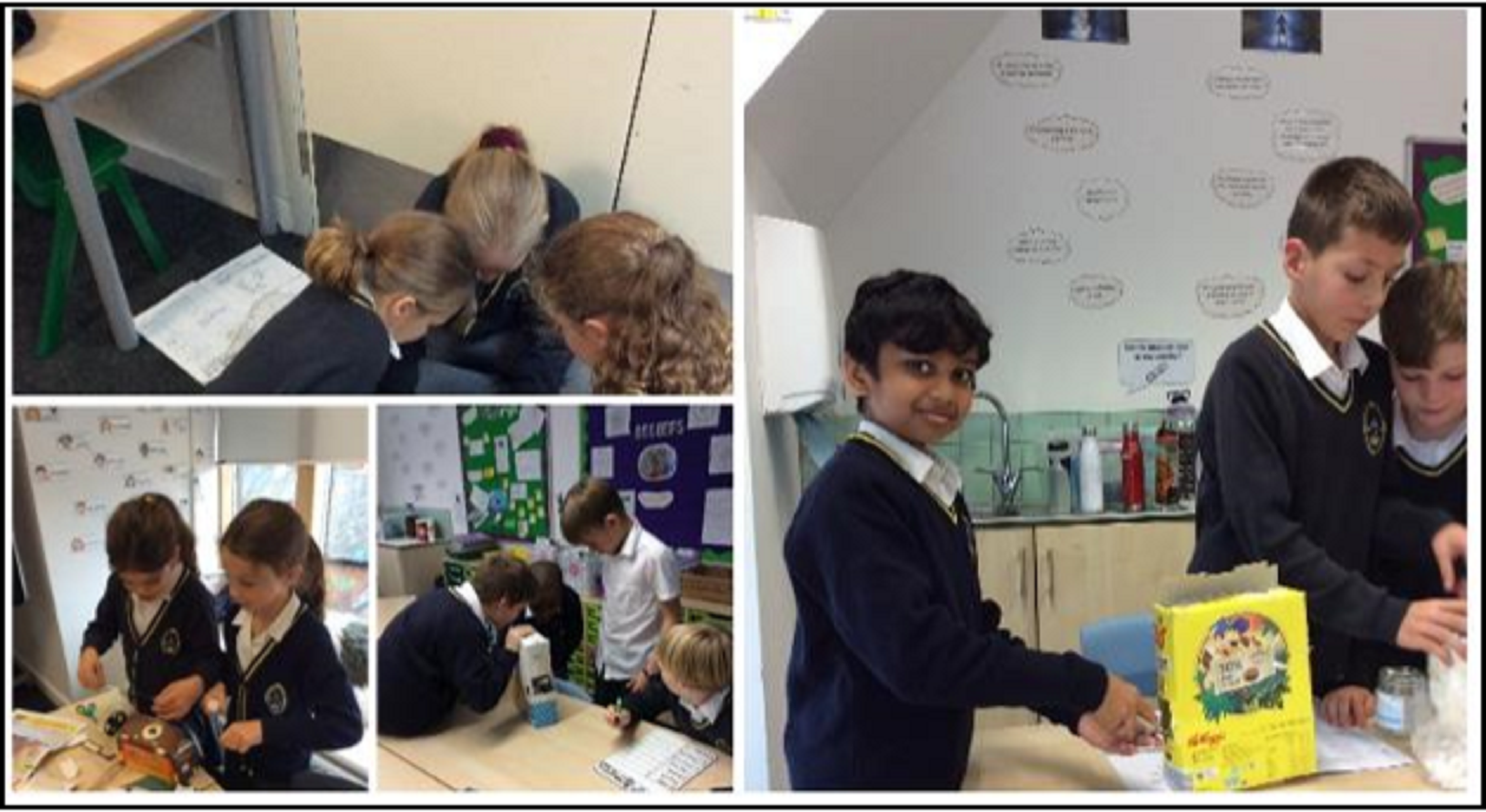
Science Training for our KS2 Teachers
Our Key Stage 2 teachers enjoyed an awe-inspiring science training session on Tuesday, including dissecting plants then observing the inside of the anther.
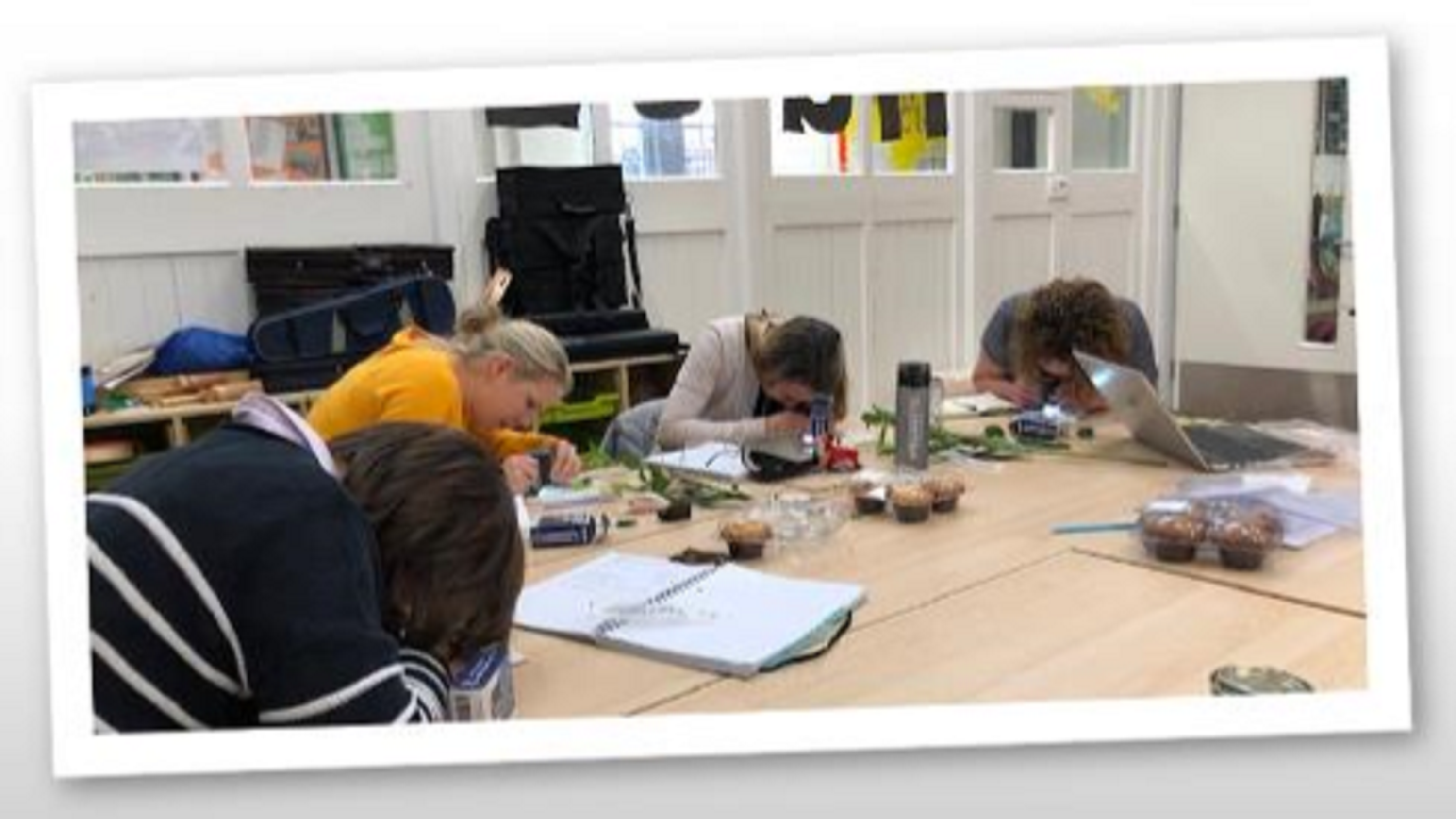
Year 6 scientists planning their own investigations linked to growing old
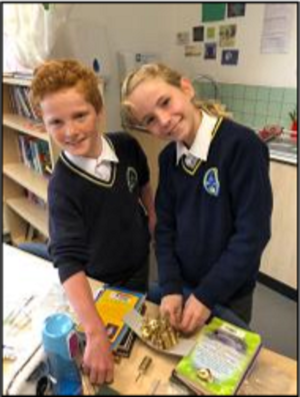
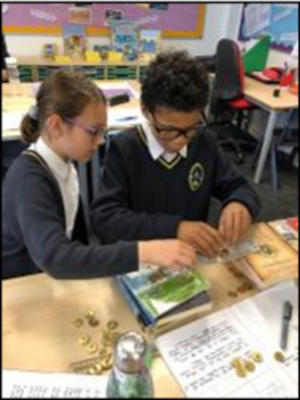
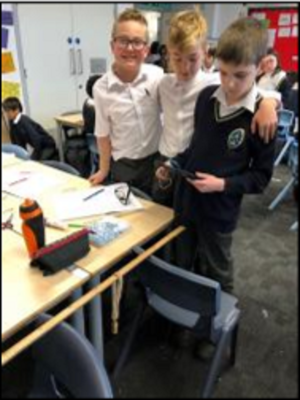
Year 6 Habitats in Science
This week Year 6 scientists were designing different habitats to find out what effect different independent variables (such as thickness of walls and type of filling) have on the light, sound and temperature inside the habitat. Our scientists were very excited to use lux meters, decibel meters and thermometers!
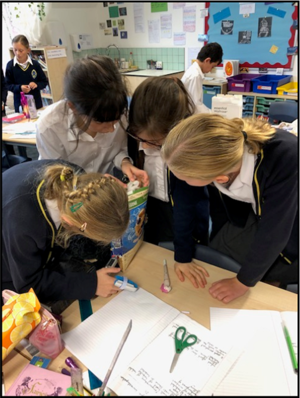
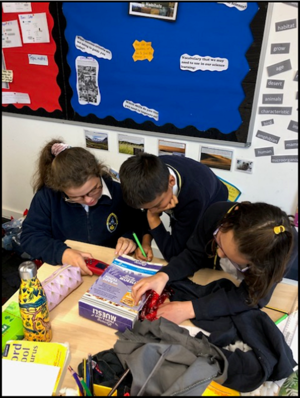
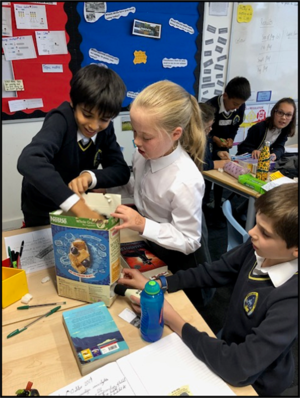
Reception Baking Bread just like 'The Little Red Hen.'
This week we have been making bread just like ‘The Little Red Hen’ in our story. We discussed what the word ingredient meant and then carefully measured everything. At the end of the day we shared the bread and made links between the story and sharing.
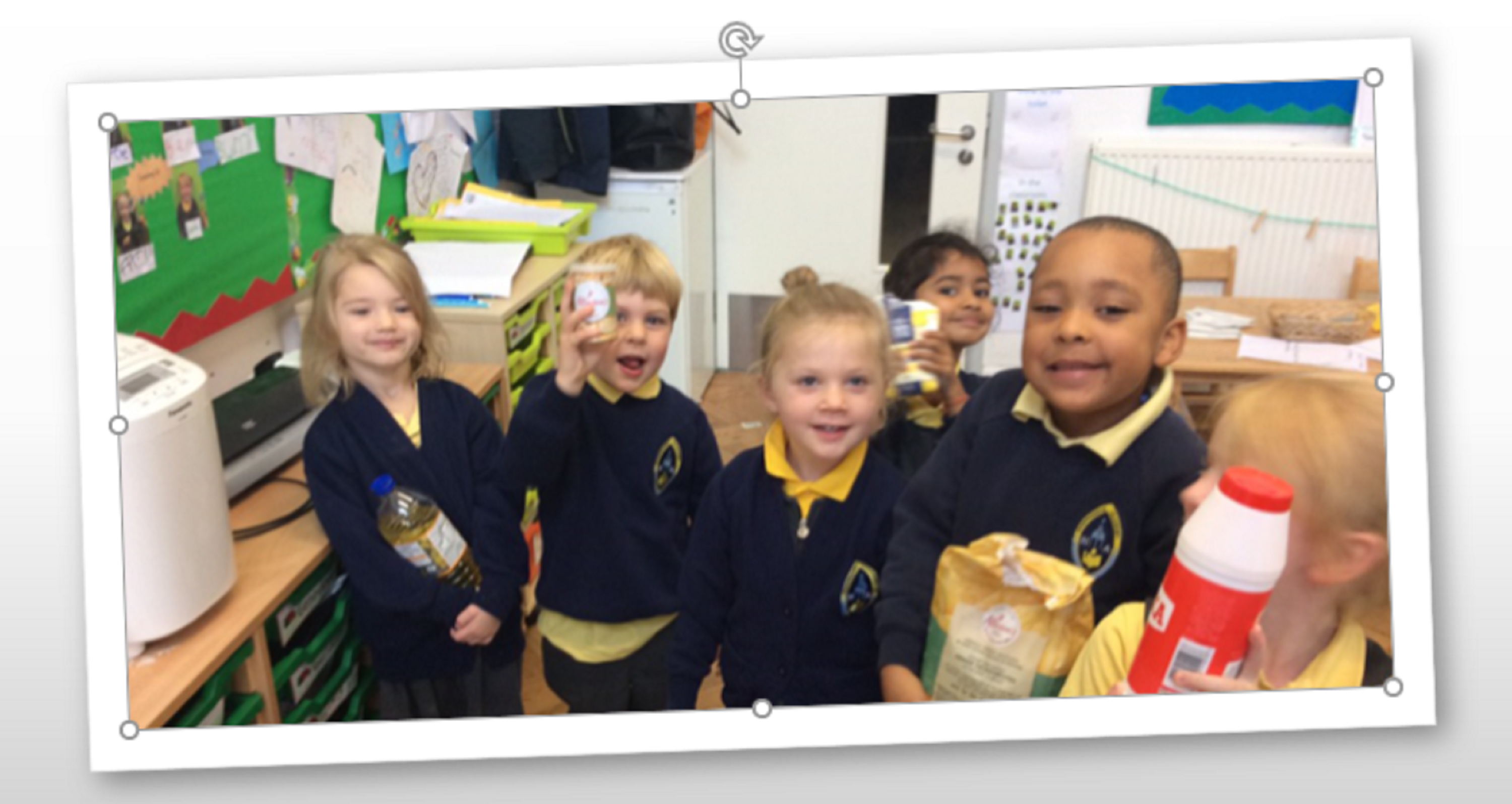
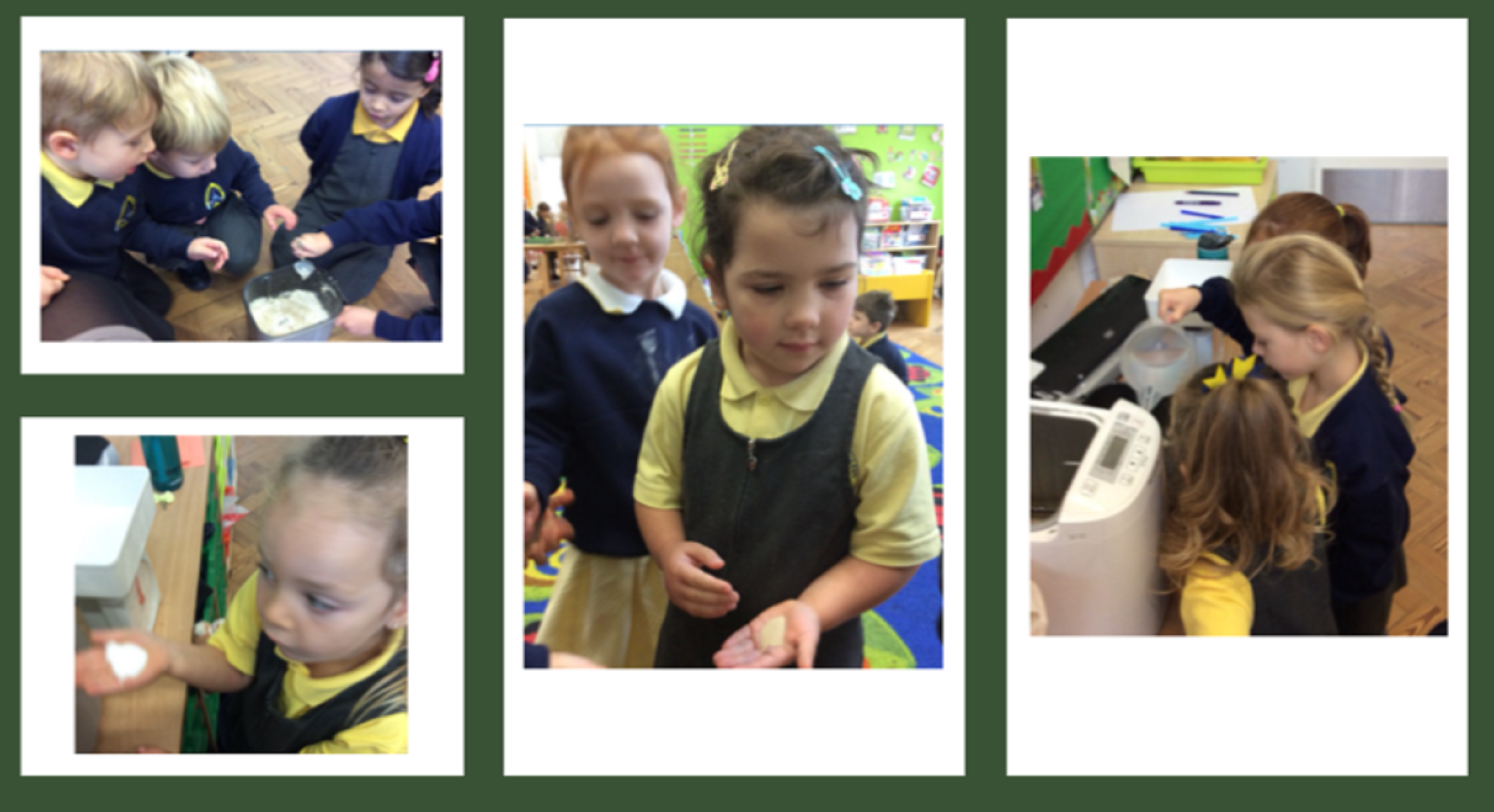
Testing the Elasticity of Aging Skin, Year 4 Austen Class
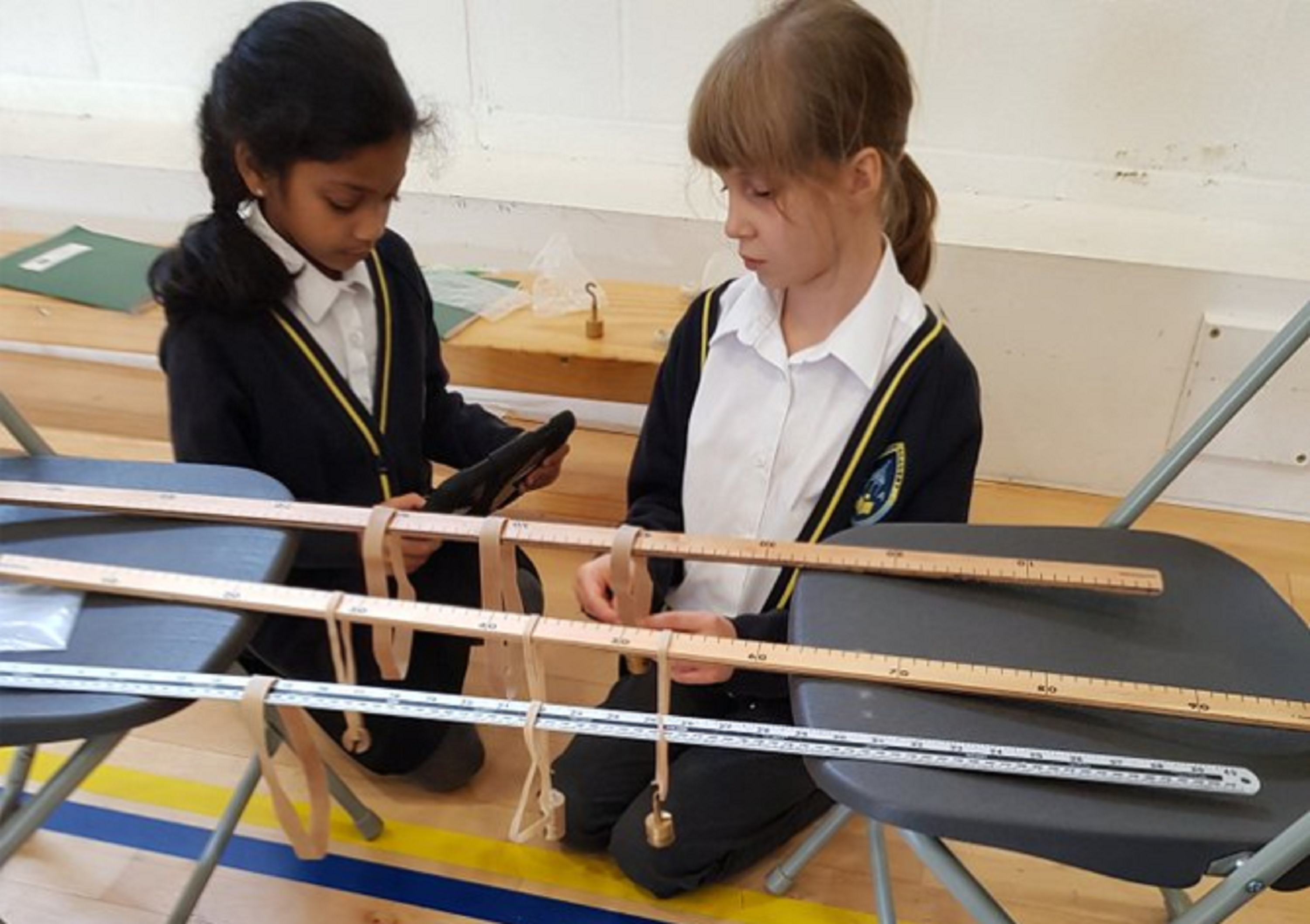
Inspirational Speak in our Assembly today: our Year 5 student talks about her recent liver transplant in aid of 'European Transplant Day.'
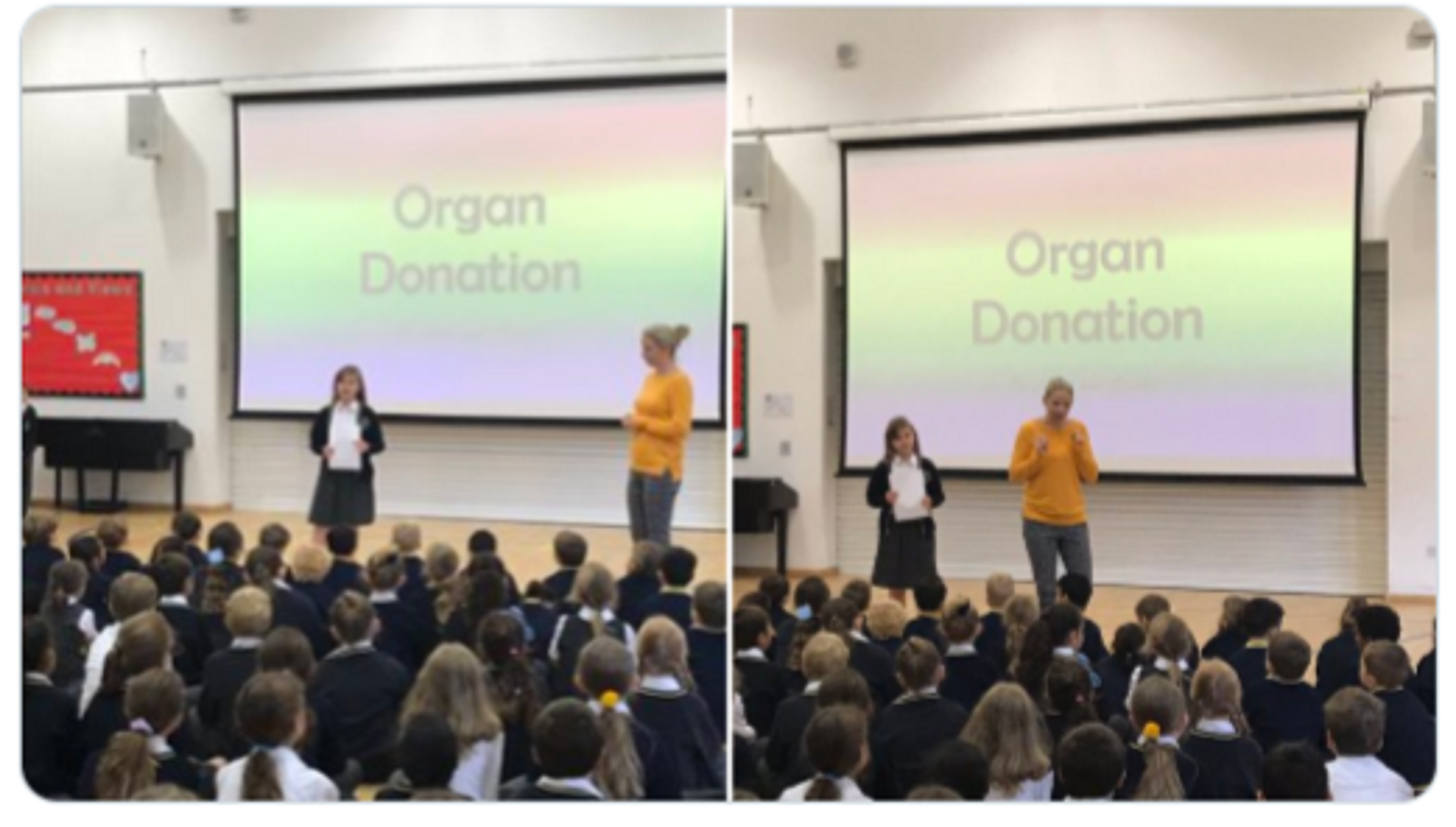
Cricket Habitats in Science, Year 4 Austen Class
Our Science was literally jumping with excitement in Austen class today as we created new habitats for our crickets! We looked at the independent and dependent variables and will observe them regularly over a long period of time.
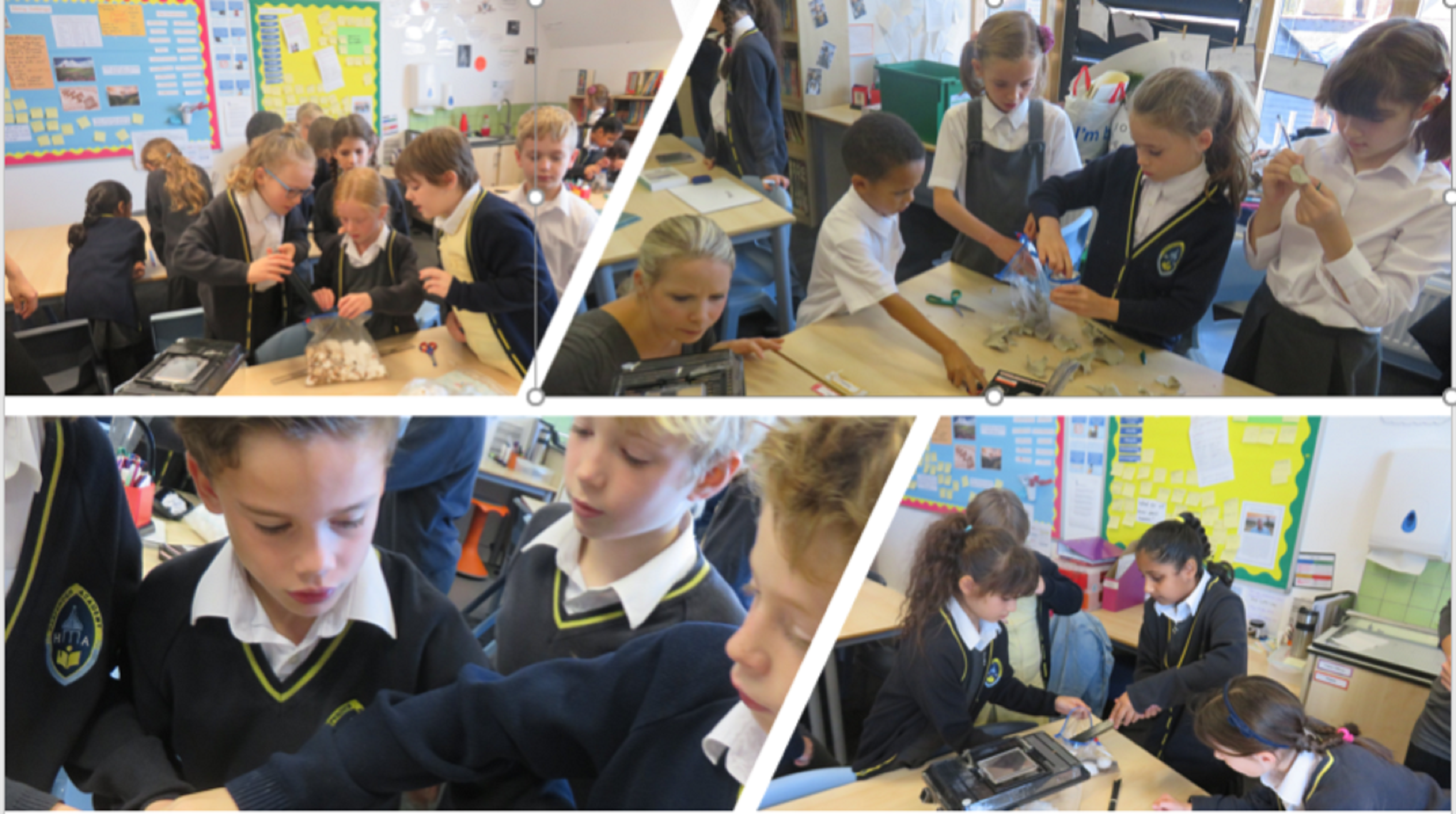
Worm-tas-tic Science in Year 5 Dahl Class!
This week, Dahl class enjoyed their first practical science lesson of the year. The children worked well together as a team to decide what was needed in the wormery and will now be fully responsible for keeping our 26 worms alive! The children have some great ideas about animal lifecycles already and we are all interested to see what happens to our worms over time. We look forward to updating you in a few weeks!
DNA Extraction from Strawberries - Year 6 Shakespeare Class
Today we extracted the DNA of strawberries! Mind-blowing Science Monday!
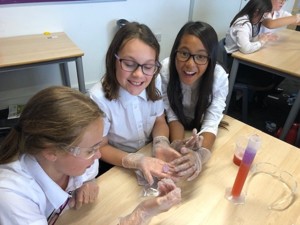
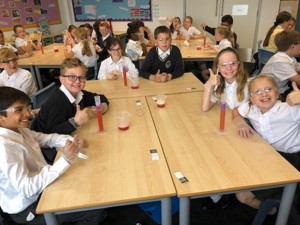
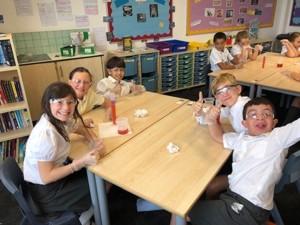
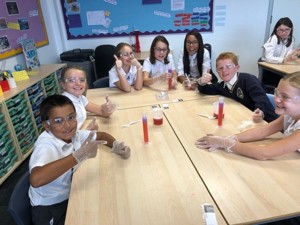
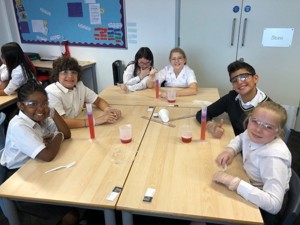
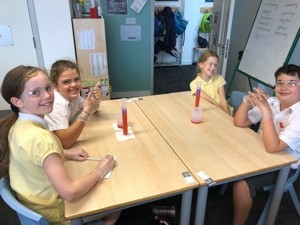
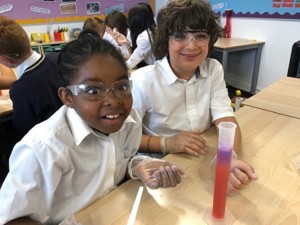
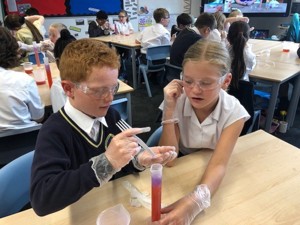
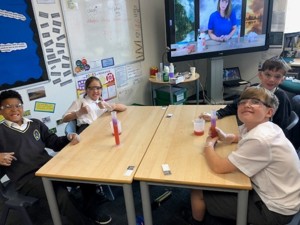
Lovely Outdoor Learners in Year 2 Aslan Class
Aslan Class have been learning to estimate, measure and compare volume. Initially children looked at the containers and had to estimate how much they thought was in each one. This meant comparing the size of different containers and deciding how much liquid each could hold. Children then measured the amount of liquid in each container by carefully reading the scales. This was tricky as some of the containers went up in intervals of 5s, 10s and even 100s. Children recorded their findings and discussed how accurate their estimates were.
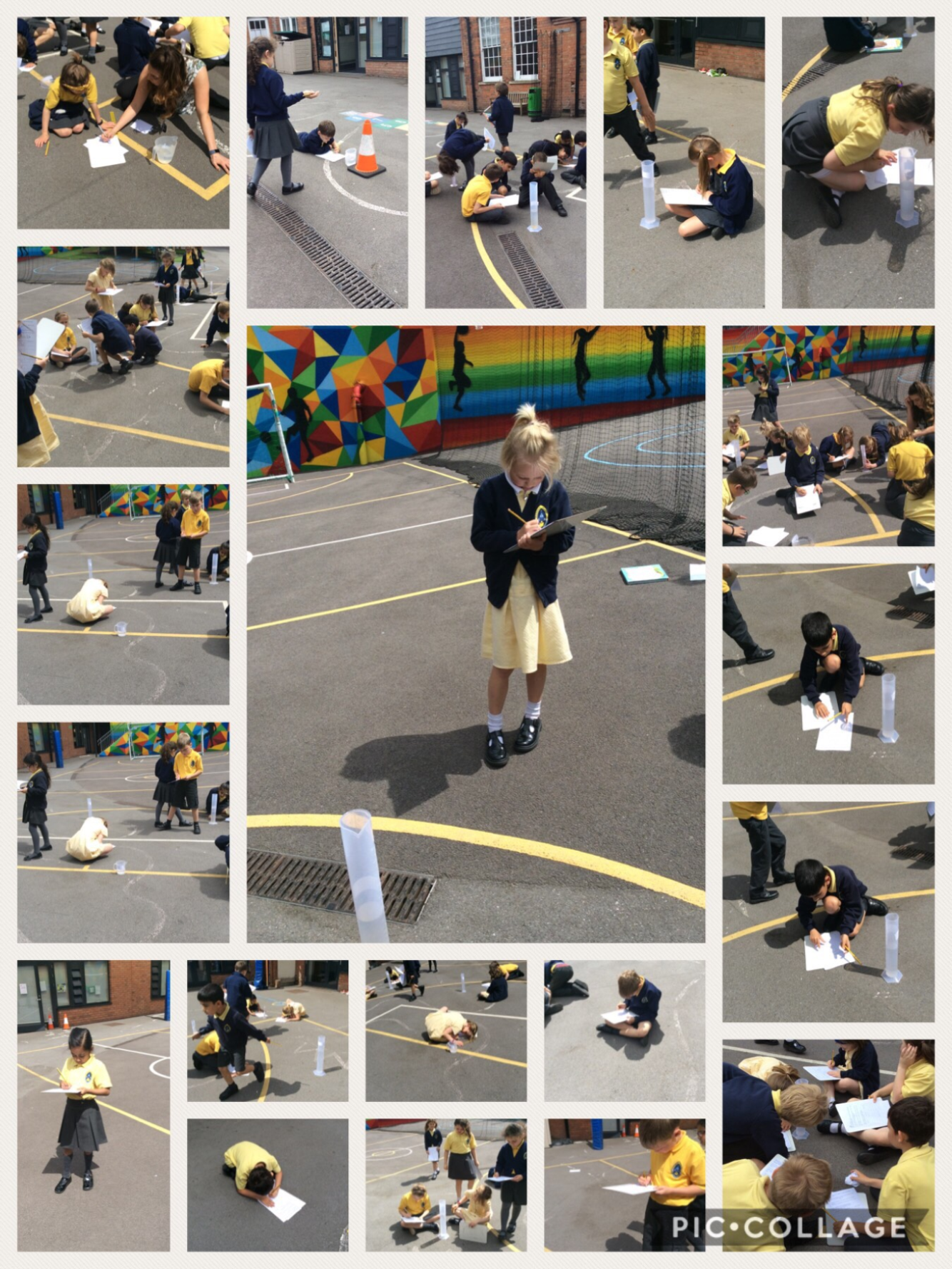
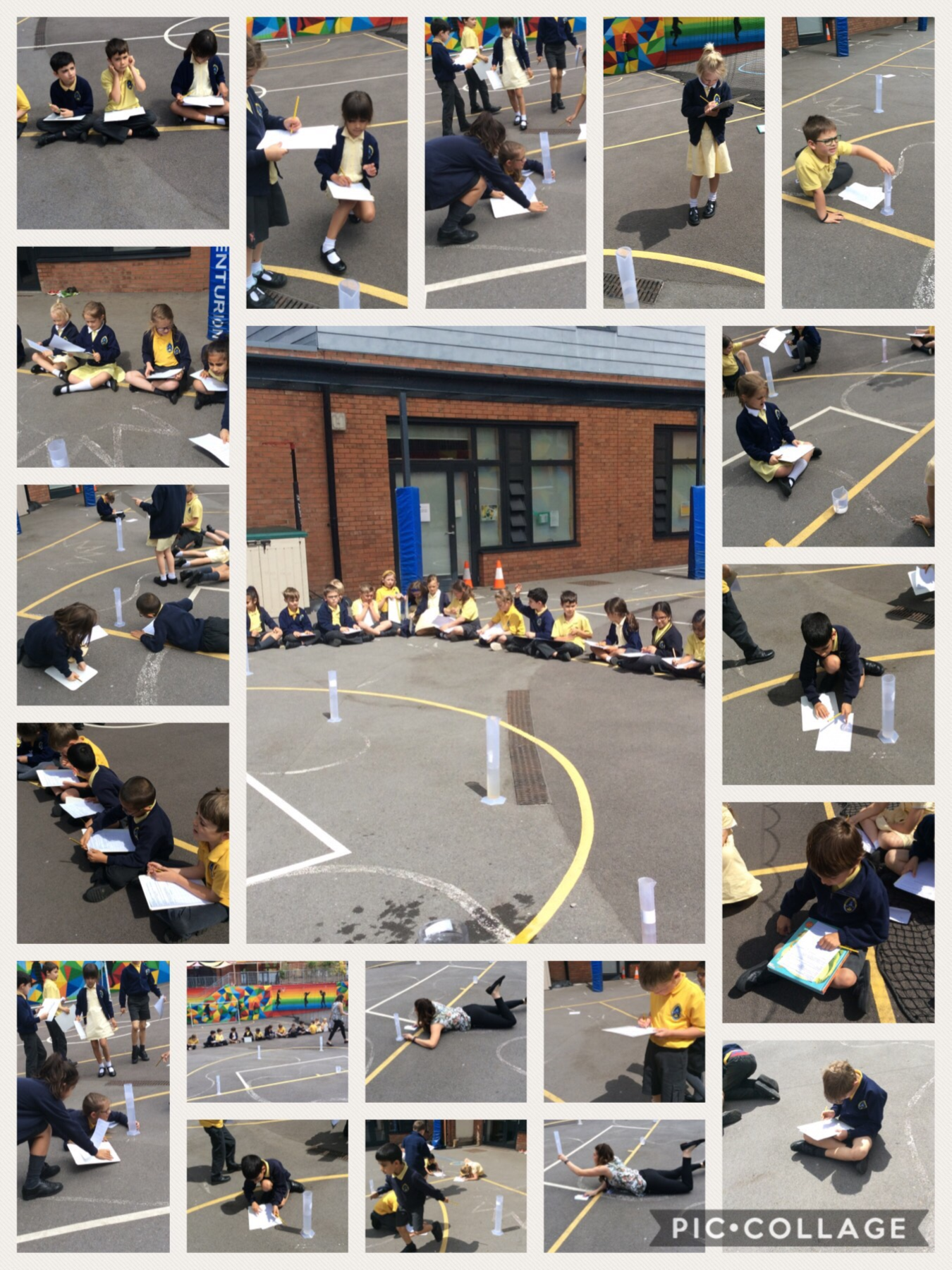
Year 4 Science – Speeds of chemical reaction
Elsie:
Science was really exciting this week because we carried out an explosion and set things on fire! We were learning about speeds of chemical reactions. The best part was when we put 3 candles into a tin with sieved icing sugar, Mrs Johnston blew down a tube and the lid flew off with a ball of fire!
Harry:
I loved Science this week because we got to do lots of different experiments including an explosion, setting ethanol on fire and reacting rhubarb with potassium permanganate. My favourite bit was seeing the explosion in the Hall because when Mrs Johnston blew the pipe to get the oxygen into the tin; the fire burst out of the lid much bigger that I thought it would.
Science In Action, KS2
This week KS2 have been chemists, experimenting with various chemicals to find out about endothermic and exothermic changes. What a buzz in each and every classroom as liquids foamed and fizzed, changed colour and temperature - all signs of the irreversible nature of the changes. I wonder what we'll be experimenting with next week....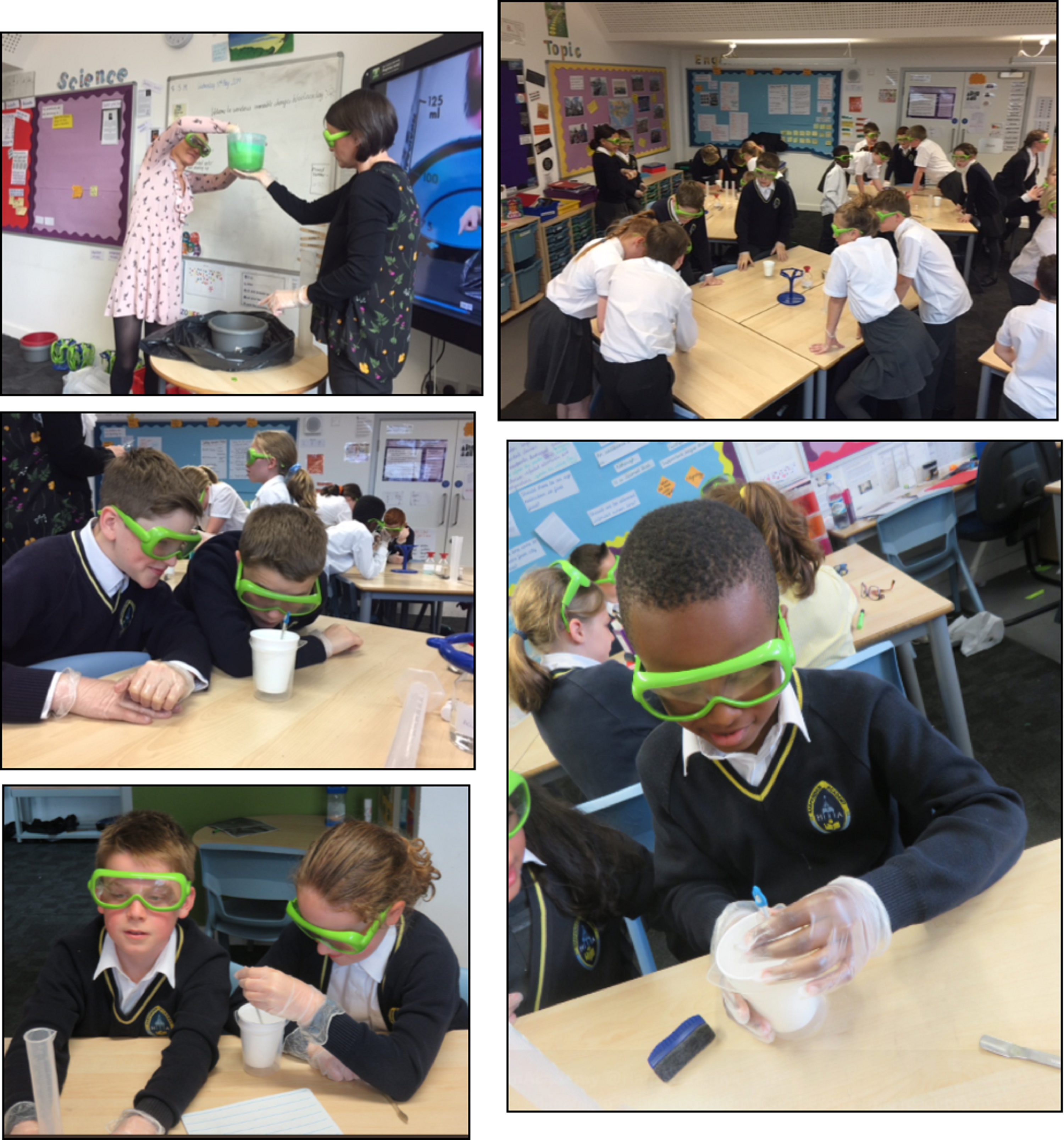
Staff Training, Empiribox Chemistry Training
On Tuesday Our KS2 teachers took part in chemistry training with Empiribox; the children are in for a treat next term with lots of bangs, fire and magical changes of state!
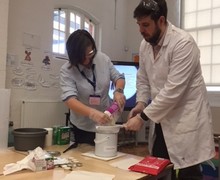
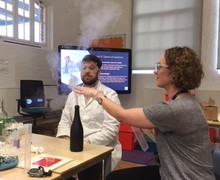
Reception, Our Senses
This week we explored our senses. We looked at our sense of smell by painting with tea bags! We used orange, peach, summer fruits, green tea and elderflower. The children predicted which colours the tea would be and what they would smell like.
We also explored our sense of taste and showed a great growth mindset when trying grapefruit, lemon and lime! We then had to see if we could tell the difference between sweet and salty popcorn. The children had such fun and were using language like “it’s so sour” “this tastes like a lemon and an orange mixed together!”
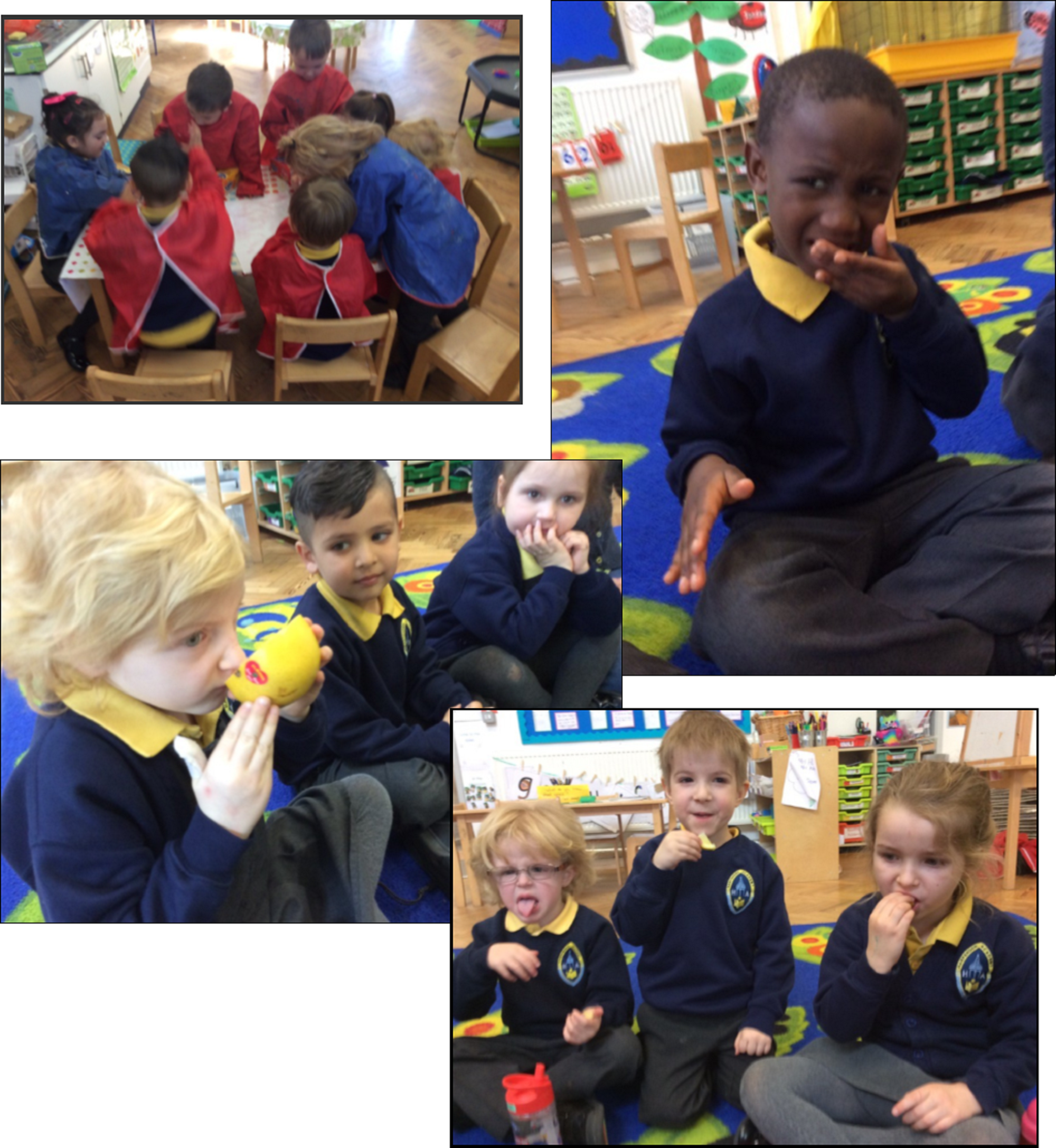
Science Week
Harpenden Academy on Tour
EYFS, Duckling Egg Hatching
EYFS are being eggsperts today, watching and waiting for these to hatch....
We have our first duckling!!!! The staff are weeping tears of joy and we are so excited to see the children's reaction tmw
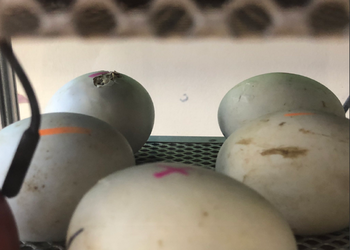
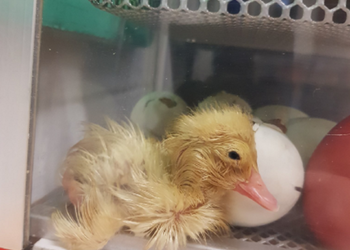
Key Stage 1, Trip to Woodside Farm
At Woodside Farm we saw an unusual bird called a Rhea, a Gloucester Old Spot Pig and a Shetland Pony. The children got to handle a Chinchilla, a Bearded Dragon, a Chick and a Corn Snake. The children then got the opportunity to go on a real working tractor which took the children on a journey around the farm.
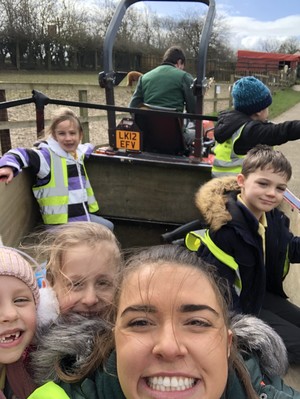
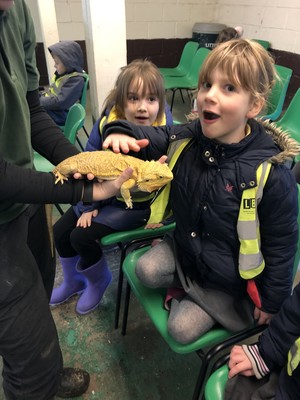
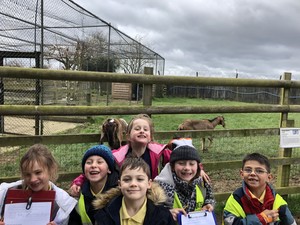
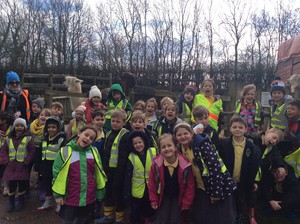
Key Stage 2, Trip to The National Space Centre in Leicester
Look at Year 6's persuasive writing skills in their publicity leaflets. They are designed to persuade you to visit the Space Centre:
Bubble Fun, Reception & Year 1
Having fun during science week, answering all of our bubble questions that we generated in Year 1 and Reception.
Monitoring our Heart rates, Year 2
In Science this week KS1 began looking at the effect of exercise on heart rate. We tried to measure our heart rate before, during and after exercise.
3D Solar Systems, Year 6
This week the children have been creating their own 3D solar systems, learning about the relative temperatures and features of each planet. They have also been conducting their own independent research on aspects of the solar system that interest them.
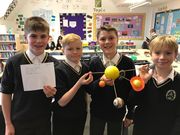
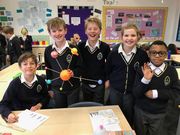
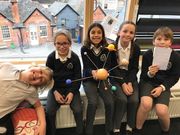
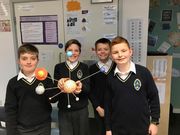
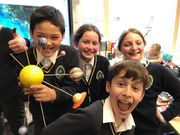
Key Stage 2 Solar System
This week children across KS2 have been exploring the solar system as part of our new science topic - Space, Light and Shadows. In particular our young scientists have been learning to describe the position and relationship between the planets. A range of exciting hands on activities have taken place throughout the Key Stage, including creating scale models of the solar system in the playground using string and chalk with a ratio of 1: 1 million. Even with this ratio, Saturn, Uranus and Neptune couldn't fit in our playground so the children estimated where in Harpenden town centre the planets might sit! Super scientific exploration Year Six!
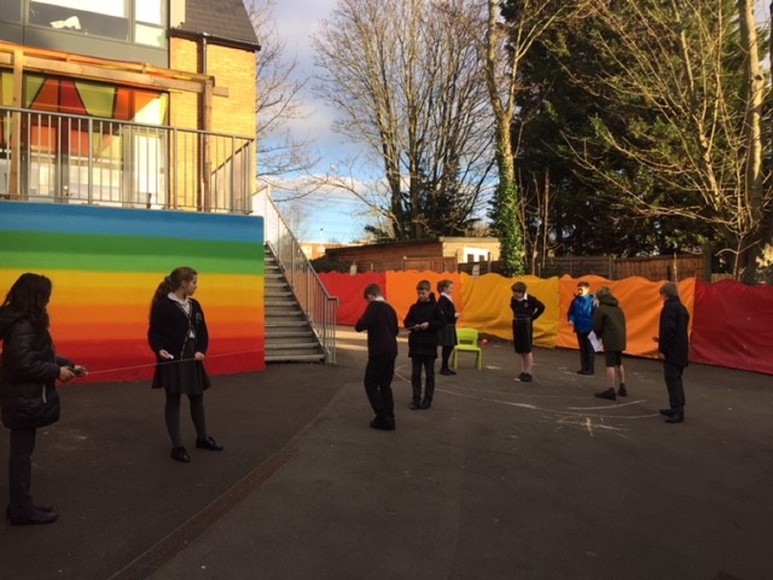
Year 1 - Form to Fork
Learning where our breakfast comes from and designing a healthy menu
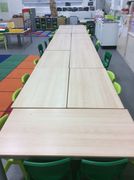
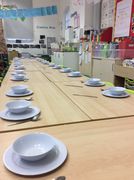
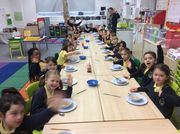
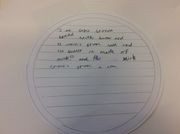
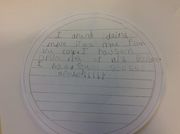
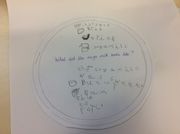
Natural History Museum
In April 2018 Year Six spent the day deepening their knowledge and understanding of evolution at the Natural History Museum. They explored what has evolved over the past few hundred million years, how it has evolved and why by participating in a range of fun activities and games. The children were so excited to see Mary Anning’s fossils up close, not to mention a series of skulls showing how humans evolved over the past five million years to carry larger brains! The Galapogas finches beak game was also lots of fun!
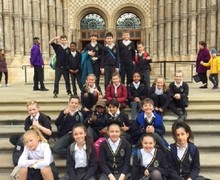
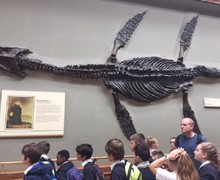
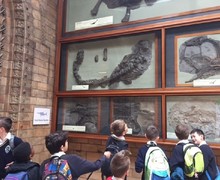
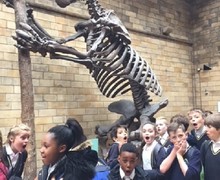
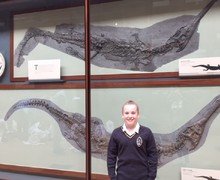
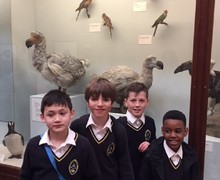
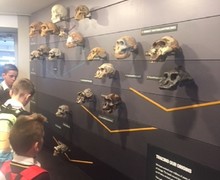
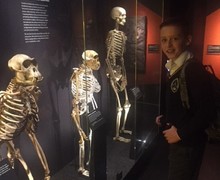
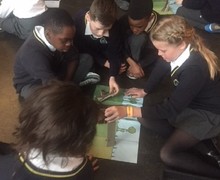
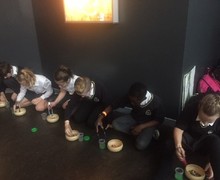
Rainbows
A group of our talented Year 6 mathematicians attend the Royal Institute Maths Masterclasses every term. One of these sessions was about the maths and science behind rainbows. The children were so fascinated and amazed by what they learnt that they led an assembly on the topic the very next day for the whole school and parents.
Year 6 Circulatory system drama in the playgound
Year six used the playground and play equipment to create a drama to show how the circulatory system works - showing the blood pumping through the lungs to be oxygenated then travelling via the heart to the rest of the body to deliver oxygen and nutrients through the semi permeable membranes of the capillaries! It was wonderful to see the imaginative ways the children chose to represent the process and the scientific language they used to narrate their drama. Not to mention the super humour used in one group which had us all in hysterics as the lungs sent the blood cells ‘off to work’ with their packed lunches!
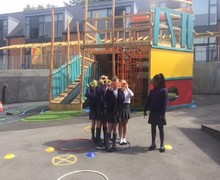
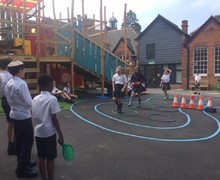
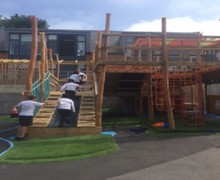
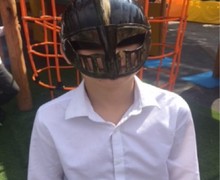
Year Six Heart Dissection
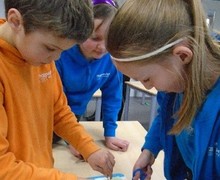
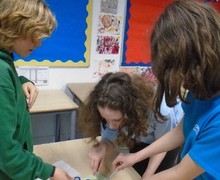
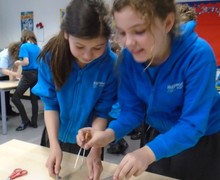
Which material is Waterproof? Which material is absorbent?
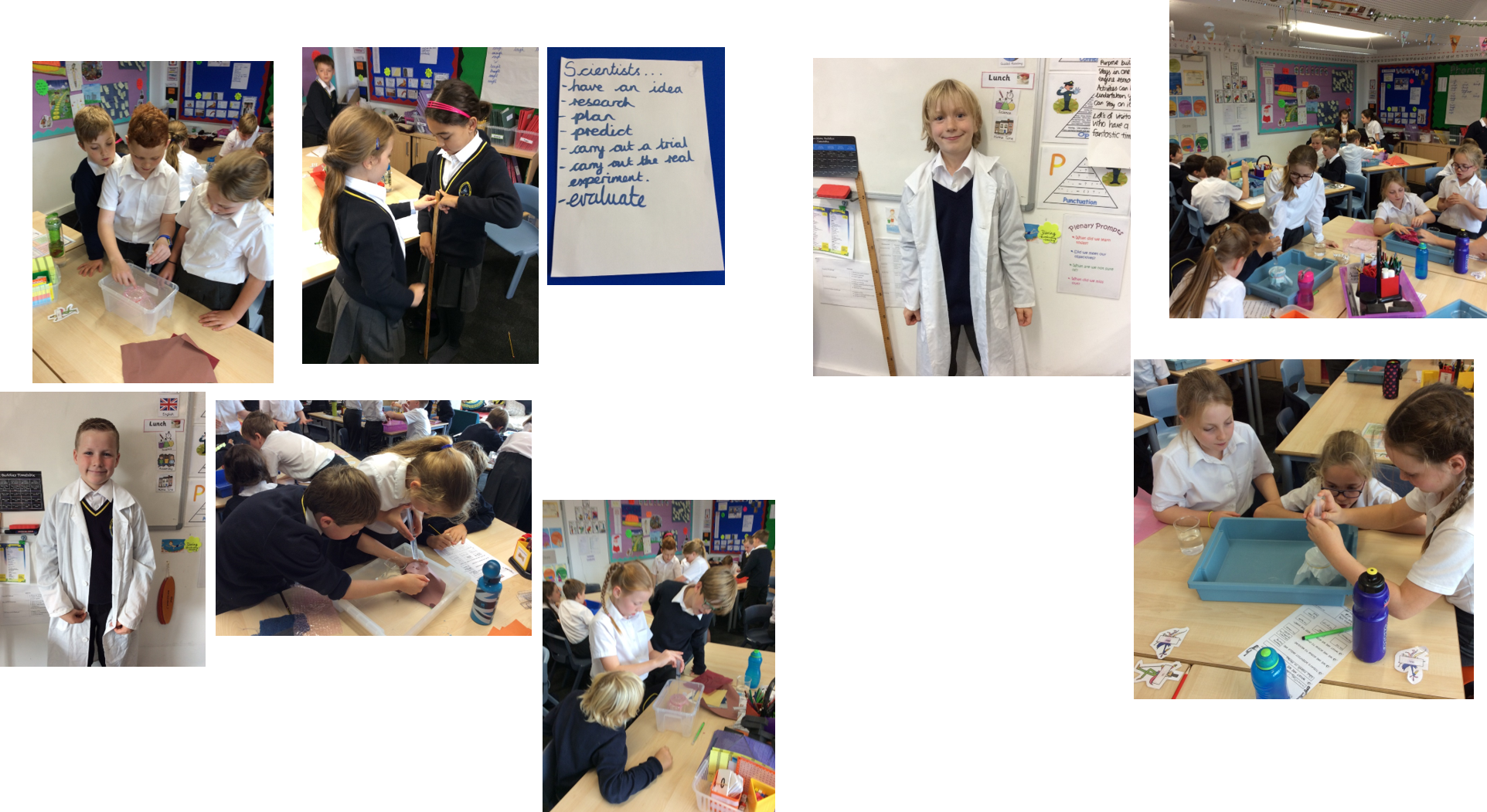
Rothamsted Research 175th Anniversary Celebrations 2018
This year, Rothamsted Research, who at the heart of Harpenden and one of the largest science employers in Hertfordshire, is 175.
The children got to experience the festival’s insect and grassland zones, and go on a trailer ride of the farm. There was a treasure trove of exhibits and activities that shared the stories of Rothamsted’s incredible heritage and its role in the landmark discoveries in science, from the evolution of fertilisers to the search for kinder pesticides. The children experienced some of the technological transformations underway, as farming meets sensors, meets robotics.
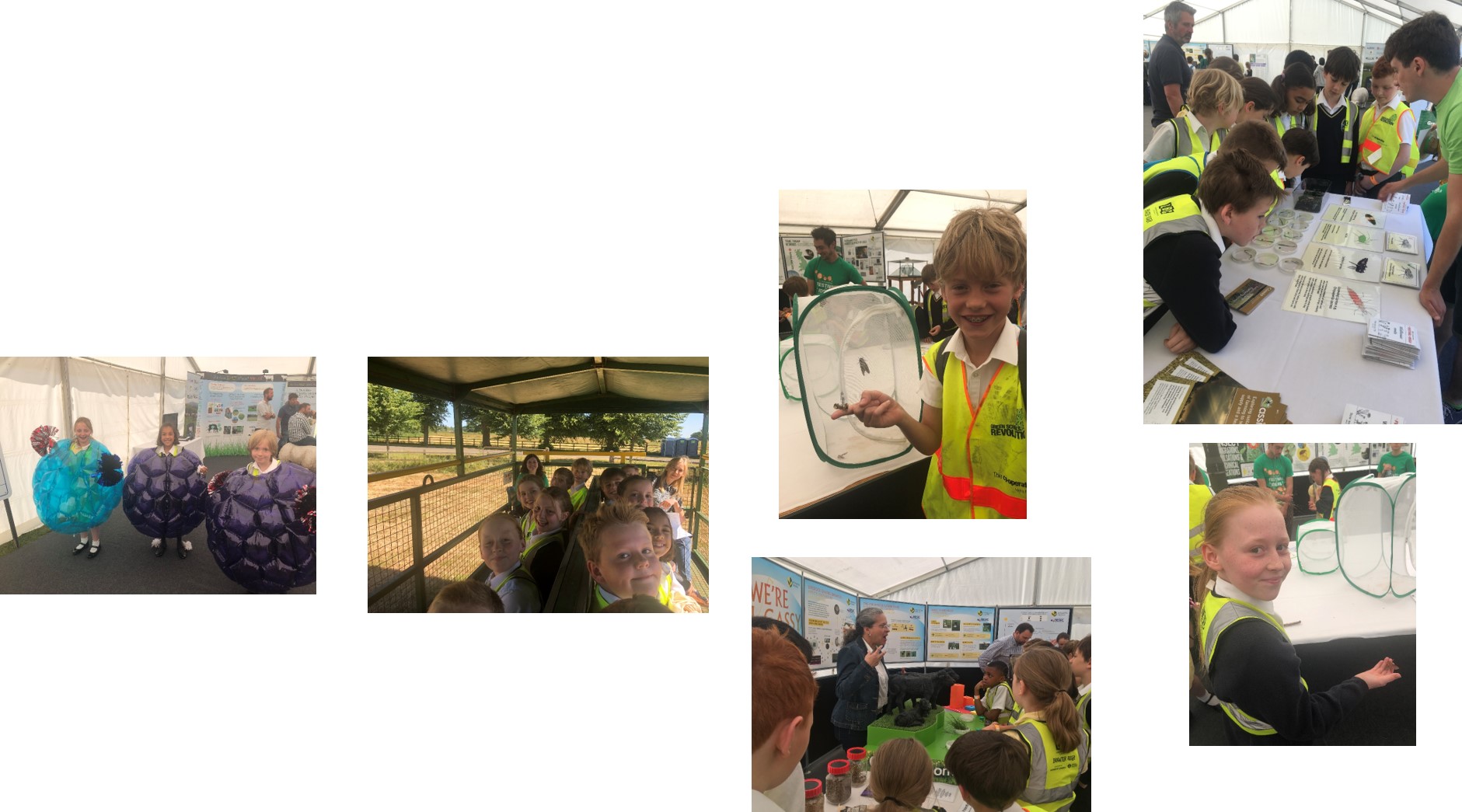
Affinity Water and Mad Science
We had a wonderful assembly this morning provided by Affinity Water and Mad Science. The children had great fun and learned easy and simple ways to save water around their homes. The presenters were energetic and brilliant with the children and the children enjoyed the interactive experiments explaining the water cycle and how we recycle water.
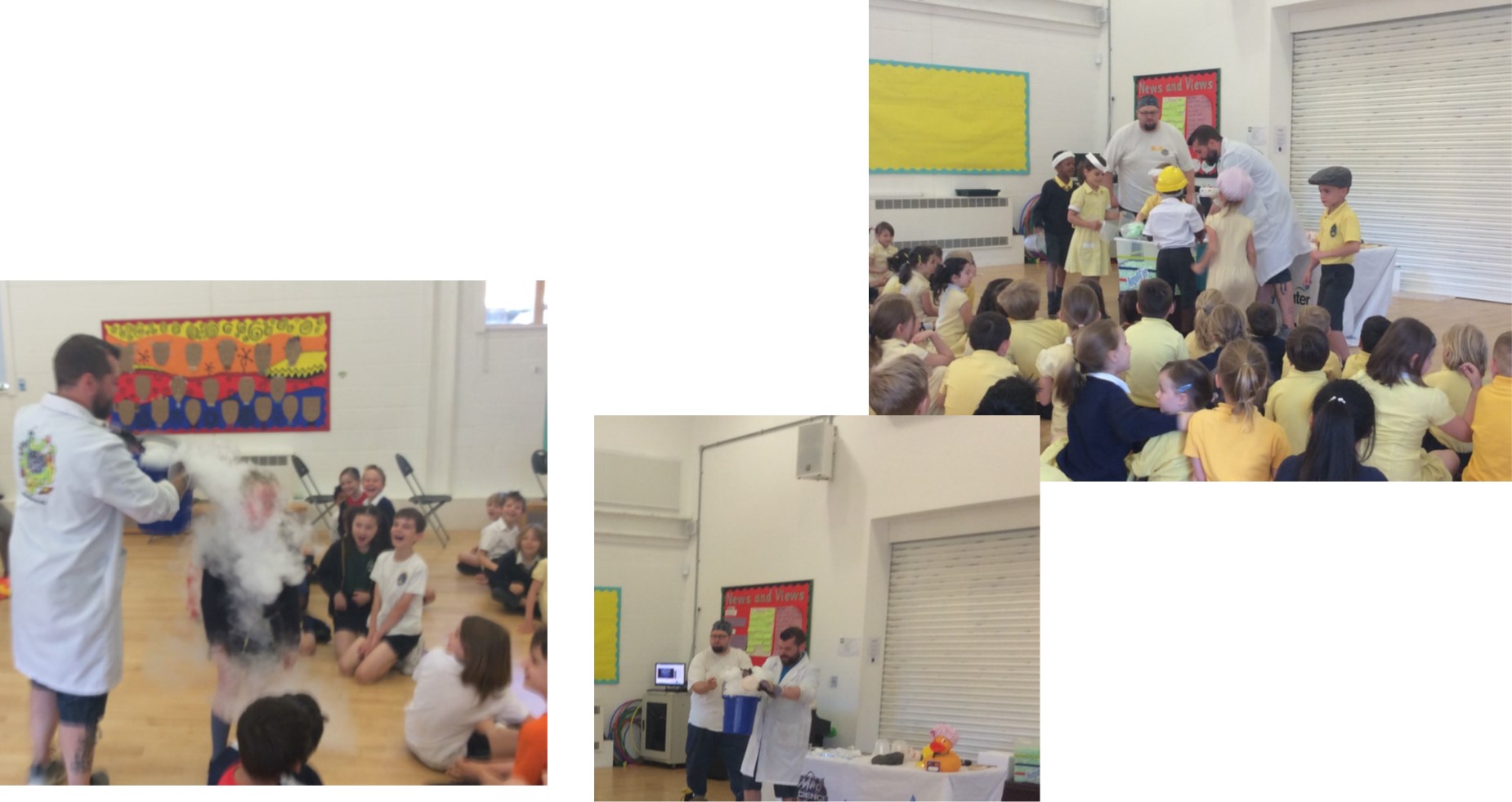
Year 5 Trip to the National History Museum
We went to learn about Earthquakes and Volcanoes, we explored the museum section about Earthquakes and Volcanoes. We watched an Earthquake and Volcanoes show. We used seismographs which show when an Earthquake is happening. We also helped to evacuate a town which was about to be destroyed by a volcanic eruption.We created lava and watched how slowly it can run and how quickly it sets. Finally we had some free time to enjoy other parts of the museum. We had a fab day!
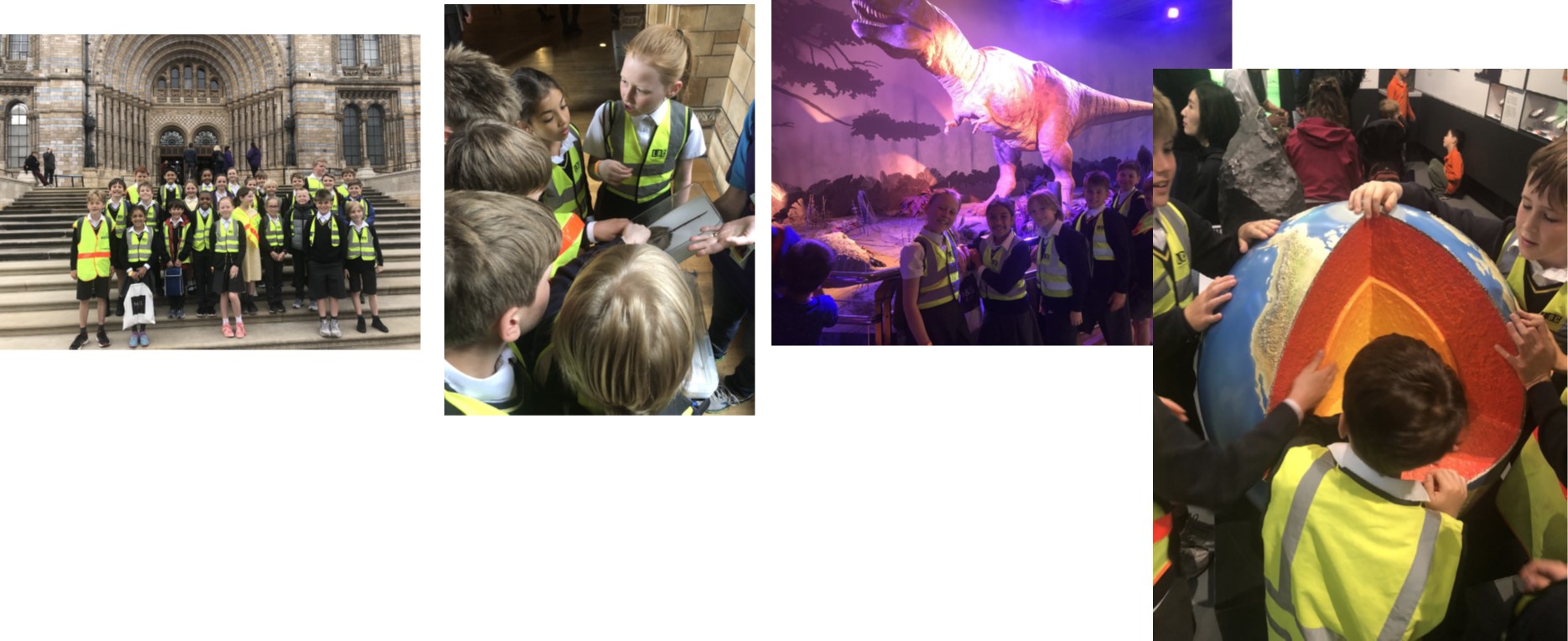
Science Week - Reception Class
Reception have had a wonderful week exploring their senses. They have been looking at how we can change the state of foods. They have made jelly and discussed dissolving and setting it. Ladybird class have made butter out of double cream by shaking and whisking. They have explored different tastes such as jelly, salty popcorn, lemon and butter.
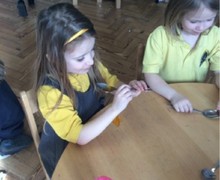
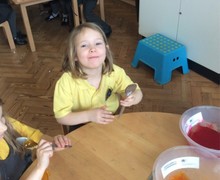
Rainbow Colours
Elmer class were making predictions and testing what would happen to skittles once water was added. They were also looking at colour combinations.
Is it a solid or a liquid?
Elmer class mixed cornflour and water to make gloop! They had lots of fun exploring the gloop and discussed if it was a solid or a liquid?
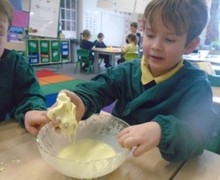
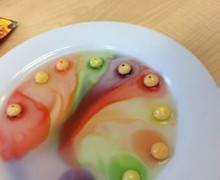
Science Week - Year 1/2 Aslan Class
A tree hunt looking for deciduous and evergreen trees.
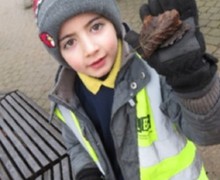 |
We looked at the density of different liquids and made lava lamps. |
We designed and made models using marshmallows and spaghetti. We based our designs around buildings and looked at the structure needed to make it stable.
We set up an experiment to investigate how clean our hands really were! We observed over time what happened to our bread.
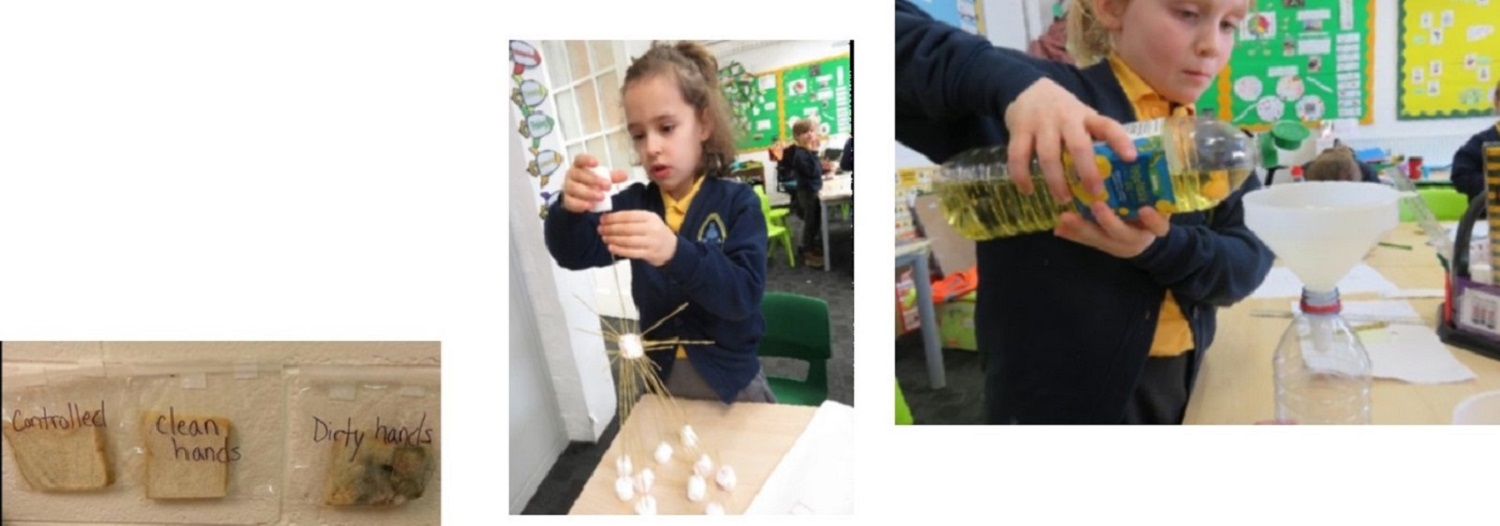
Science Week - Year 3/Year 5
Year 3 have been designing a system to transport tomatoes from the top of a mountain in Nepal to the market town at the base of the mountain. They used the following resources: spaghetti, cups, string, Lego, sellotape and glue.
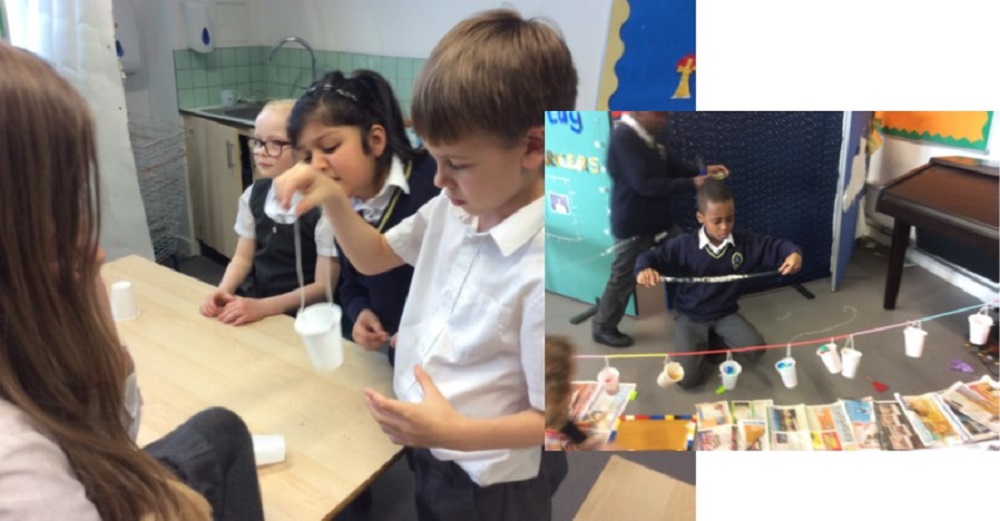
Year 5 have had tremendous fun this week and applied their science knowledge to the following challenges:
- To build the tallest tower using only paper and glue. The tower needs to stand up with out any additional support
- To build the strongest bridge out of straw and sellotape. The bridge needs to support the weight of a car.
- Dissecting plants

Science Week - Year 6, Shakespeare Class
- Building towers with spaghetti and marshmallows using our understanding of gravity
- Darwin Galapagos Island finches experiment - we used different 'beaks' to find out which type was the most effective for collecting food. We discovered that the best beak depended on the type of food which is why finches adapted over time to have different beaks depending on their habitat and diet.
- Daily discussion of science in the news: from glow in the dark mice to how many jaffa cakes it would take to fuel a house!
- Ocean grabber - we invented ways to improve an ocean grabber which could be used to explore new ocean life (linked to our imagination value)
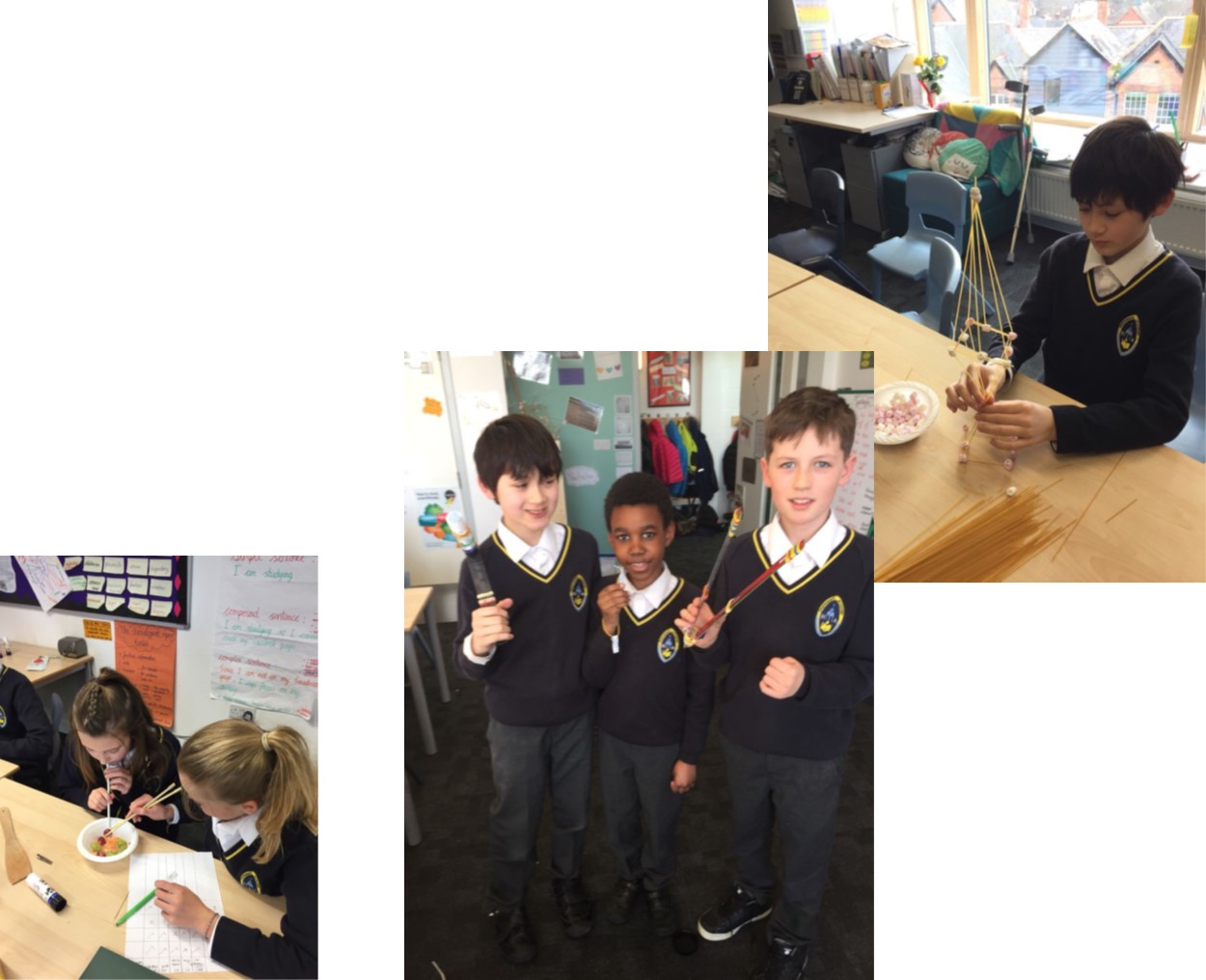
Melting Point of Ice
Looking at how salt lowers the melting point of ice.
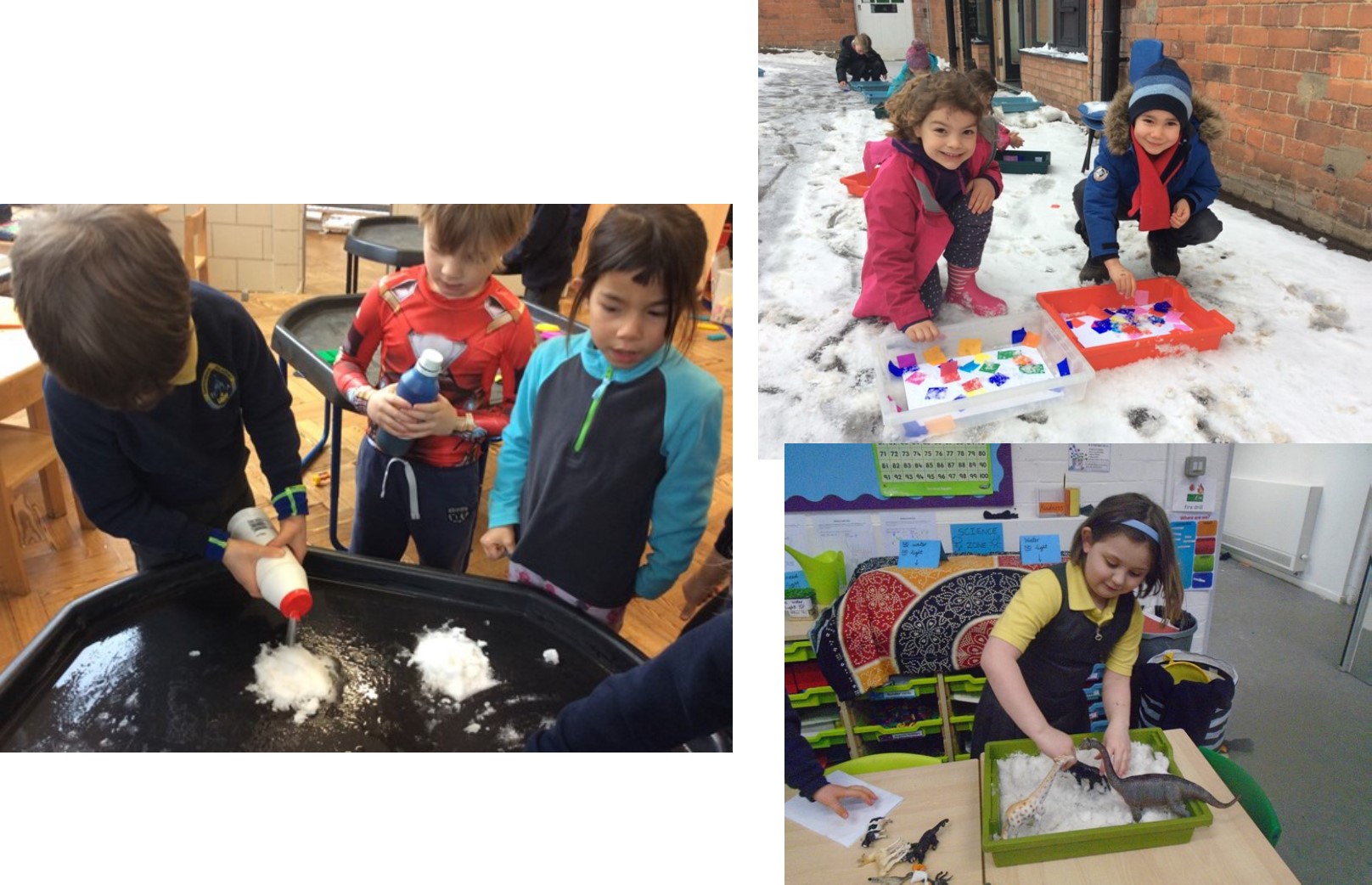
Lydekker Park - Year 6 Shakespeare Class
Yesterday Year 6 spent the afternoon at Lydekker park investigating, observing, sketching and classifying leaves. It was wonderful to see our Shakespeare scientists observing carefully and asking thoughtful questions about the plants. Who knew there was such a variety of leaves in such a small space?
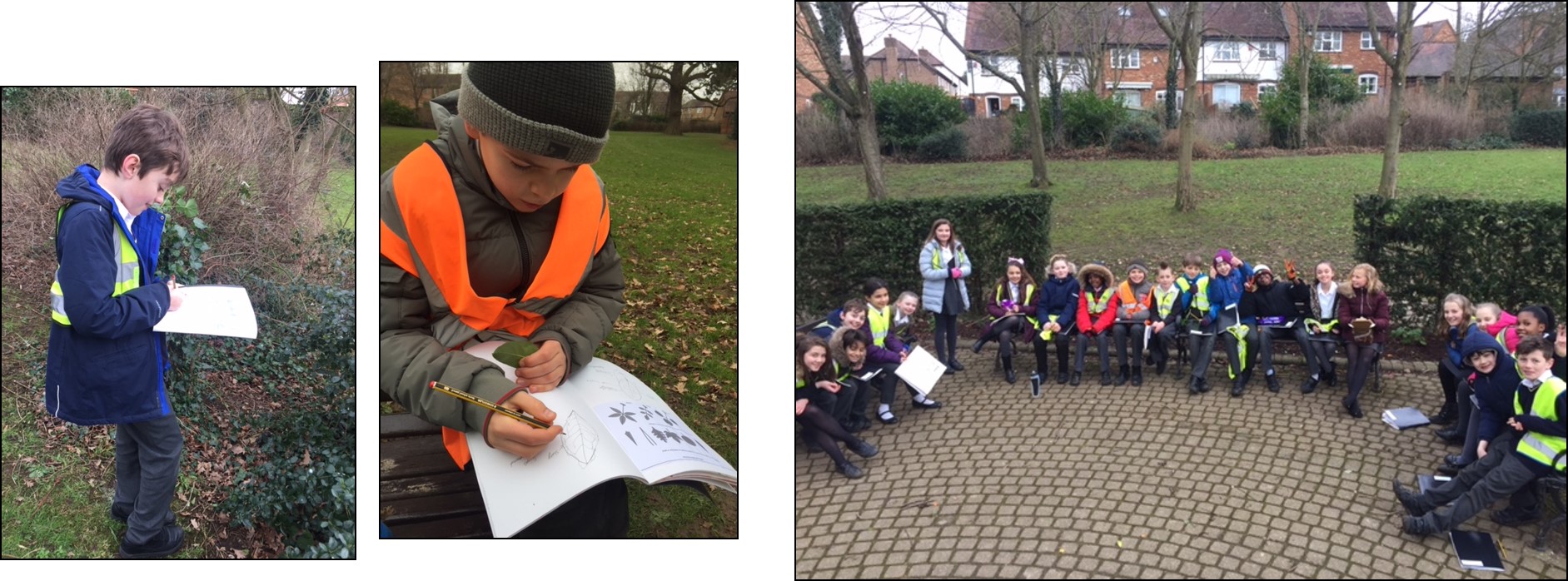
Year 6 Scientists
This week our Year 6 scientists have been developing their observation and classification skills by creating branching keys for a range of sweet treats. Inspired by Carl Linneas - who devised the first classification guide for living things - some children even created Latin-sounding names for the sweets. A super science session!
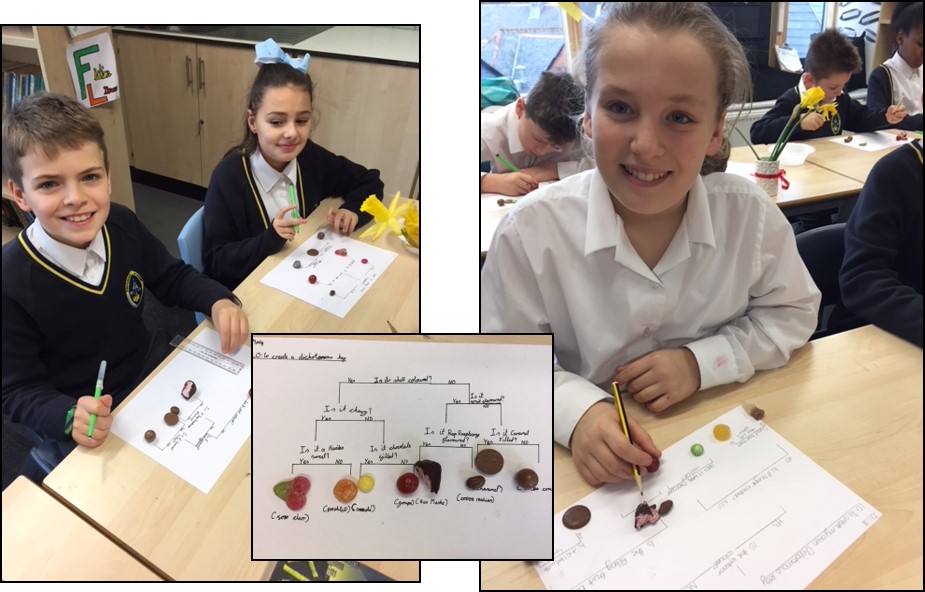
Investigating asteroid collisions with Earth - Year 6
This week in science Year 6 were recreating the asteroid explosion that caused the mass extinction of the dinosaurs. They came up with lots of independent variable and dependent variable then used them to create a scientific question.
Using various sizes marbles, ball bearings, rocks, flour, icing sugar, sand and foil, they created a whole range of explosions around the playground.
Here are some of our super scientific questions:
What effect does the size of the asteroid have on the diameter of the crater?
What effect does the air pressure have on the depth of the crater?
What effect does the height of the drop have on the distance the ground moves?
What effect does the angle of the drop have on the width of the shape of the tray?
We also discussed how we could have made our investigation more reliable and agreed that carrying it our more than once as well as using the same person to drop the asteroid each time would make it more reliable.
Maybe you could ask your child to try a different scientific question at home!
